Last Updated on July 28, 2023 by
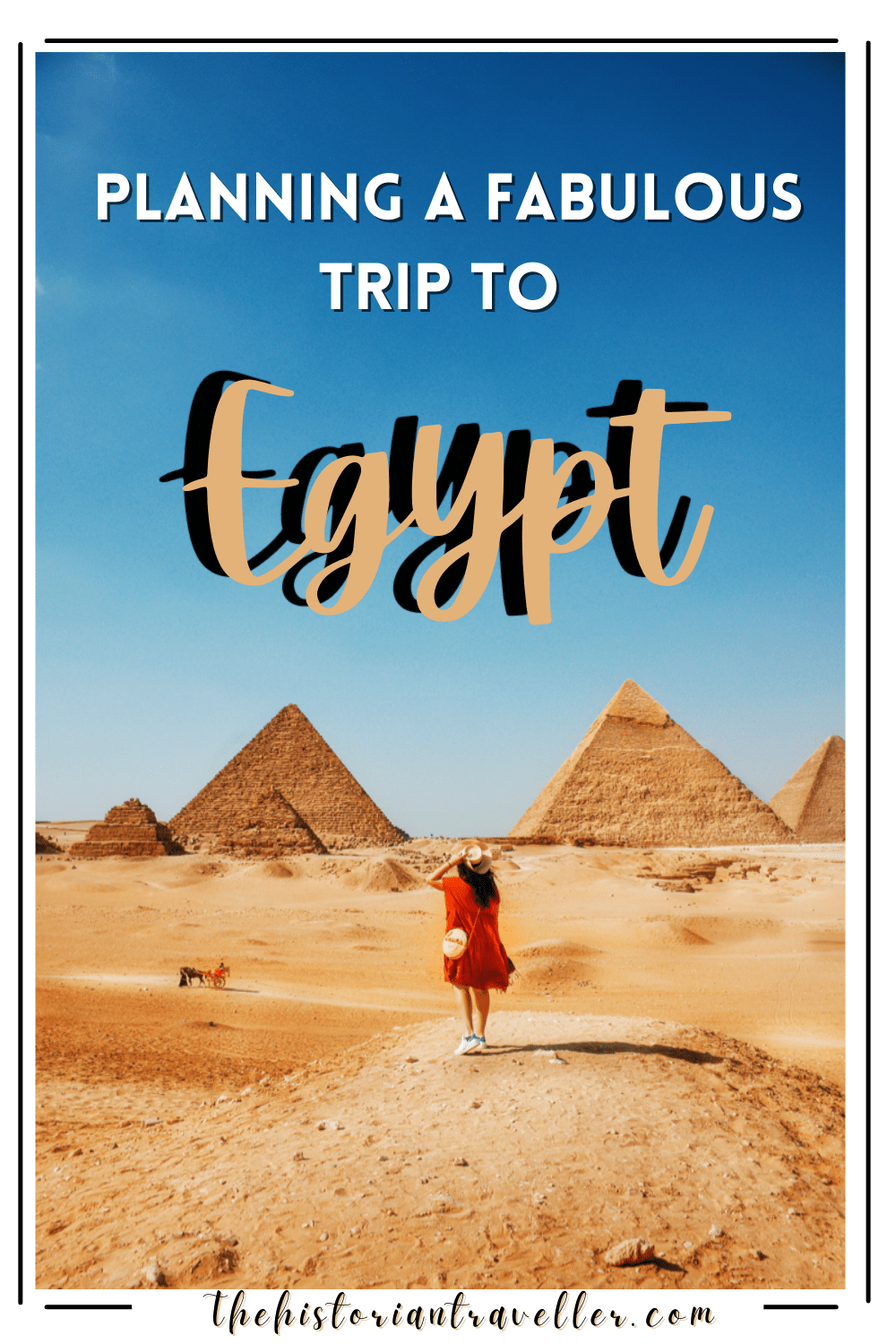
Here we are after 3 weeks in Egypt! I can really say we got a fabulous time in the lands of pharaohs! During this travel, I’ve recorded everything meticulously in order to write this article and help other people planning a trip to Egypt!
If I think that about one month ago, I was super nervous about this trip I feel a bit ridiculous. I was so scared that something could go wrong, not particularly about safety but more about logistic. In fact, as you probably know, we don’t travel often with group tours. So, also this time, we did our Egypt plan totally on our own! Ergo, I was worried about losing trains, being scammed, getting lost and so on. I can luckily said that all my fears dissipated rapidly. Indeed, I confirm that travelling to Egypt independently is TOTALLY DOABLE. We got a fabulous hassle-free trip. I am planning to write extensive guides about each of the places we visited. But for this complete guide to Egypt, I will give you some general tips on the organisation of our trip!
Table of Contents
Visiting Egypt. DIY itinerary or organised tour?
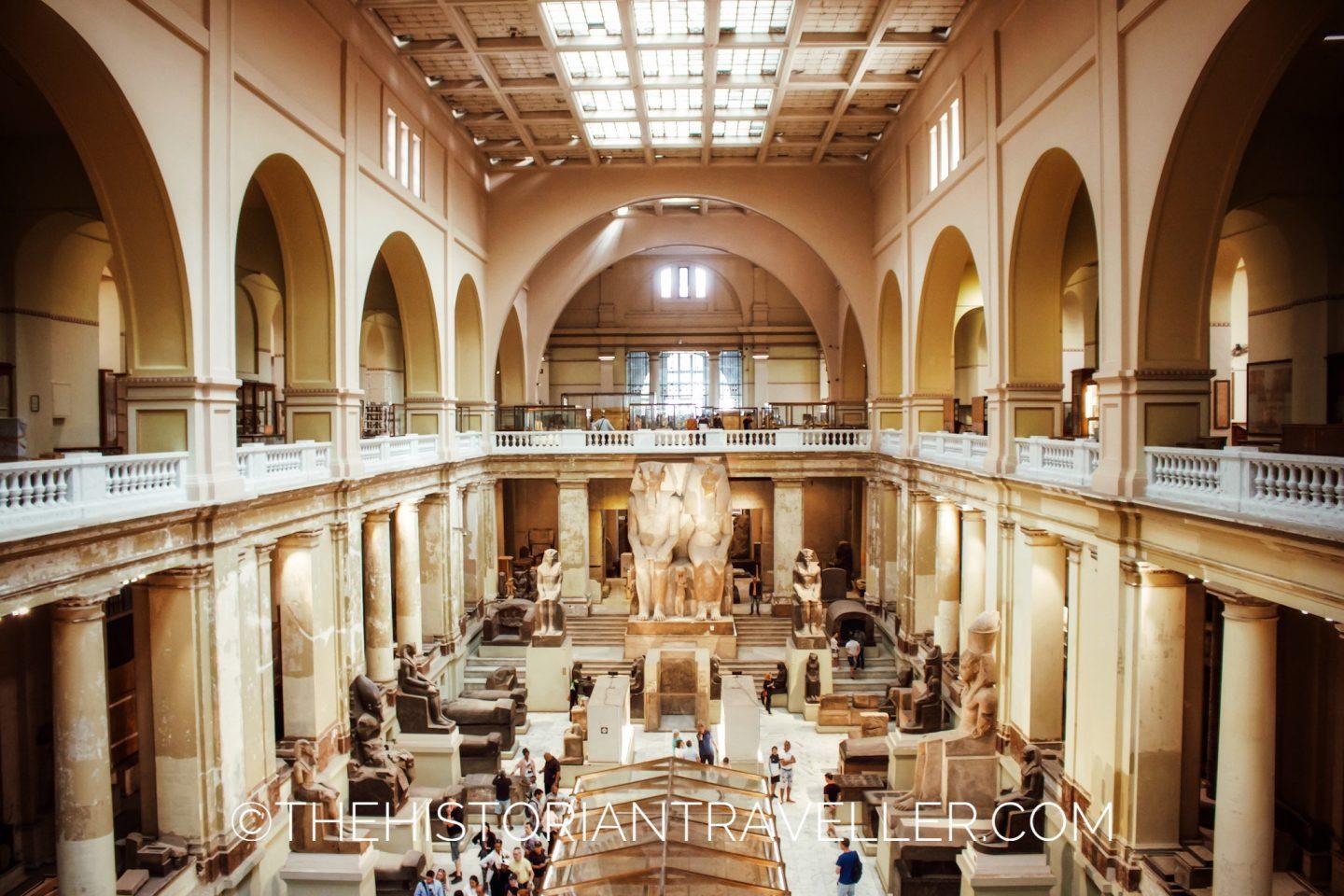
I’ve been asked this question a lot and there are pro and cons on both type of adventures.
Visiting Egypt with an organised tour
If you are planning to visit Egypt on an organised tour/cruise etc., you have almost nothing to worry about. Indeed, there will be other people who will take care of you and your holiday. Everything will be already scheduled, (often on tight timing) and you have just to show up on specific appointments and enjoy your day. I have to say, this is a tempting option. Especially if you are an Egypt-first timer. Going around with an organised tour in Egypt is still the most recommended option. Particularly if you are unsure of your organisational skills or how to move from a place to another. Moreover, organised tours can spare you the unmissable harassment from vendors/scammers etc. Most guides are well-knowledgeable Egyptologists, so it may be worth to spend some money in Egypt tour packages.
The con of organised tours is that flexibility is a little sacrificed. You won’t have much time to wander alone (particularly with shared tours). Moreover, on pre-planned itineraries you won’t have the possibility to change something if you don’t like it. A far better option if you still want to have an organised tour is get a private one. Nevertheless, keep in mind the cost might be higher.
Planning an independent trip to Egypt
If you are a bit adventurous, like me, and you need space and freedom from planned schedules, an independent trip Egypt is your way to go. Travel to Egypt independently, will ensure your needs will met at 100%. No undesired stops on your way, no potentially-annoying people on your group and no one to tell you what your schedule is. Our Self-guided tour of Islamic Cairo is still one of my favourite activities we did in our month spent in Egypt!
For this reason, the information you will find on this guide, will be highly valuable to plan your trip. Indeed, is better to know in advance, what you will (probably) face during your Egypt vacation.
Is Egypt worth visiting?
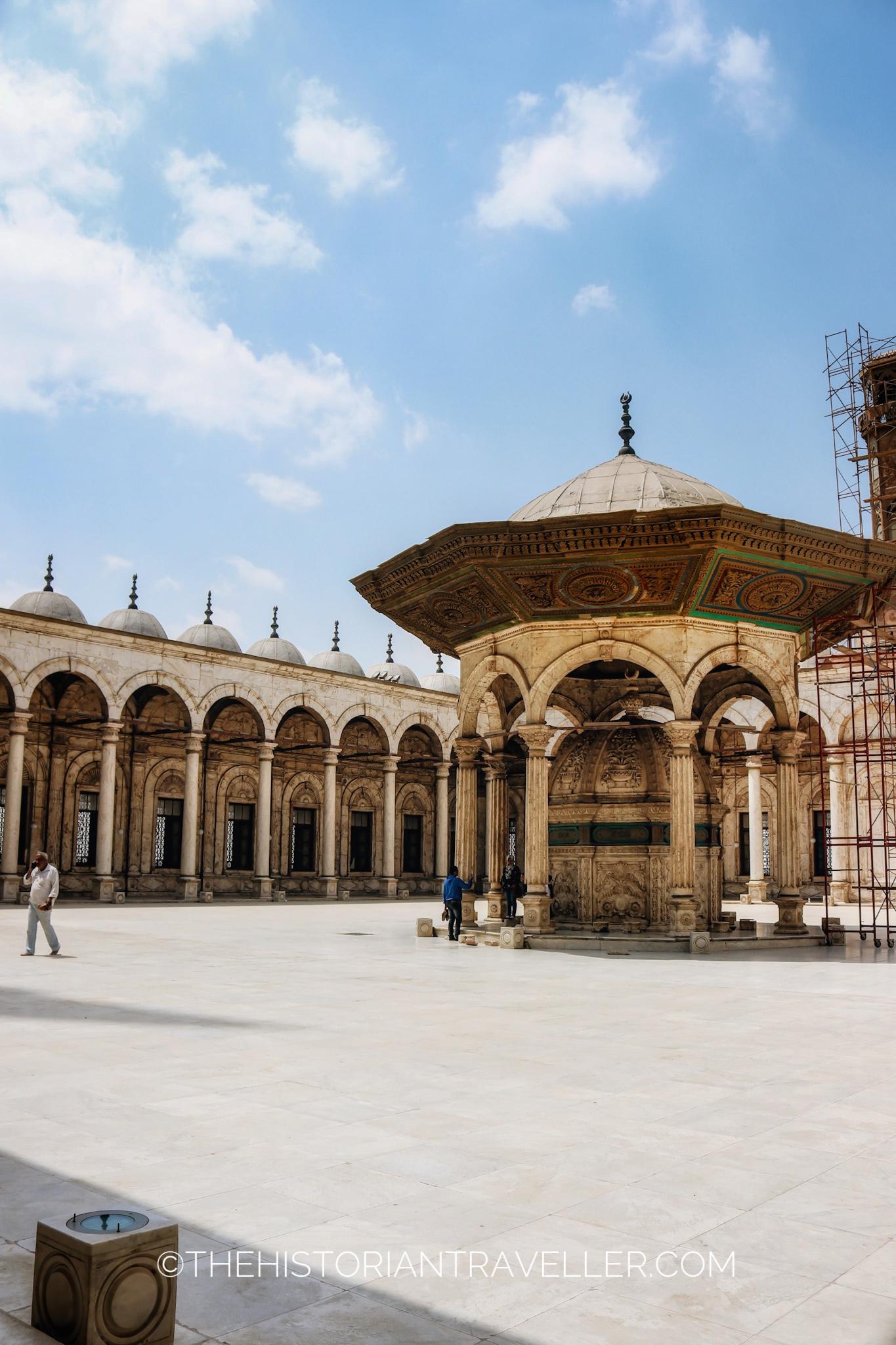
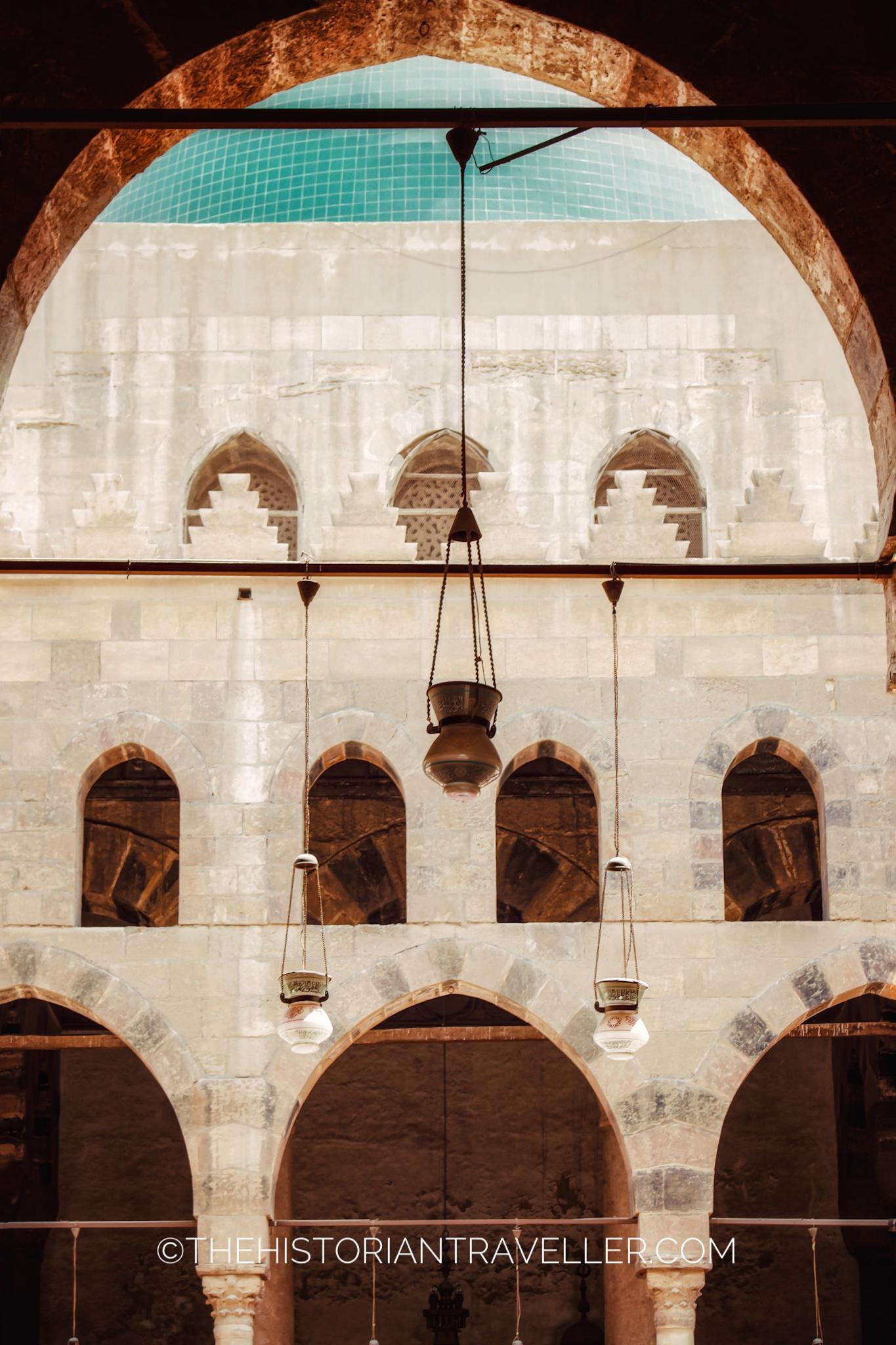
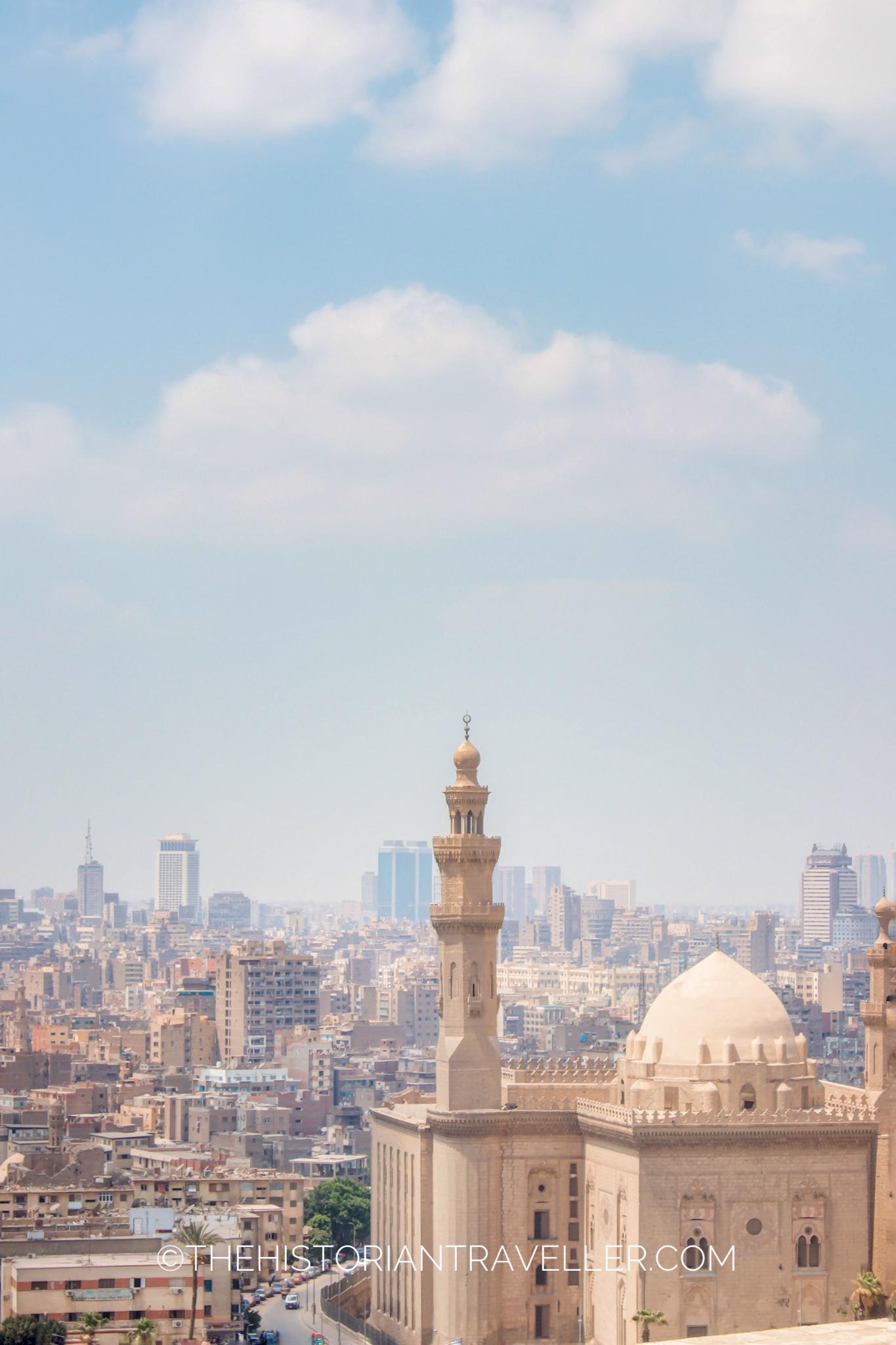
Despite its reputation improved during the last couple of years, Egypt is still far from being an “easy-going” country. Especially, if you want to travel independently. Egyptians are working hard to reach excellent standards in the tourism field and I am sure that they will get there soon. However, until then, you have to keep in mind that Cairo is not Barcelona. Indeed, you can get in trouble if you don’t inform yourself about your destination.
Regardless the bad media reputation and some of the rough aspects of the trip we encountered (I will discuss later). I think that Egypt is really worth a visit. Indeed, this trip it is a once in a lifetime experience and, honestly, I can’t wait to return and explore more of this fantastic and still underrated country.
10 Essential things to know BEFORE going to Egypt.
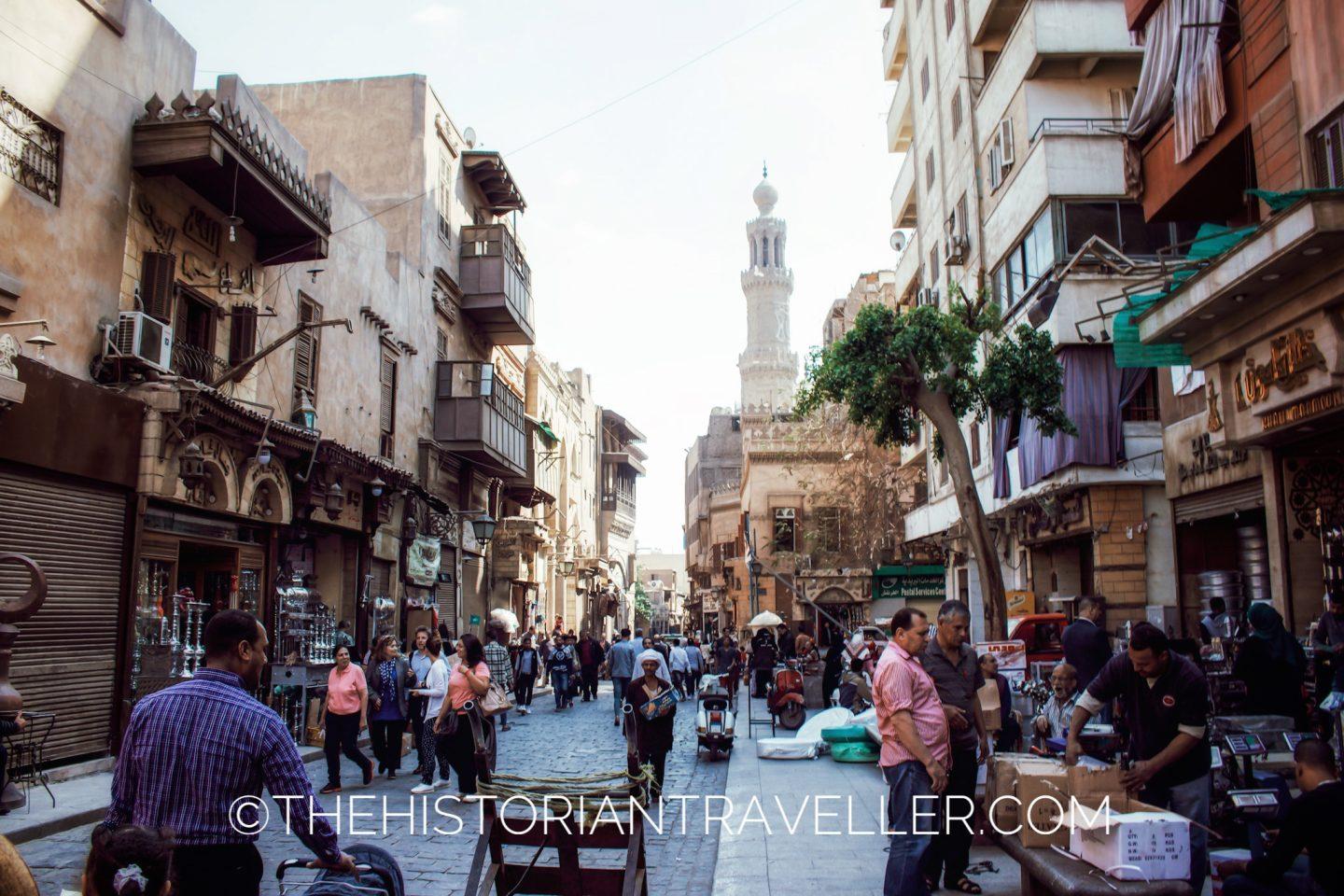
Egyptian Visa and Currency
1) You will need a tourist VISA to enter the country. This costs $25 USD per person and it’s doable on line at Visa2Egypt or in person at your arrival. BE AWARE that if you decide to do it in person YOU MUST carry USD dollars in cash with you. Indeed, they don’t accept any other type of currency or card payments. At your arrival, don’t look for an immigration office but for a BANK OFFICE. This is located immediately at the right side BEFORE the line for the passports checks. Here you can buy the visa! If you do it online (as we did) be aware of fake visa websites!
Trust only Visa2Egypt. Here you’ll have to upload a copy of your passport and a photo of you in passport size (max 5MB). I received my visa in about 48h but it may take up to one week. With your e-visa, you can go straight to the passports checks. Here, the immigration officer will collect your paper and put a stamp on your passport. He will keep your e-visa. So, every time someone ask you for the visa he/she means the one you have in the passport.
2) Egypt currency is the Egyptian Pound. If you are travelling from the UK or Italy, there is no way you can obtain Egyptian pounds BEFORE your travel! You have to withdraw these at the local ATMs (there are various inside and outside the airport).
Religion and Restrictions in Egypt
3) Egypt is a Muslim country. Despite it is more liberal than other Muslim countries, it is advisable to bring conservative clothes. You are advised to wear these in all the Muslim Areas (e.g. Islamic Cairo) and in the cities of Cairo and Alexandria.
4) Smoking (tobacco) is allowed everywhere. Many restaurants have a “non smoking area”. You can ask to be seated there if you can’t bear a cloud of smoke all around.
5) Be cautious in street photography/videography, especially in Cairo. It’s forbidden to photograph governmental/military buildings. This applies also to governmental sites located in in historical building. Take care because you can risk the prison for this!
6) Bringing/buying drugs in Egypt is strictly forbidden and punishable with prison. Moreover, the use of some medicines is forbidden/restricted. If you are taking some specific medications bring your doctor prescriptions written in English. Keep all your medicines (also the general ones as ibuprofen) in their original package and separate from other products for possible inspections.
Entry Tickets and discounts in Egypt
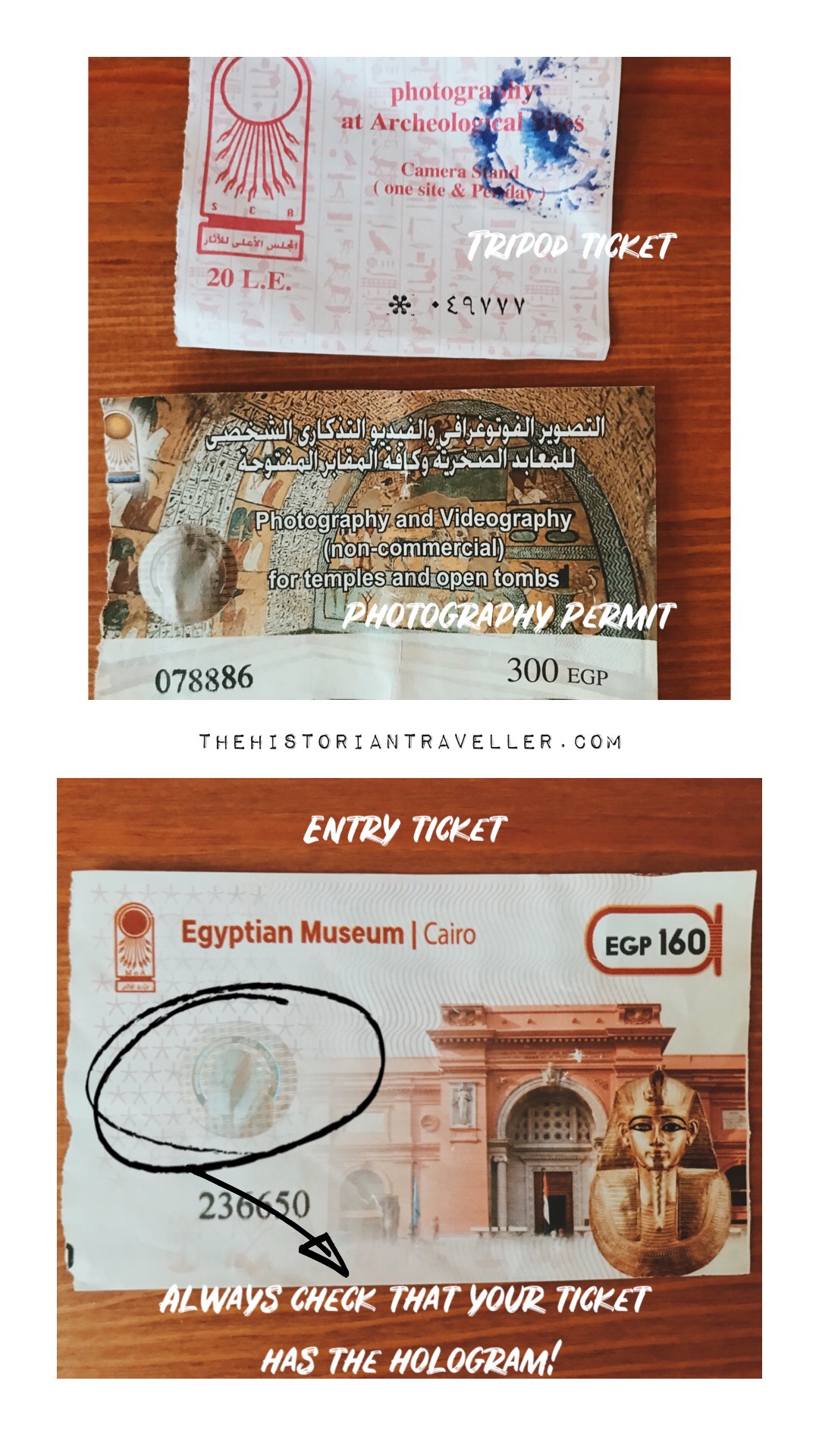
7) An online ticket store for attractions (e.g. Pyramid/Luxor) doesn’t exist (yet). If someone is selling tickets online, that’s a scam!! Tickets are sold exclusively at the ticket counters outside the attractions. Moreover these tickets have a hologram proving their authenticity (see the photo above as main example).
8) If you are a student older than 30 (in some locations 25) years old, your ISIC card is not valid! I know that’s unfair. Nevertheless, you can’t do much against this except fighting with the guy at the ticket counter and hope for the better. I was able to use my ISIC card in most sites. However, they refuse it in Luxor (everywhere except the Luxor Temple) and at the Egyptian Museum.
Transportation in Egypt
9) Uber in Egypt is safe and reliable. We used it in Cairo, Alexandria and Hurghada. However, if you see on the app that your driver accept your ride but you wait are waiting more than 5 mins. Cancel your booking and try again! We noticed this little scam in Cairo. Drivers super far away blocked our ride and took ages to reach us, when another driver was clearly nearer from the map. They do this because after 5 mins waiting you are forced to pay 10LE if you cancel. Therefore, they get paid anyway! This happened to us 5/6 times but most of the rides were completely fine. We reported this and Uber took the information very seriously and we received an email confirming they are taking actions against these scams.
Tipping
10) Tipping in Egypt is a large part of the Egyptian culture. In fact, you are expected to tip for everything. Want to go to the toilet and need paper? Tip. Someone opened your car door? Tip. A guy inside the Karnak temple is pointing something invisible speaking to you in Egyptian? Tip. Would you like a cup of free tea? Tip. Tipping doesn’t meant that you have to run out of money in a second. It is up to you judging who deserve a tip or not. Most of the tips are around 5-20 LE (I tipped 50-100 LE only people who helped/guided us half/whole day).
Planning a trip to Egypt
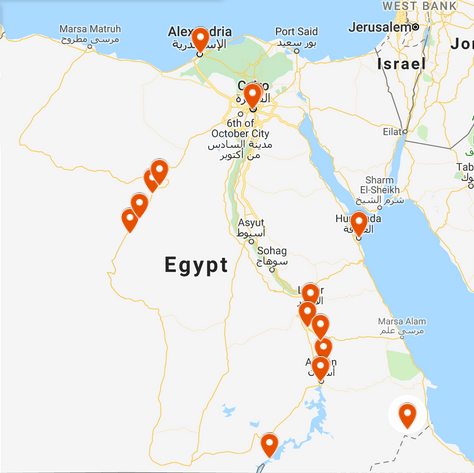
First things first. Before talking about Egypt tours, transport or accommodations. The most important thing to do, is deciding where you want to go and how long time you want to spend in each location. Having a draft of your itinerary before booking any tours or accommodation is an essential step. This will help you figure it out what to visit in Egypt, where to stay in Egypt and, most importantly, the lenght of time to spend in each location. To me it was quite easy to decide where I wanted to go. I dream of this trip since I was 10 years old. Therefore, I already knew very well the most important Egyptian sights.
We stayed about one month to Egypt. It was a good period to travel for us. Indeed, I was finishing my PhD with no other working commitments and my husband had most of his annual leave intact. However, not all travellers have that length of time available! Most people have usually between 1-3 weeks. Therefore, to simplify this itinerary, take in account this is planned around 3 weeks. You can adjust it according to your needs. To figure it out how much you can cover in three-weeks itinerary in Egypt, you can see the picture above.
The latest 3 weeks itinerary to Egypt
Day 1-5 The must-do sights. Explore Cairo and the Pyramids of Giza, Saqqara and Dashur
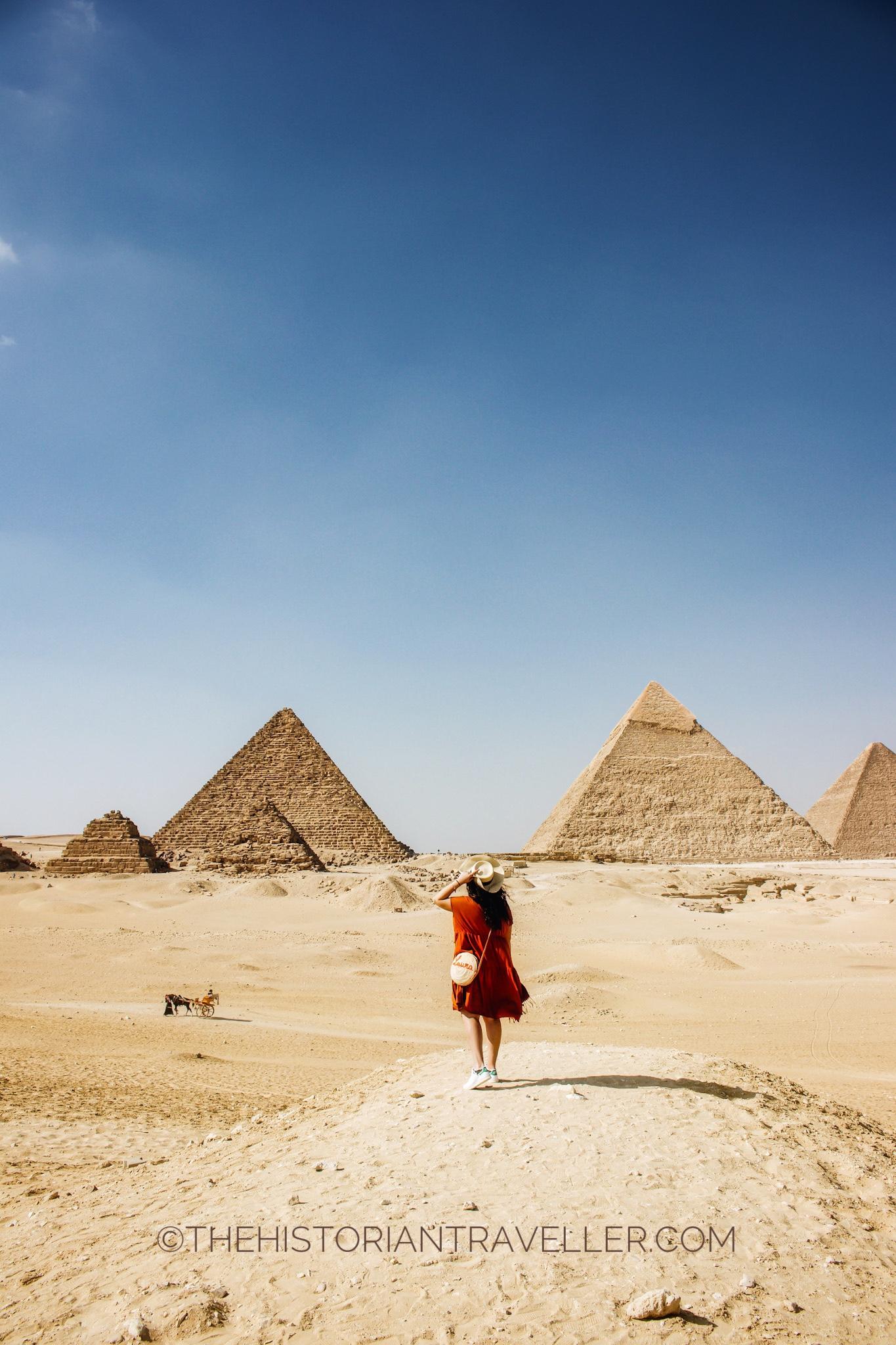
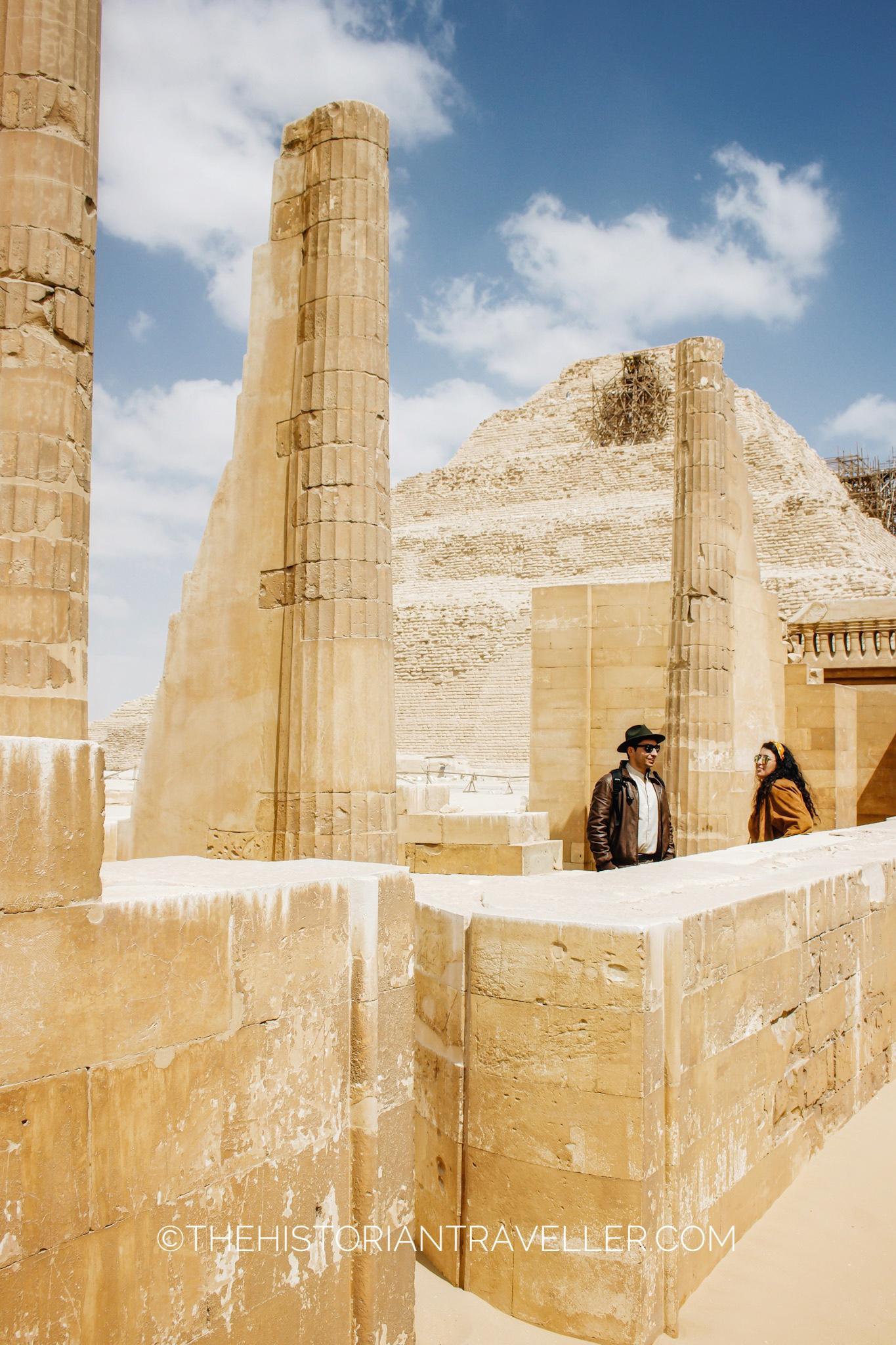
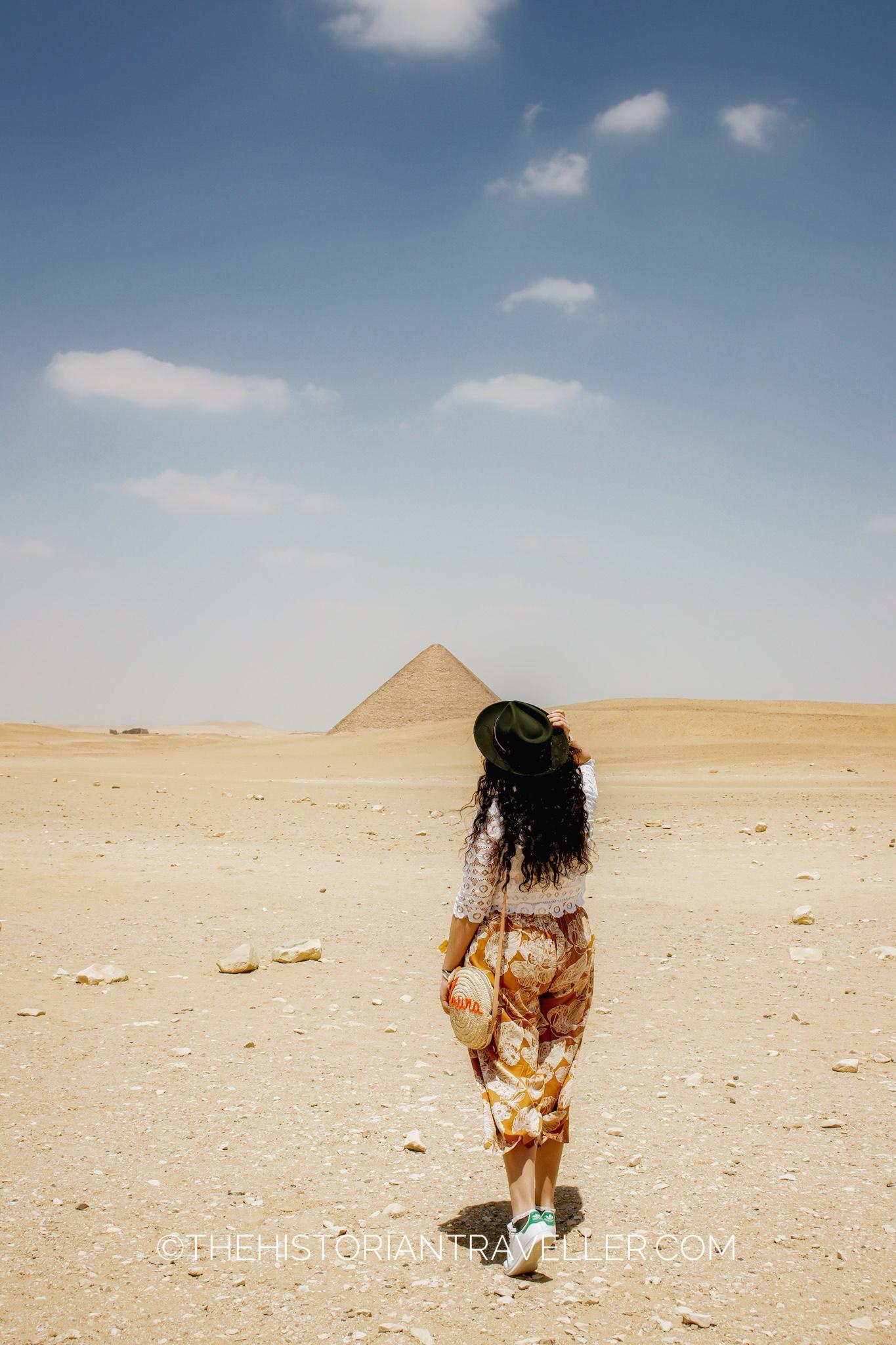
Start your itinerary with a fresh dose of adrenaline and culture shock. Arriving in Cairo will certainly wake-up your senses as you will immediately welcomed by fragrant spicy smells, chaotic streets and centuries-old fascinating architecture. To get the best of your stay, I recommend at least a two or three- days stay Cairo. Don’t forget to add a stop to Islamic Cairo, Coptic Cairo, the unmissable Egyptian Museum and, perhaps, add a Nile cruise if you have some spare time. From later this year you can also visit the incredible GEM. I honestly can’t wait to plan another trip just for this!
A trip to Egypt is not complete without a visit to the Pyramids. Visiting the Pyramids of Giza is probably one of the things that most travellers have on their bucket list. They are the last surviving ancient wonder of the world and their casing stones are still considered an architectural marvel. The Giza pyramids complex is a wide area to explore and is advisable to have a whole day tour. However, if you have a strict schedule, you can plan on a different way. Indeed, it is possible to have a half-day in Giza and the other half visit to the other Egyptian pyramids. These are located in Saqqara and Dashur. If you have time, I warmly recommend you to add these sites to your itinerary and visit them with a guide.
Day 6-7 The hidden gem. Lose yourself in the beauty of the Western Desert with an overnight camping
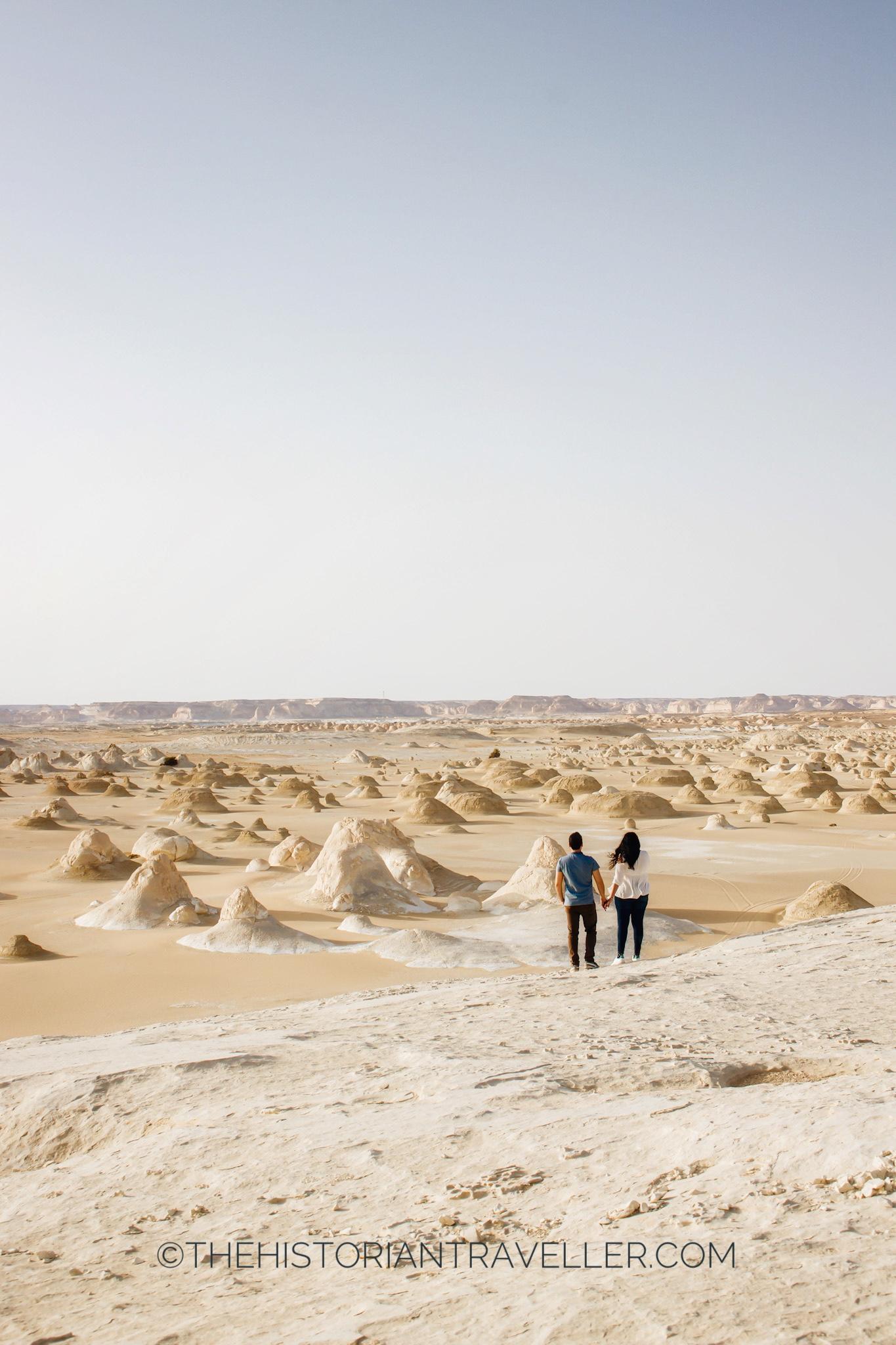
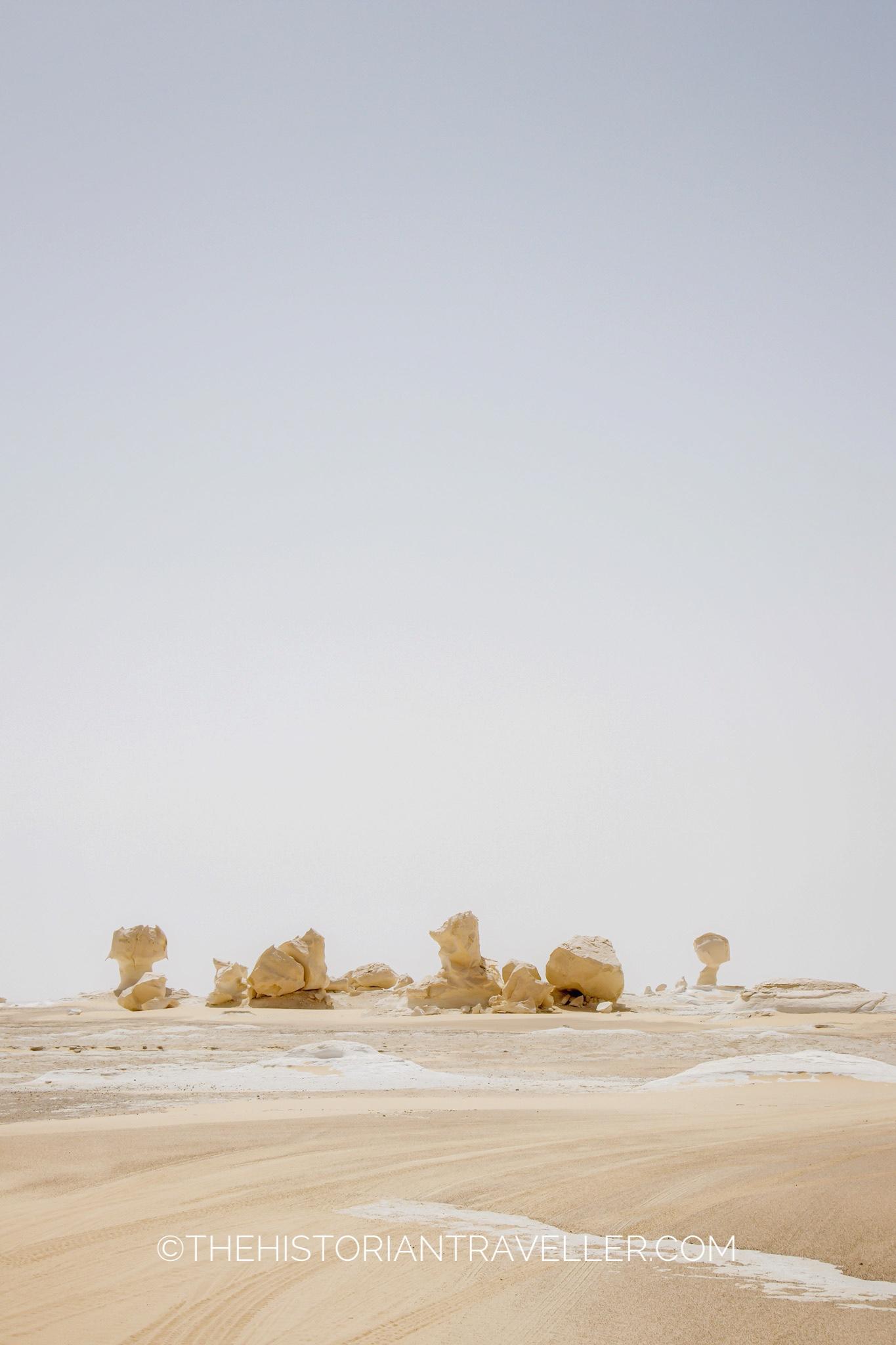
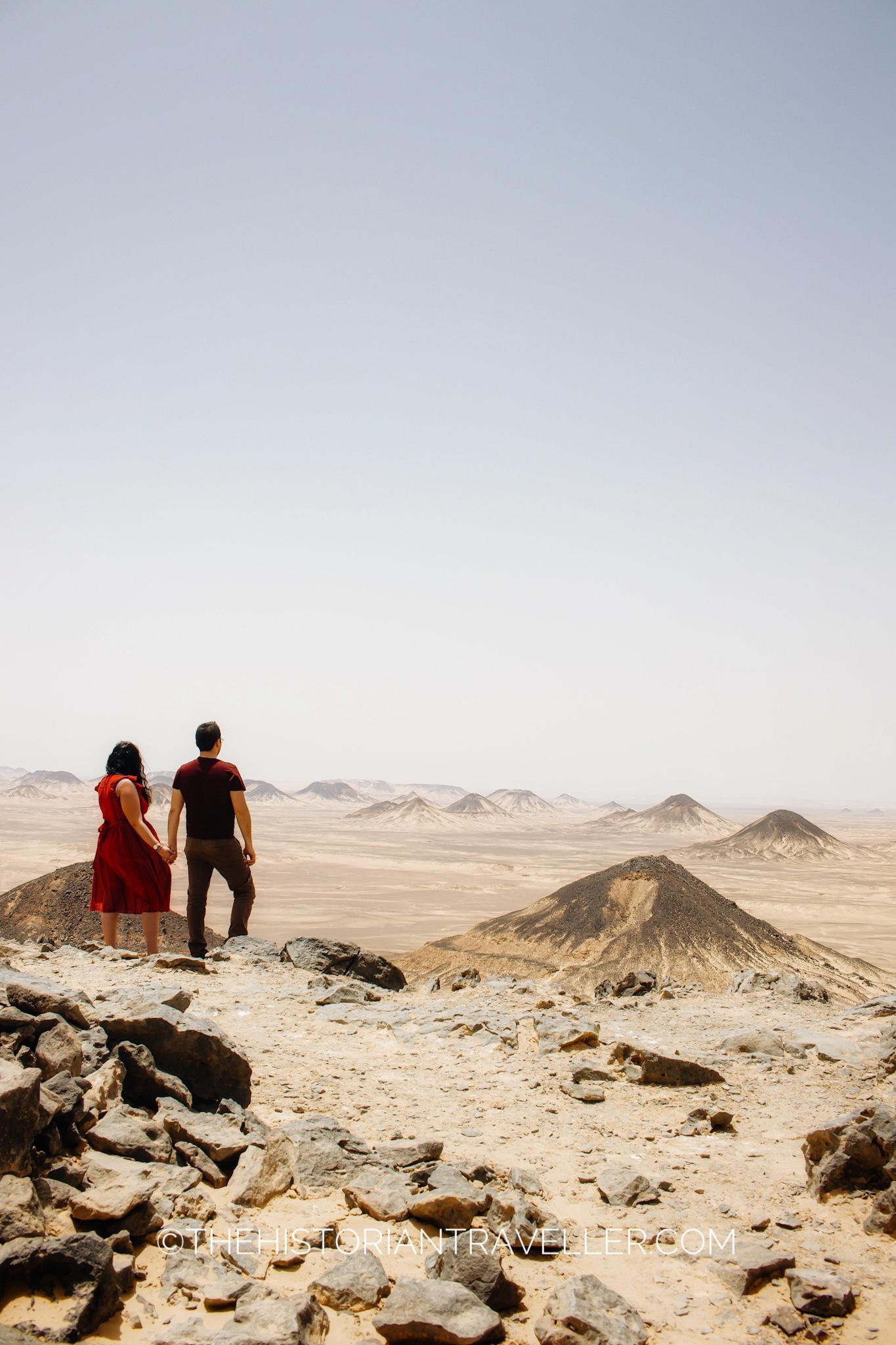
If you think you have seen everything, it’s because you haven’t visited the Western Desert yet. This incredible area extends from the western river Nile to the border with Lybia. It covers an area of 262,800 square miles and it’s absolutely incredible. Its geology it’s so unique that you won’t believe it. Some of the most common tours of this area of Egypt, include the Black Desert, the White Desert and the Crystal Mountain. Because these areas are very remote, you can’t visit them on a day tour. Indeed, it takes about 5 hours to reach the Western Desert from Cairo. Therefore, you’ll need to organise an overnight camping with a reputable tour operator.
Our visit was organised by Western Desert Tours and I couldn’t ask for a better stay! You will be picked up at early morning from your accommodation. Then you will be guided to the desert(s), sleep under the stars after a nice dinner and driven back to Cairo the morning after.
As this is a very specific and unusual tour, I recommend you to read my Guide to the Western Desert before planning your trip.
Day 8. Jump on a train and explore the mythical Alexandria
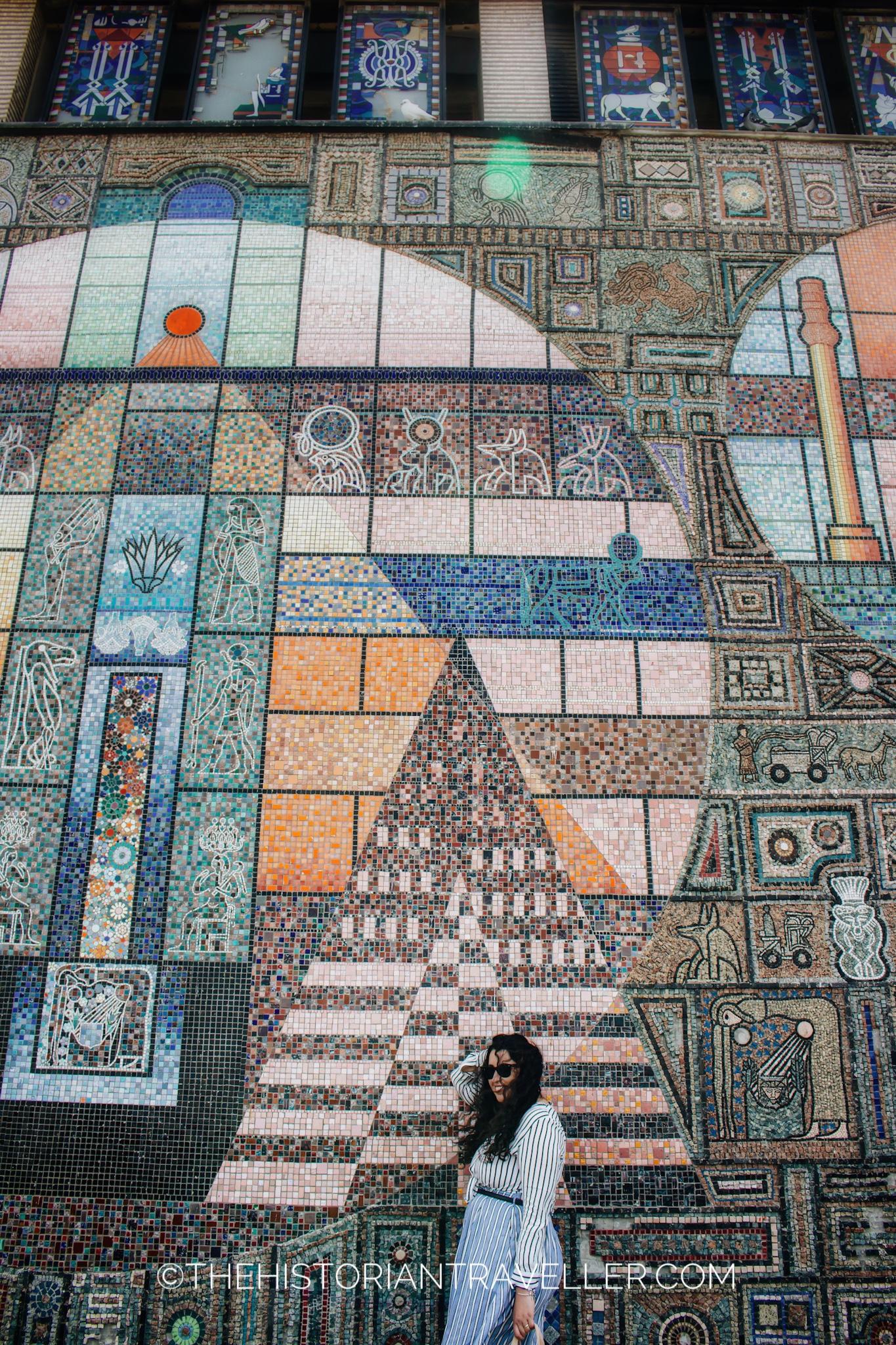
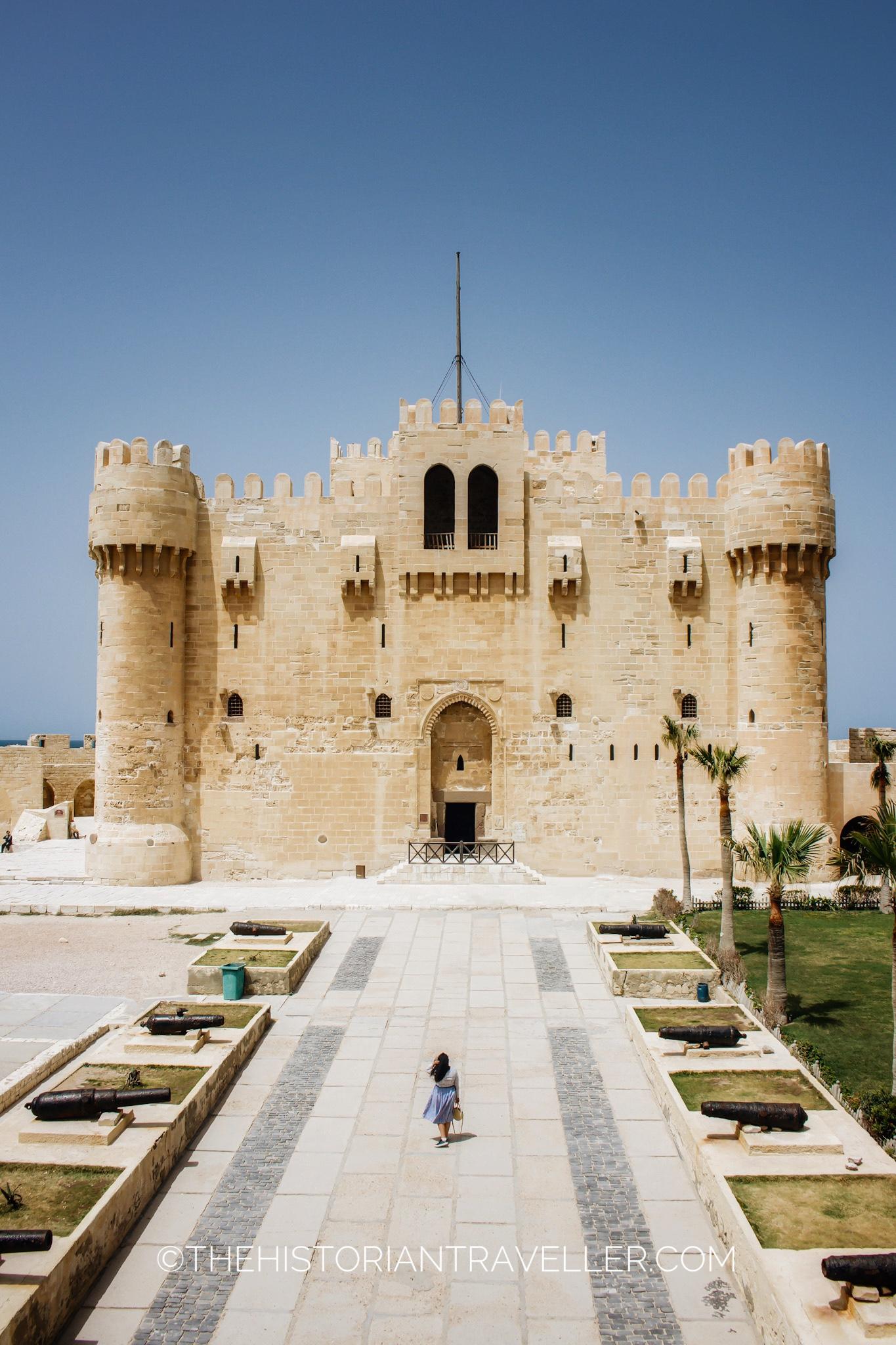
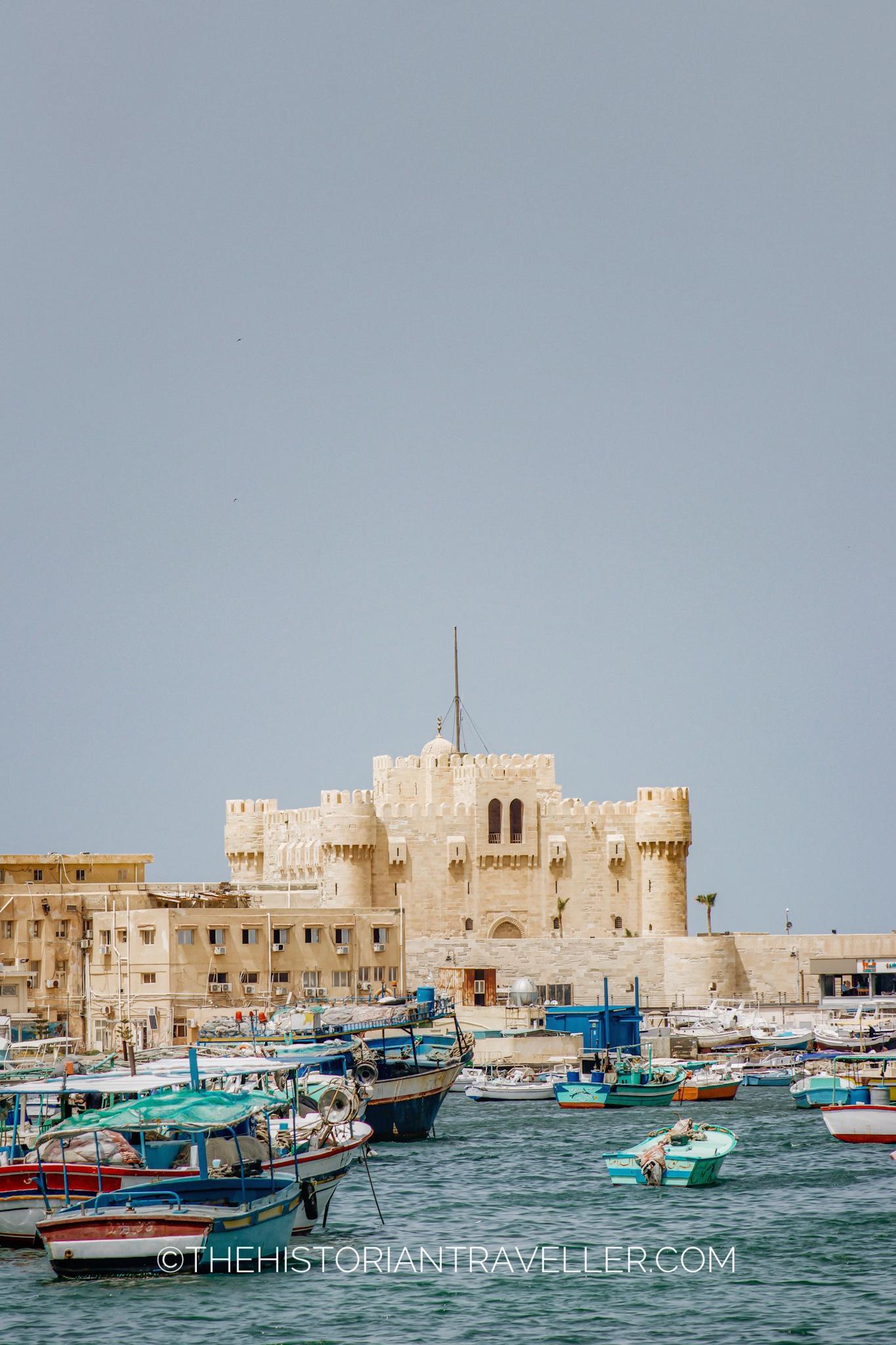
On your 8th day in Egypt, take a break from Cairo, jump on a train and head to Alexandra. It’s an easy day trip. Indeed, the train ride is just 2 hours and a first class ticket won’t cost more than 10 GBP for a return trip.
Is Alexandria worth a visit?
In my opinion, yes. Alexandria was one of the greatest cities on the Mediterranean. A Hellenic centre of science, culture and marvel. It was capital of Egypt from 332 BCE to 642 CE, founded by the mythical Alexander the Great. During the Hellenistic period, Alexandria was famous for the Lighthouse of Alexandria. This was one of the Seven wonders of the ancient world, which you can still see part of the basement in the Qaitbay Citadel.
Among the top things to do in Alexandria don’t miss the Bibliotheca Alexandrina, the Pompey’s Pillars, the Roman Amphitheatre, the Catacombs of Kim el Shoqafa and the Montaza Palace. Ideally, you should spend at least two days in Alexandria to fully appreciate all these sites. Having only one day, we focused our visit only on a few must-do sights. At night, you will take the train back to Cairo and spend the night as you want in the city.
Day 9 – 11 Experience Upper Egypt. Visit Aswan, Abu Simbel and Nubia
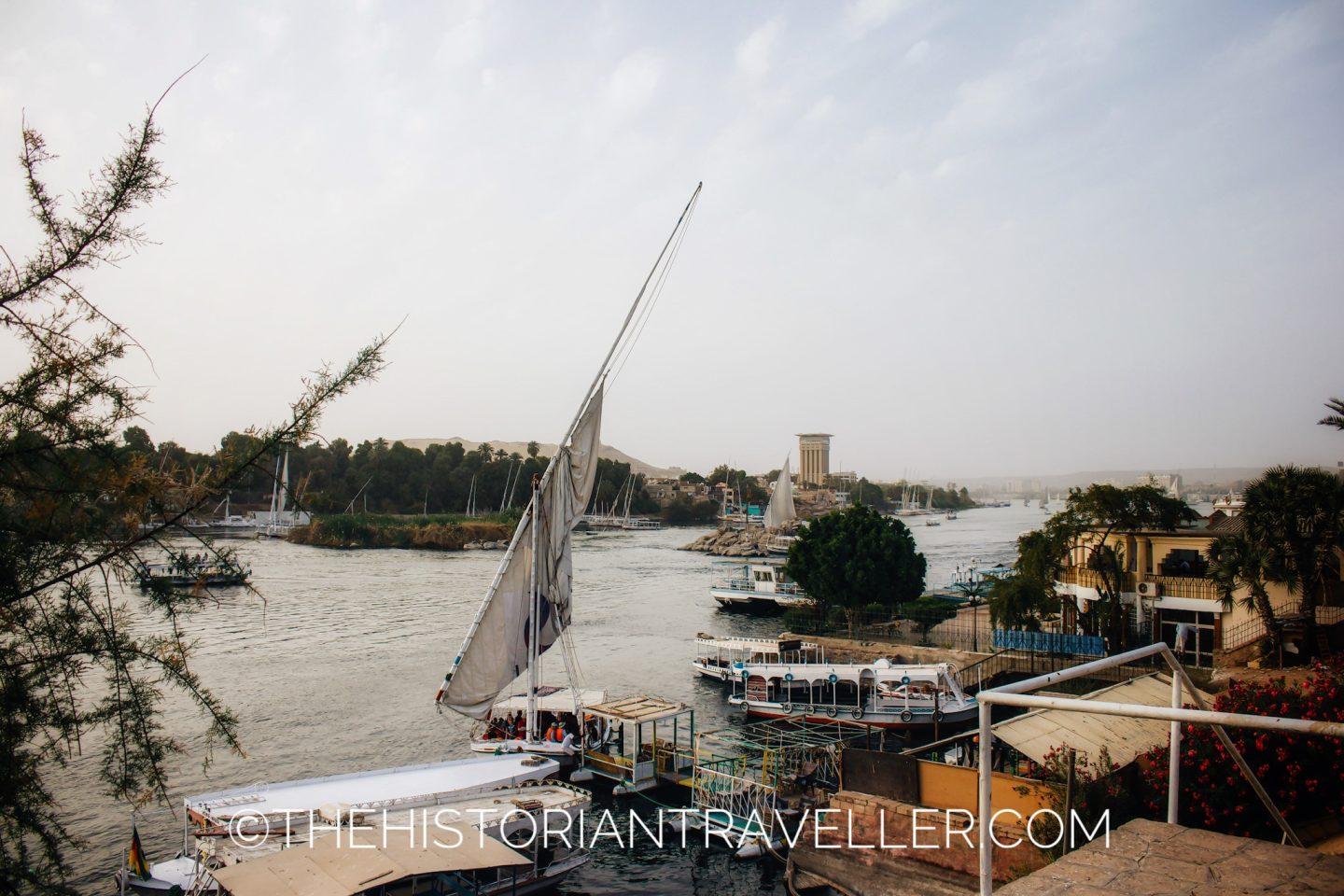
Welcome to my favourite part of Egypt. A place where the crowded and loud mornings in Cairo are replaced by the peaceful sound of the Nile river and its feluccas, the sight of immense temples and the smile of kind people. Aswan as it beautiful as it looks.
You can reach it comfortably by train. Nevertheless, to have more time to explore, my suggestion is to take a flight from Cairo. This will be more expensive, around 70-120 GBP per person for 1h flight. However, it will save you a lot of time compared to train travelling and you can explore Aswan immediately.
Aswan three days itinerary
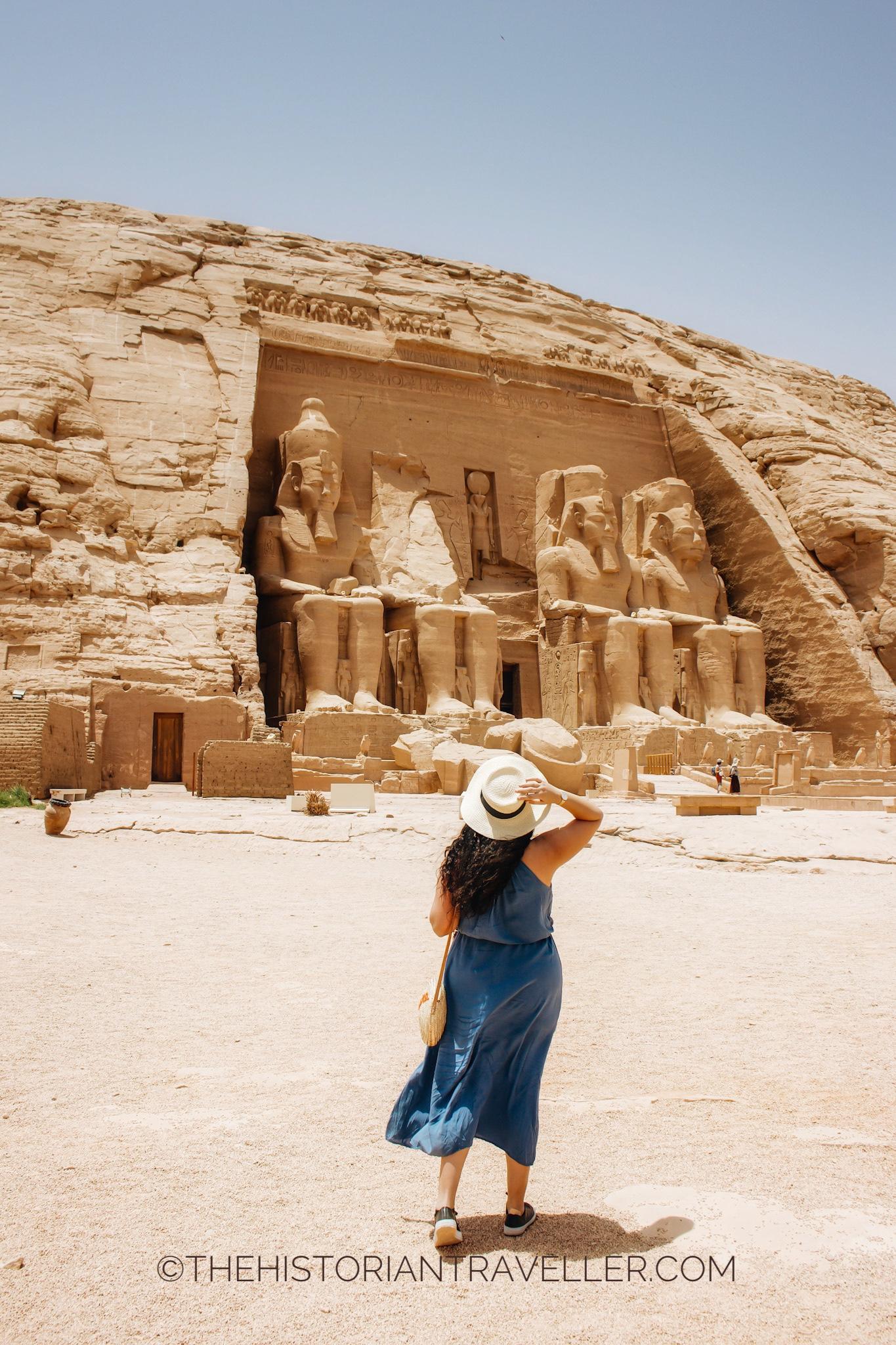

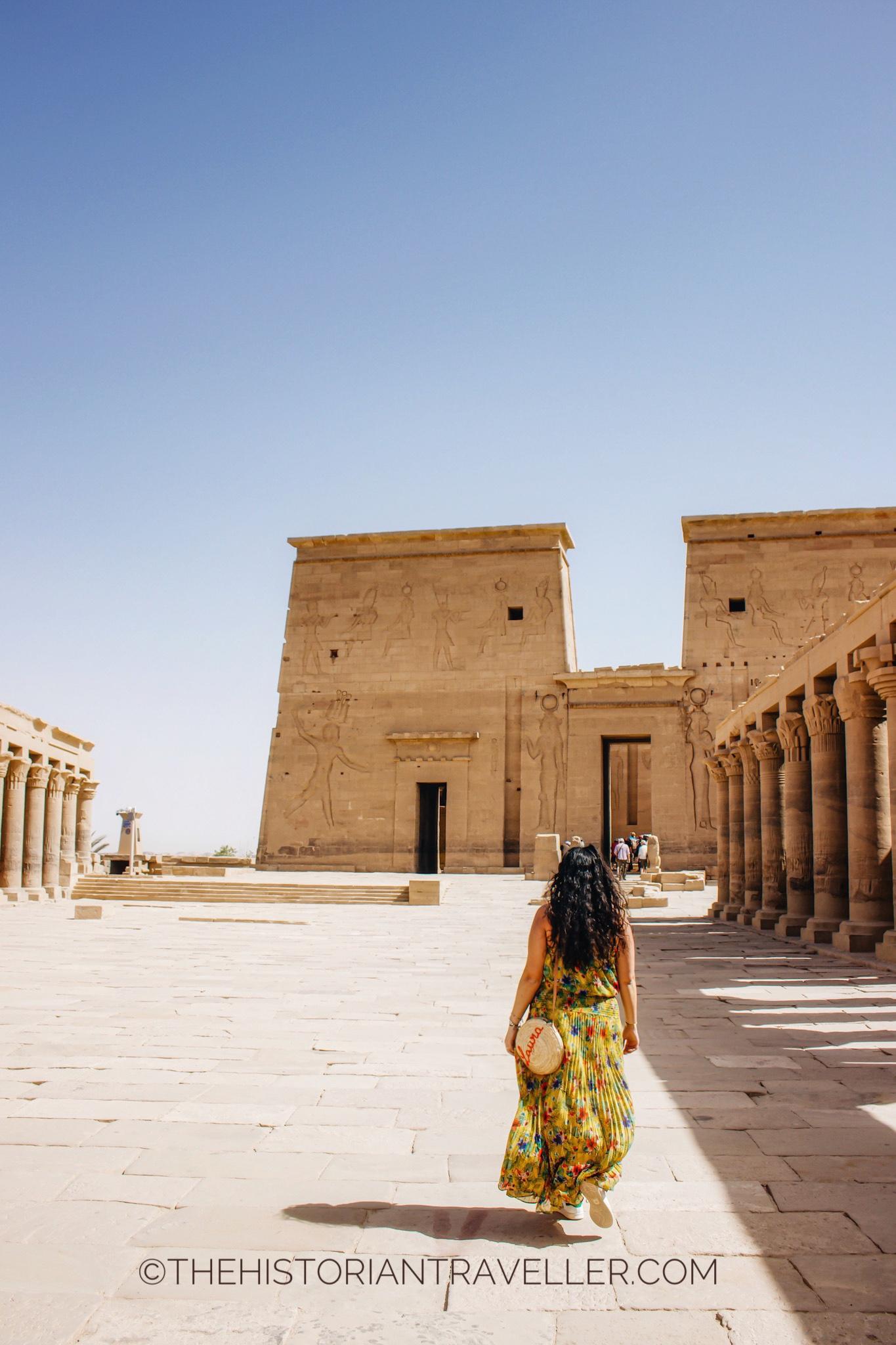
Day 1
Take an early morning flight. On your first day in Aswan. You will set up into your accommodation and familiarise with the city and its main sights. For a more traditional experience, you can book an Airbnb accommodation in Elephantine Island. You will stay in contact with local people and experience the slow Aswan life. We personally stayed in a Airbnb in the Animalia Museum and we loved it!
2023 Update. Unfortunately, this accommodation is no longer available. So, you won’t find anymore the link here.
After a slow morning exploring the area, you can spend the afternoon at the Old Cataract Hotel. This is one of the oldest hotels in Egypt. Here you can enjoy a magical sunset and a perfect dinner with the view of the river Nile.
Day 2
On your second day in Aswan, you could visit Abu Simbel. You can decide to start very early in the morning (4 am tours) or take your time and depart later in the day. We booked a tour with Emo Tours and asked them to depart around 8 am. This was strategically planned by me to reach the site when all the morning crowd was gone. You will return in Aswan around 5-6 pm and decide to spend the night as you want.
Day 3
If you follow this itinerary, your third day in Aswan will be very busy! For this detour, I warmly suggest you to find a guide in Aswan the day before. I recommend you to agree a price for taking you around in all the sightseeing prior to the trip. We personally met our guide, Omar Alsharif, while walking on the Nile promenade. If you just walk by, there will be many people approaching you for tours. He was the nicest man and we immediately had an understanding with him! Sharif brought us to the Philae Temple at early morning, and organised for us a mini private Nile cruise to the Nubian village immediately after. We visited also the beautiful and peaceful Kitchener island, home of the Aswan Botanical Gardens. You will return at your accommodation by 7 PM.
Sharif organise daily personalised tours of Aswan and its surroundings. If you would like to contact him, send him a DM on the facebook page linked on his name.
Day 12 Travel to Luxor by car and visit the temples of Kom Ombo, Esna and Edfu
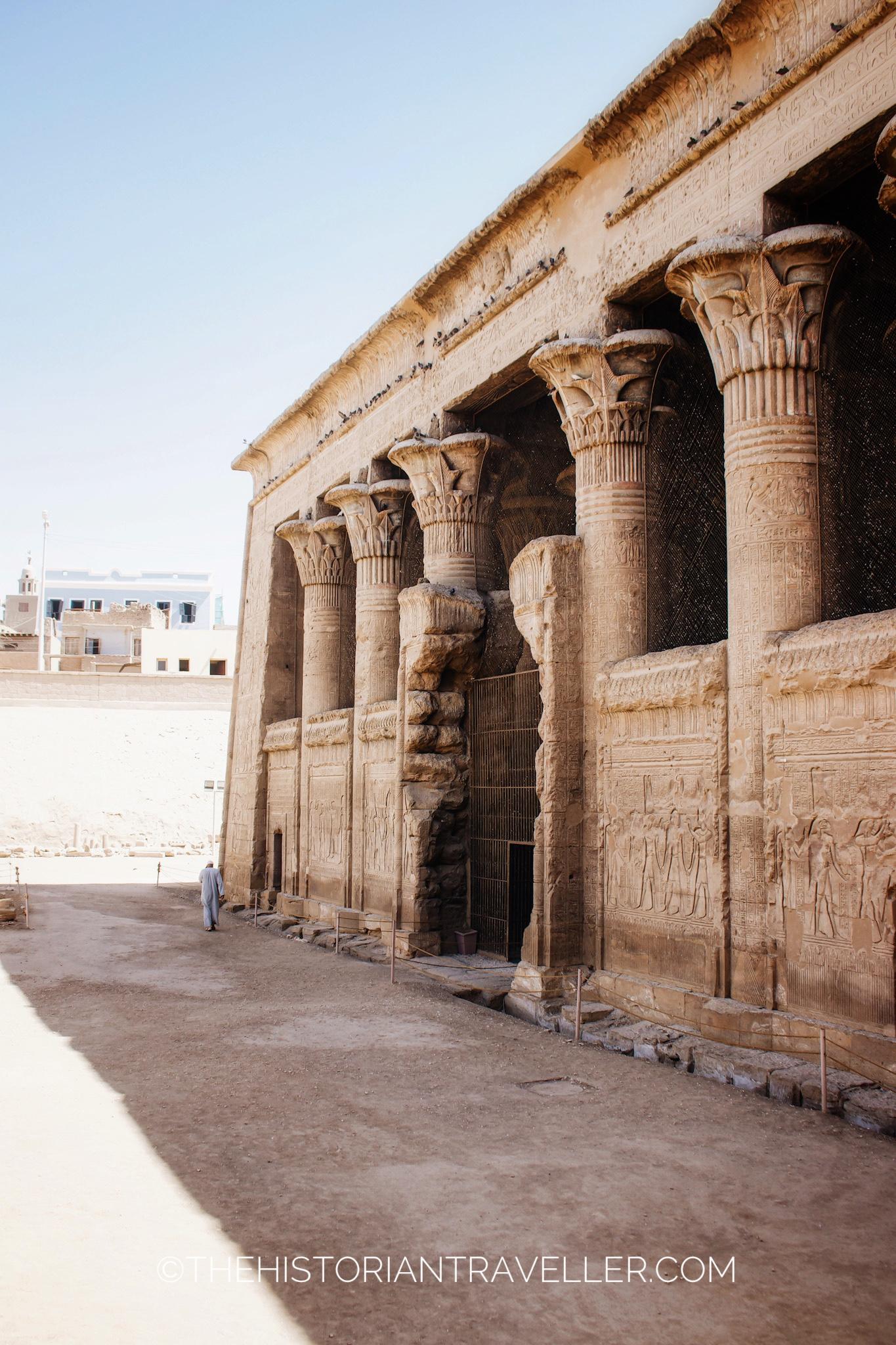
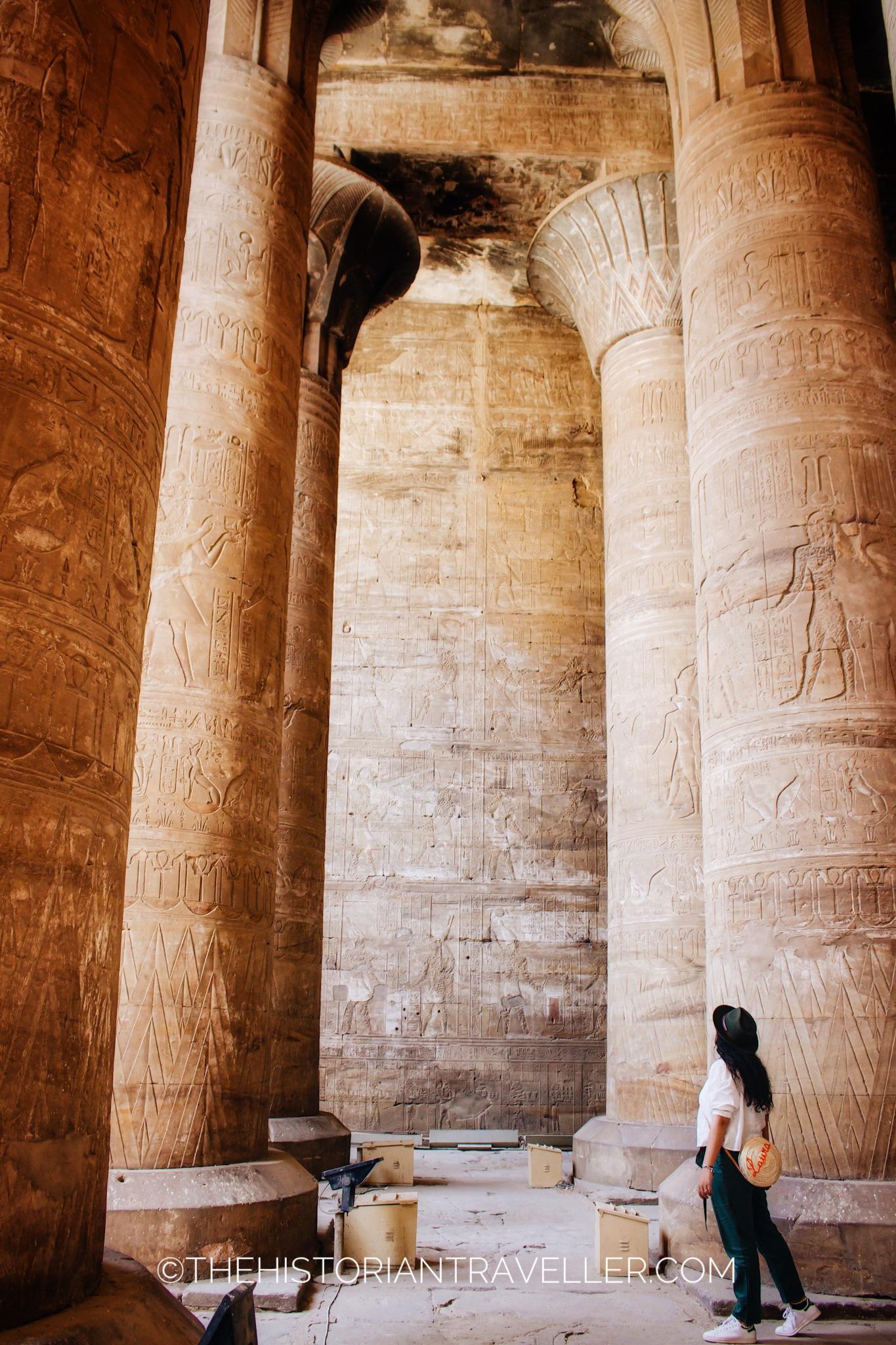
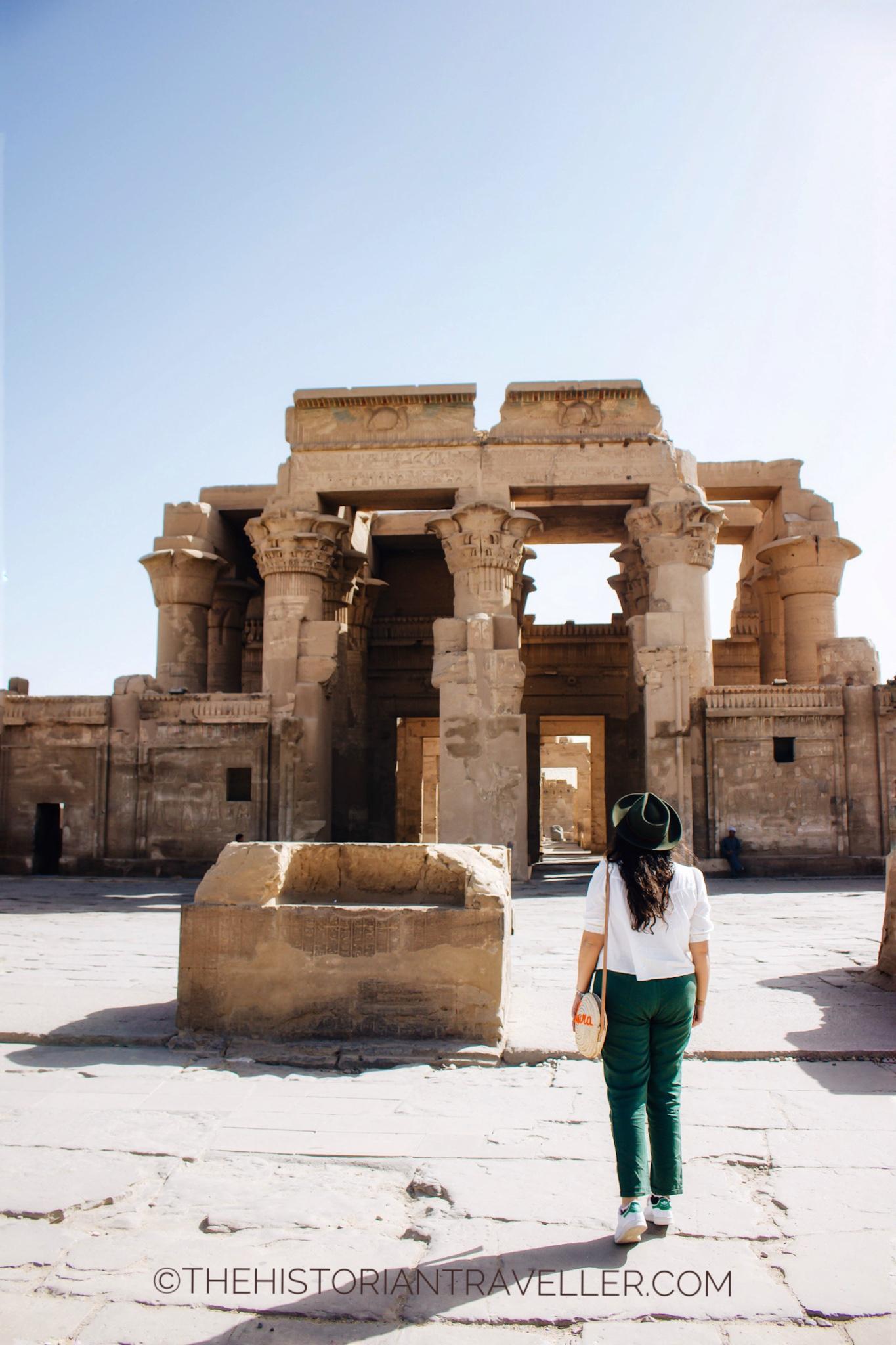
The next phase of this itinerary can be planned in different ways. Some people decide to take a Nile cruise to reach Luxor from Aswan. Despite sounded appealing, we decided instead to proceed by land. This because we wanted to visit the temples of Kom Ombo, Esna and Edfu. You can still visit them by cruise but instead of taking half a day, you’ll need 2-3 days. Indeed, Nile cruises, although nice, are very slow! If you want to proceed by car, you will need to leave Aswan very early (by 7 AM). Your first stop will be the Temple of Kom Ombo located at about 1h from Aswan. This temple is very unique. Indeed, it is dedicated to both the gods Horus and Sobek (each one having a different temple entrance.).
Here you can admire some rare inscriptions and one of the last surviving Egyptian calendars. After this visit, you will proceed to visit the magnificent Temple of Edfu (1hour from Kom Ombo). This temple has an incredibly well-preserved architecture. This includes the sanctuary at the centre of the temple featuring a precious relic called the Naos of Nectanebo II. Your last visit will be the Temple of Esna (1 hour from Edfu). This temple is smaller compared to the other two. However, it features magnificent columns with perfectly intact colours.
If you depart at early morning, you should arrive in Luxor by 2-3 PM. This will give you some time to setting up in your hotel and explore the city. We personally decide to explore Luxor souqs and have a walk in the Nile promenade.
Day 13 – 15 The vibrant heart of Egypt. Explore Luxor
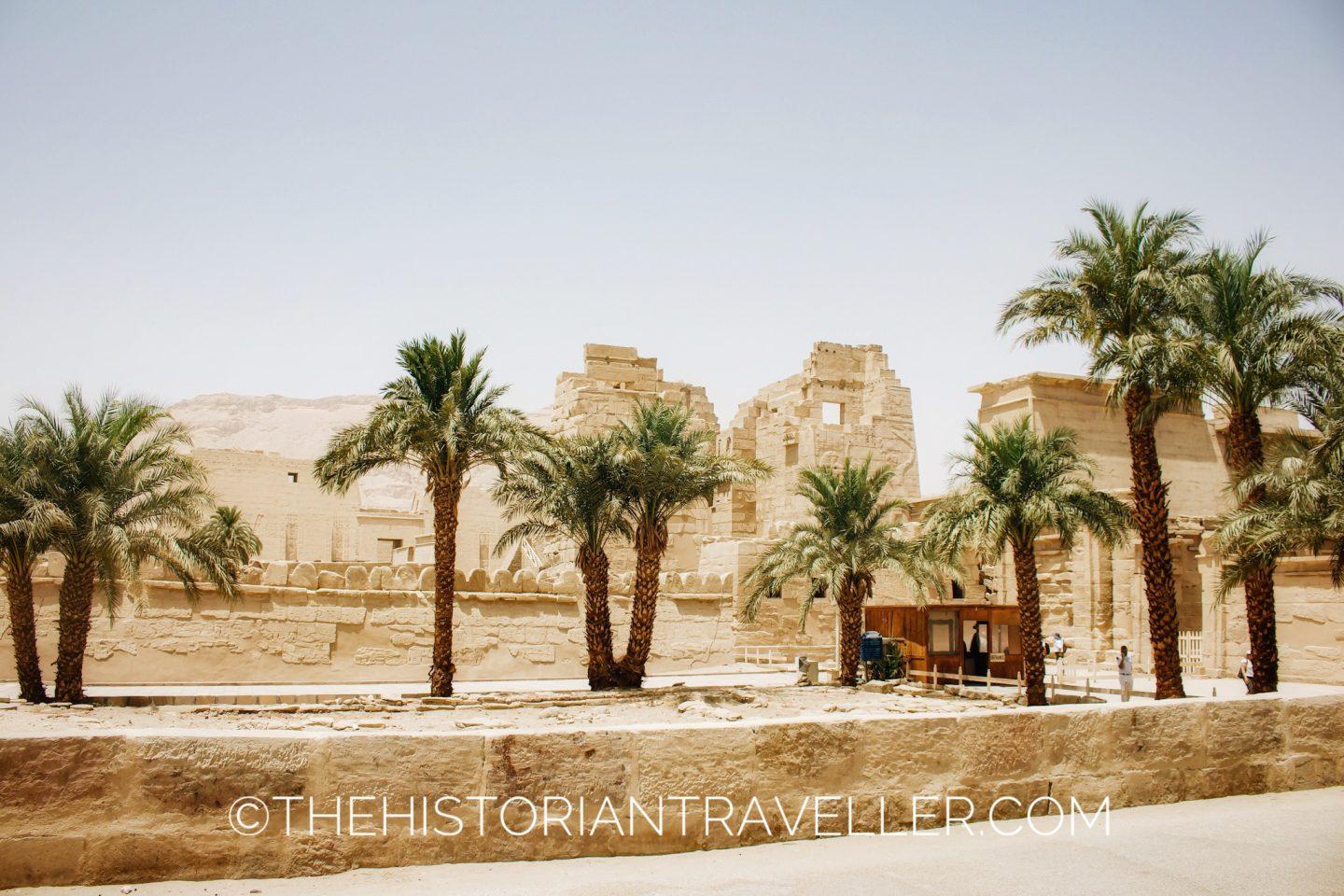
Luxor is blessed with magnificent temples, the view of the Nile and a timeless magical atmosphere. As there is so much to see, I would recommend at least 3 days in the city. However, if your time is very limited, you can skip some sights and visit only the main attractions in 2 full days.
Exploring the Nile East Bank
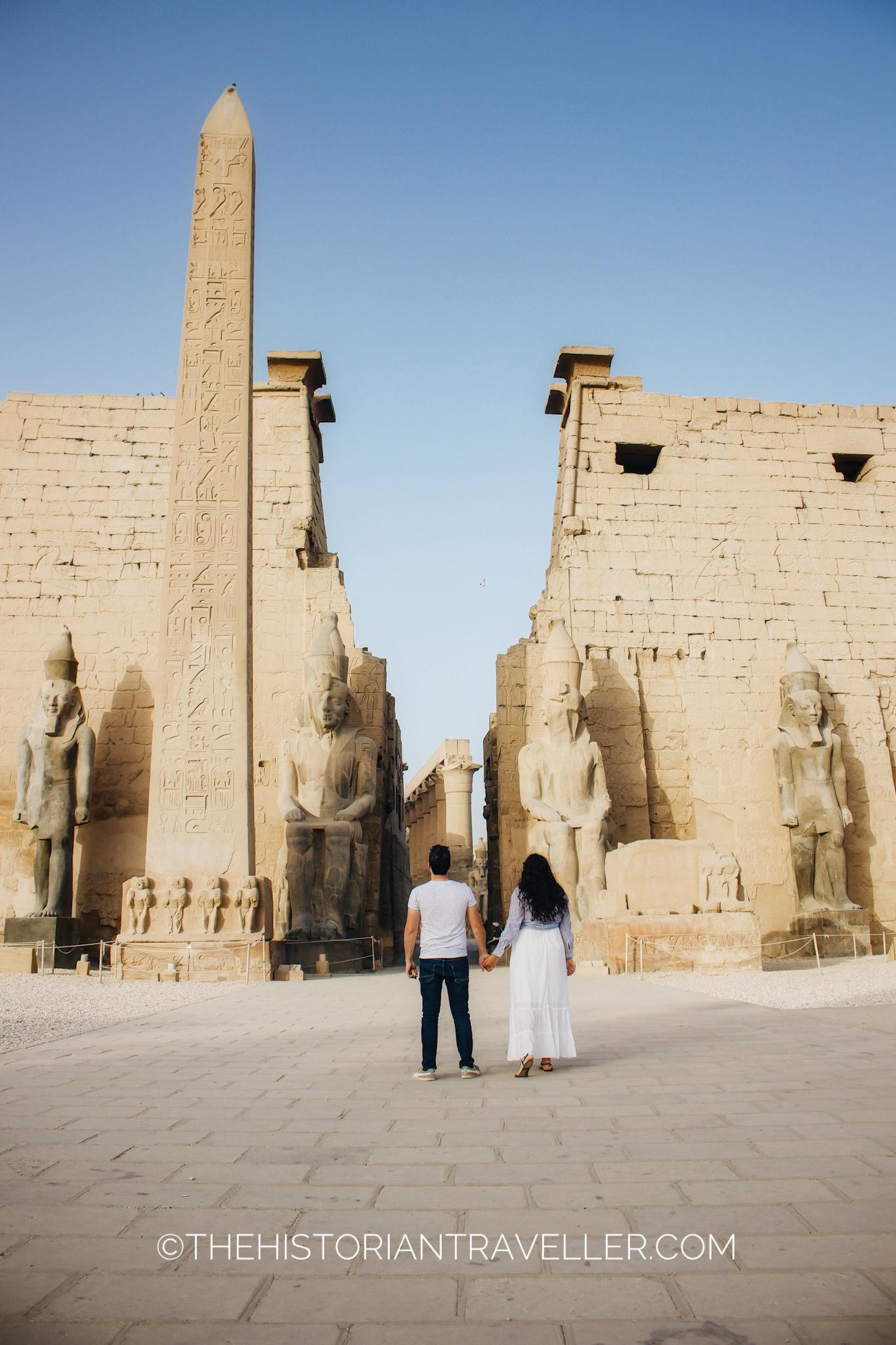
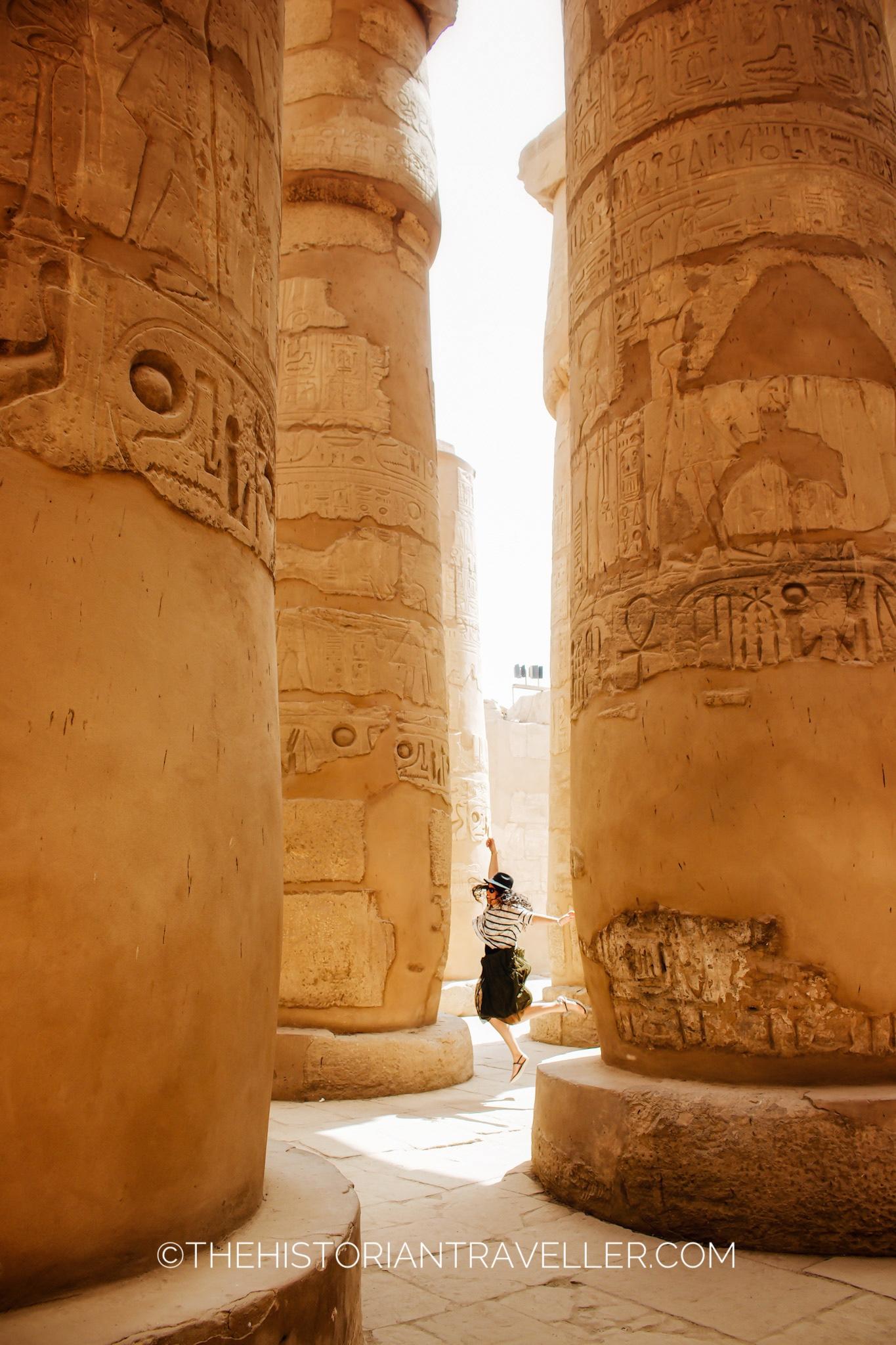
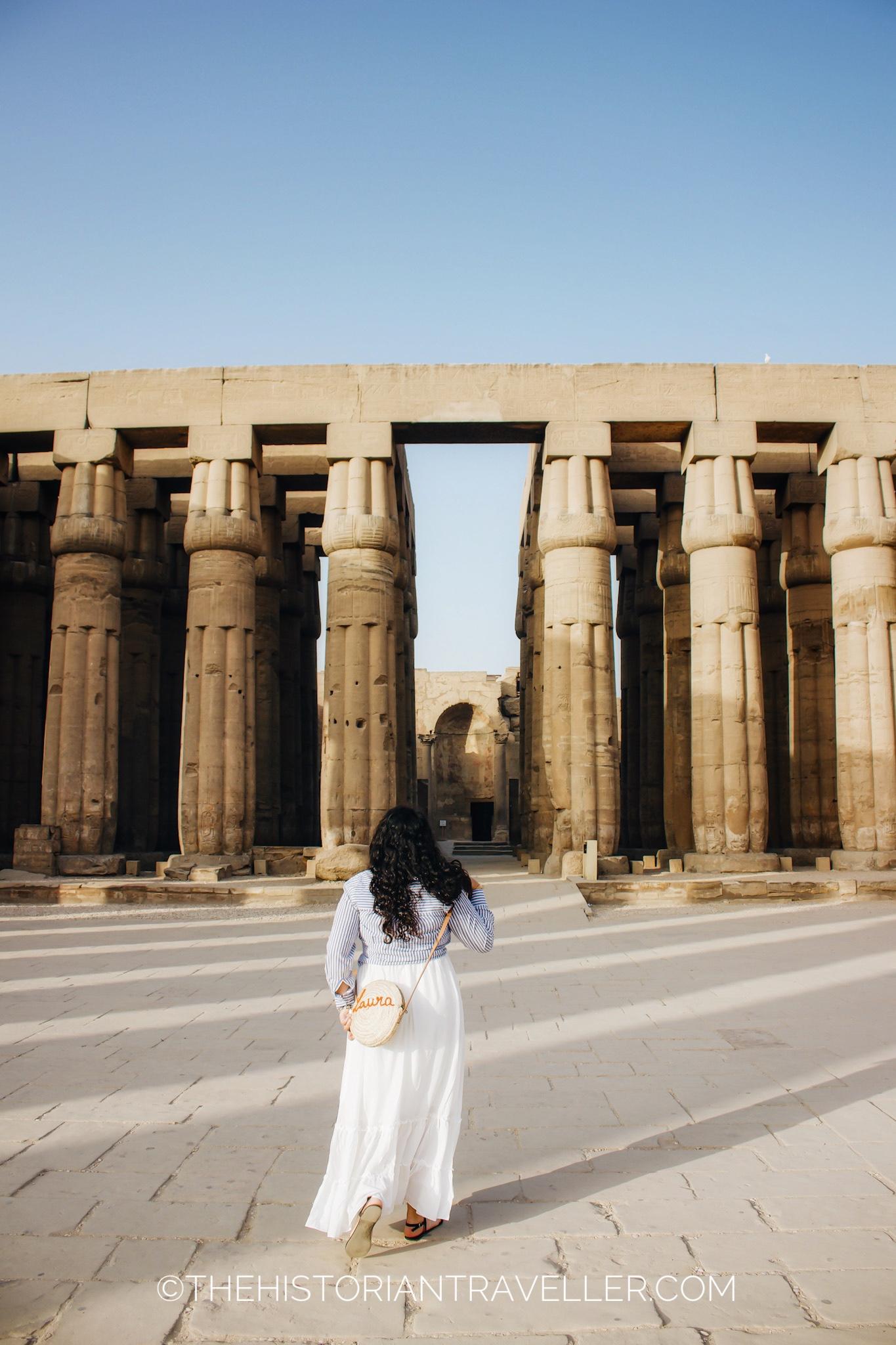
On your first full day in the former Theban capital, you will visit the Luxor East Bank.
Start early at the Temple of Luxor, this will open already at 6 am. If you decide to go at this time, you can literally have it all for yourself. As you can see from the pictures above, we opted for an early rise. The nearest hotel to the Luxor temple is Nefertiti Hotel. This is located at just 5 minutes walk from the temple and allowed us to be there at opening time! Moreover, their restaurant is one of the best in Luxor! The visit to the Luxor Temple takes around 2-3 hours. Just in time to return your hotel (if nearby) and have a good breakfast.
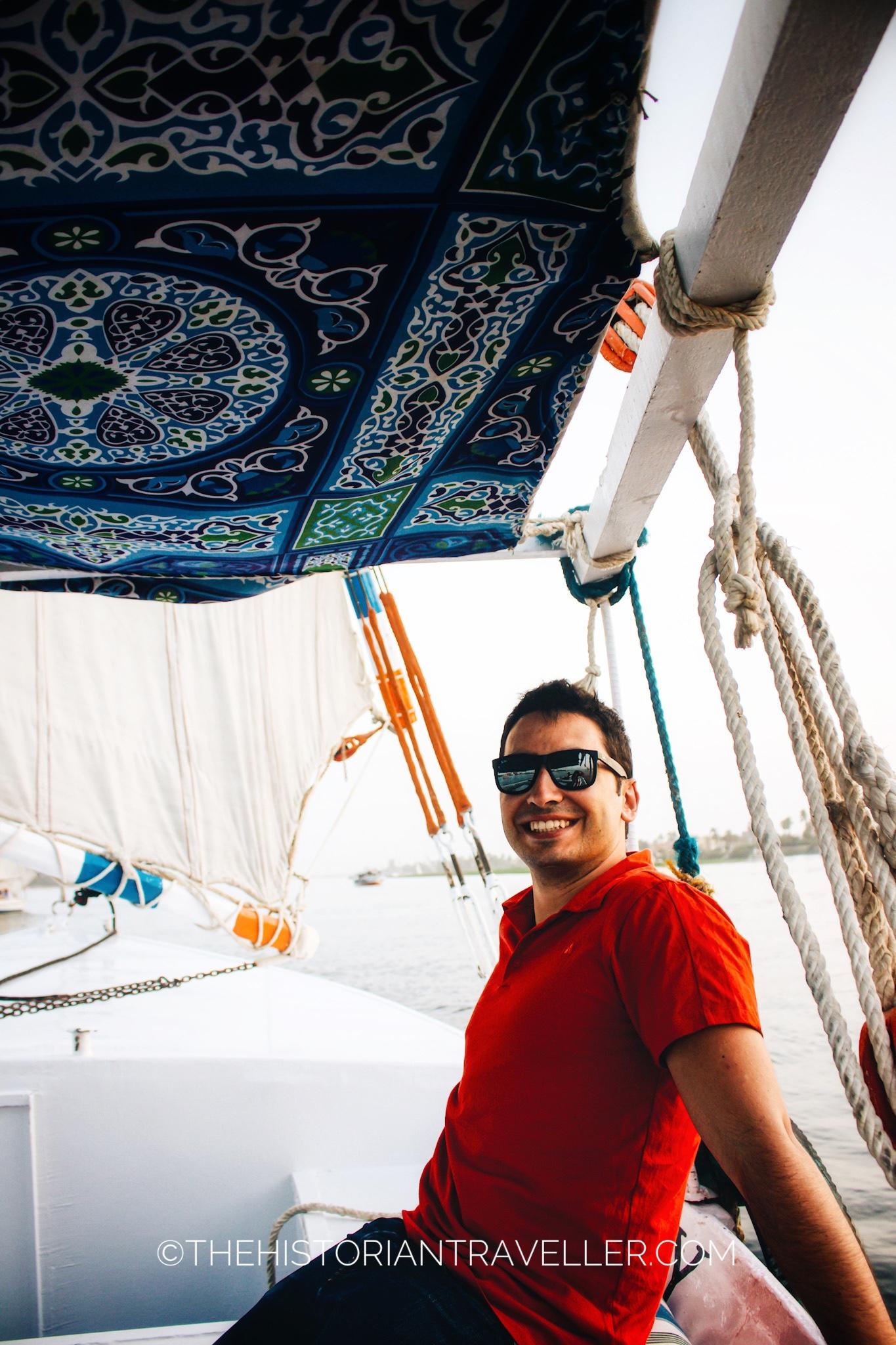
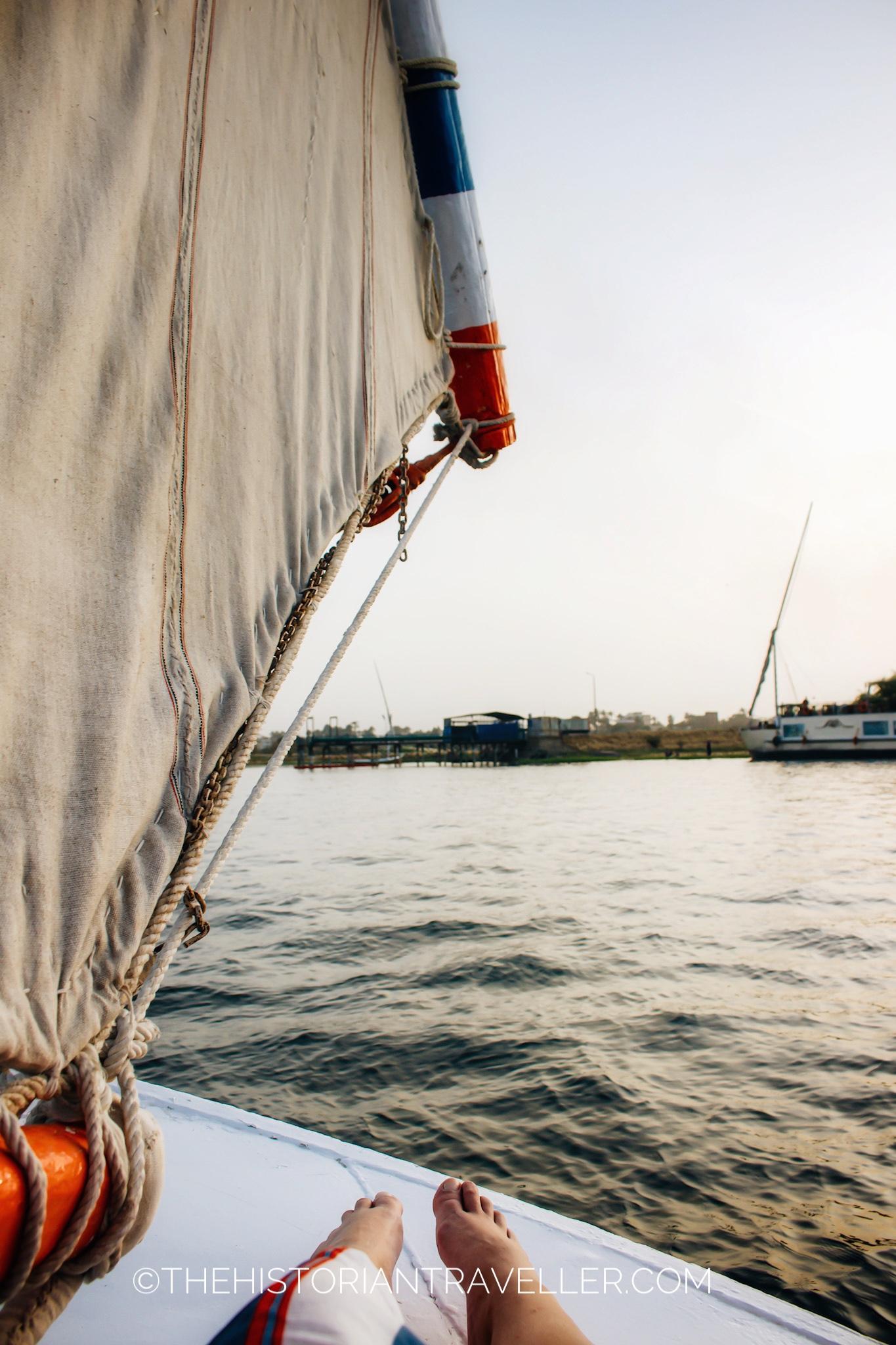
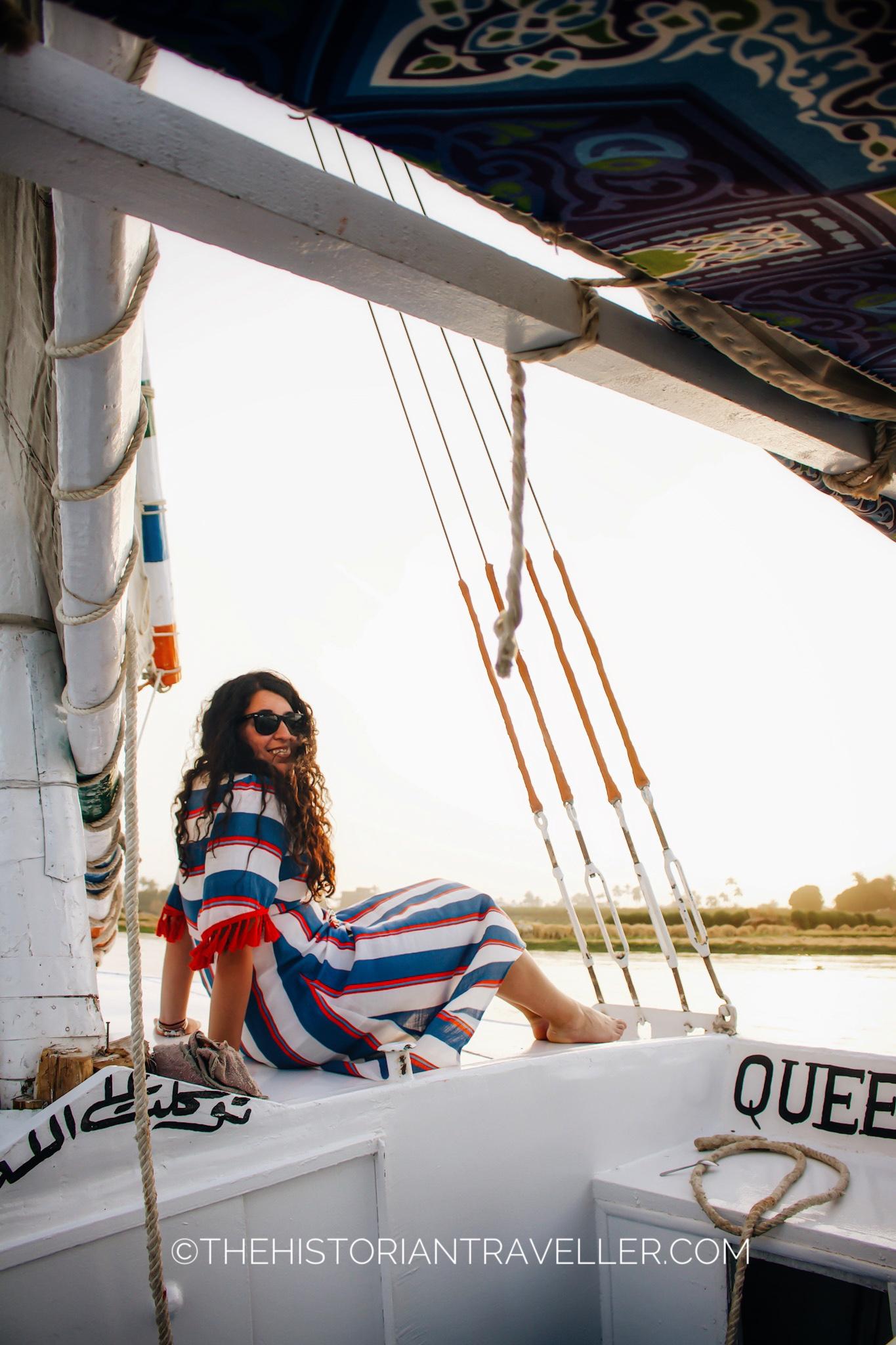
Your second stop of the day will be the Temple of Karnak. This is the second largest religious complex in the world after Angkor Wat in Cambodia. It’s so big that will deserve all your attention (and great part of your morning to be fully explored). If you manage to arrive at the temple by 10 AM, you will still be in time to have some sections all for yourself. Indeed, most of the crowd (unexpectedly) arrived around 11.30/12 pm. Our visit lasted about 4 hours (10 AM -14 PM). After lunch, we decided to relax at the hotel during the warmest hours of the day and we concluded the day with a magical Felucca ride on the river Nile at sunset time.
You should bargain very hard to obtain a fair price for your ride. If the owner/person in charge of the transaction wants to charge you more than 150 LE per hour (for two people), is trying to scam you. Keep this in mind!
Exploring the Nile West Bank
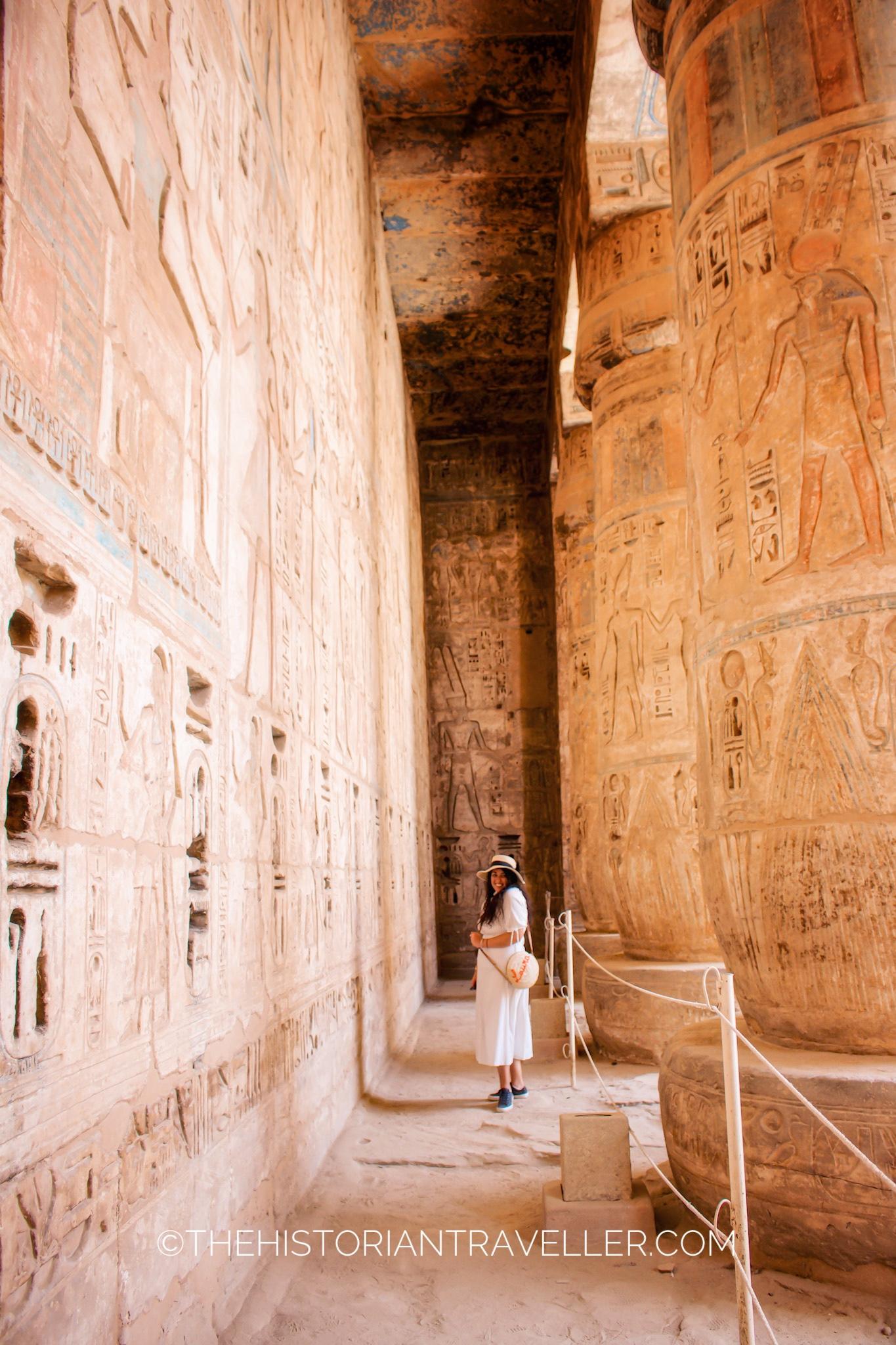
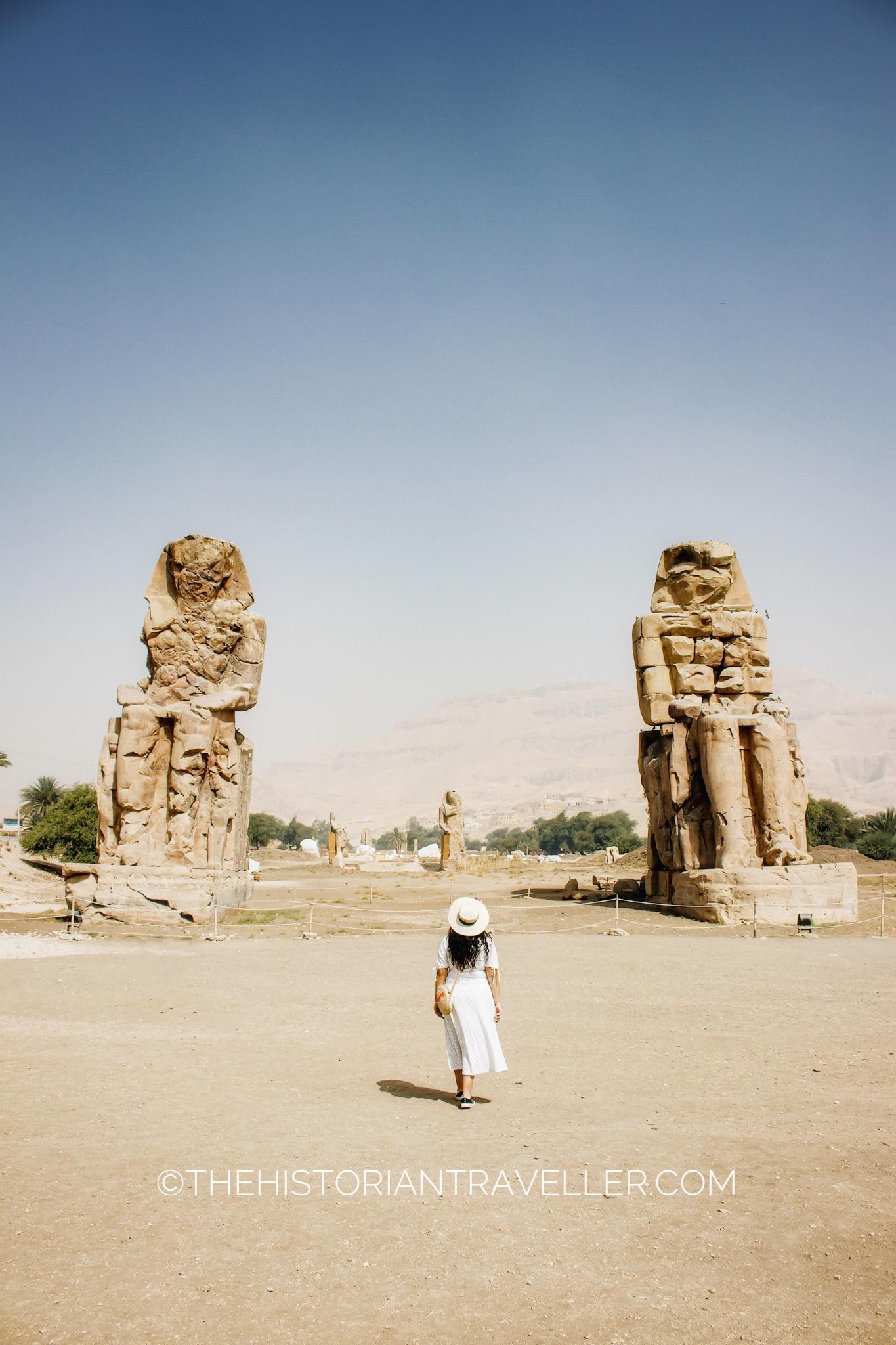
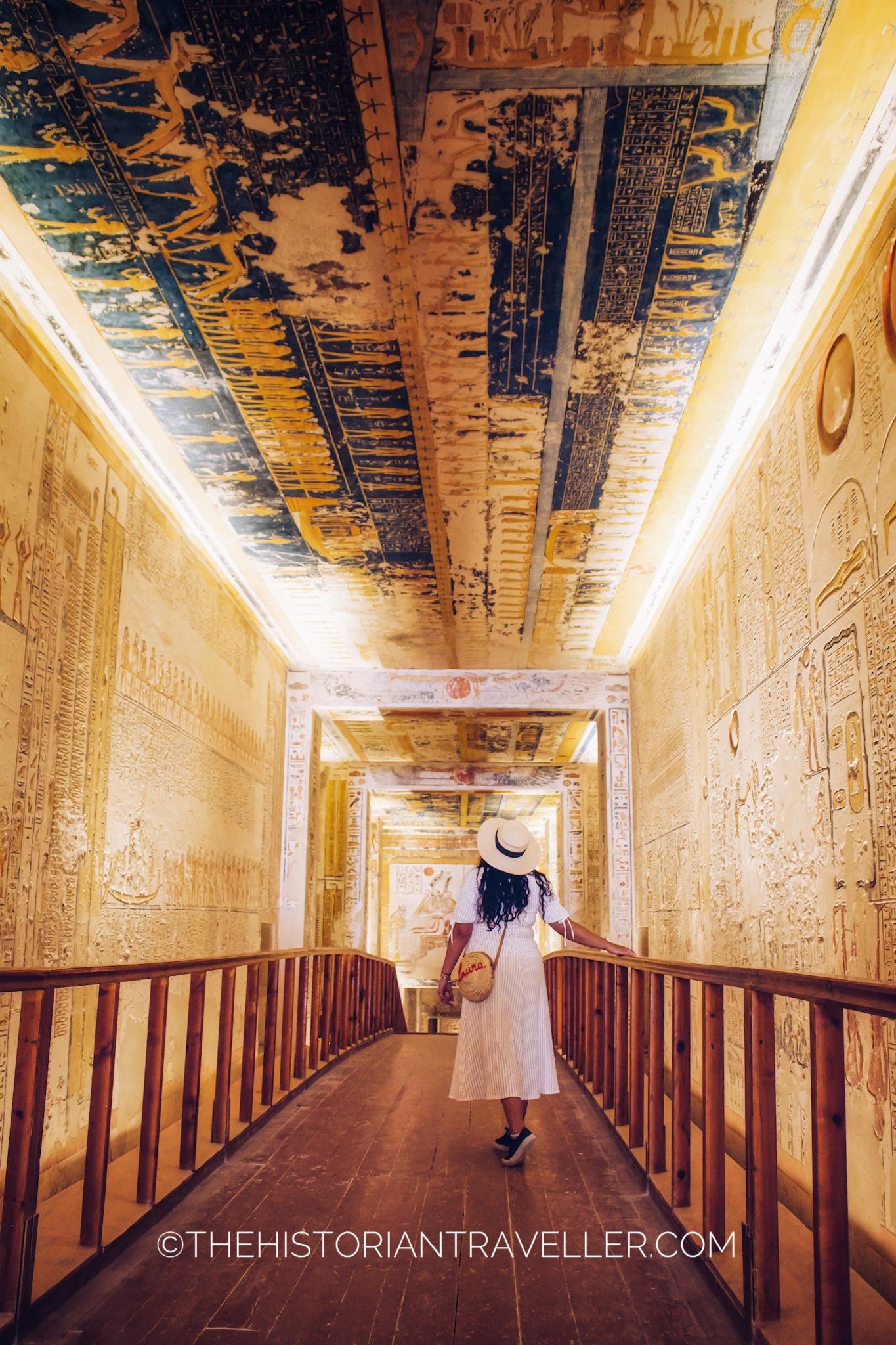
Your second full day in Luxor will need a lot of water and multiple memory cards for your camera. This time you will visit the West Bank of the river Nile and trust me when I say one day is barely enough! To visit this part of Luxor, you will likely need to arrange a guide/ driver helping you with your stops. This because there is an extended area to cover and you don’t want to be stuck under the warmest Egyptian sun waiting for a taxi to arrive and taking you to the next destination.
Start your visit with a stop at the majestic Colossi of Memnon. The mythical singing statues that are standing as guardians of the West Bank for over 3,500 years. This will be a very brief visit because the area is still under excavation and the colossi are the only things to photograph and see (yet).Your second stop will be the Temple of Hatshepsut. Here you will discover the mortuary temple of the second female pharaoh of Egypt. A three-levels temple unique in Egypt dedicated to the god Amun.
Valley of the Kings
From here, you will proceed to the Valley of the Kings. Your entrance ticket will include already three tombs to visit but with an additional price you can visit also three other additional tombs. I warmly suggest you to add the tomb KV9 – Ramses V & VI (extra price) that features some of most well-preserved paintings in the whole area. Other amazing tombs are KV11 and KV6. Your visit will last 2-3 hours, according to the number of tombs you want to visit, and the crowd to access them (don’t be fooled by the picture, it was pretty crowded!)
Conclude your West Bank tour with a visit to the Medinet Habu Temple. This temple turned out to be one of my favourites in Luxor as it features more than 75,350 sq ft of decorated surfaces most of which still keep their original colours. Moreover, the temple is considered one of the most important sources on the Battle of the Delta for its high number of inscriptions and information about this event.
Your last day in Luxor will be split into two part. You can use the morning to go shopping in one of Luxor souqs or simply relax at your hotel. Otherwise, you can go chasing the sunrise and fly with a hot hair balloon near the Valley of the Kings. After two intense days of tours, we were pretty tired so we opted for shopping and relax. Also because in the last part of the day we travelled towards our next destination: Hurghada (where you arrive late afternoon/evening).
Day 16-19 Relax at the beach. Explore Hurghada and the Red Sea
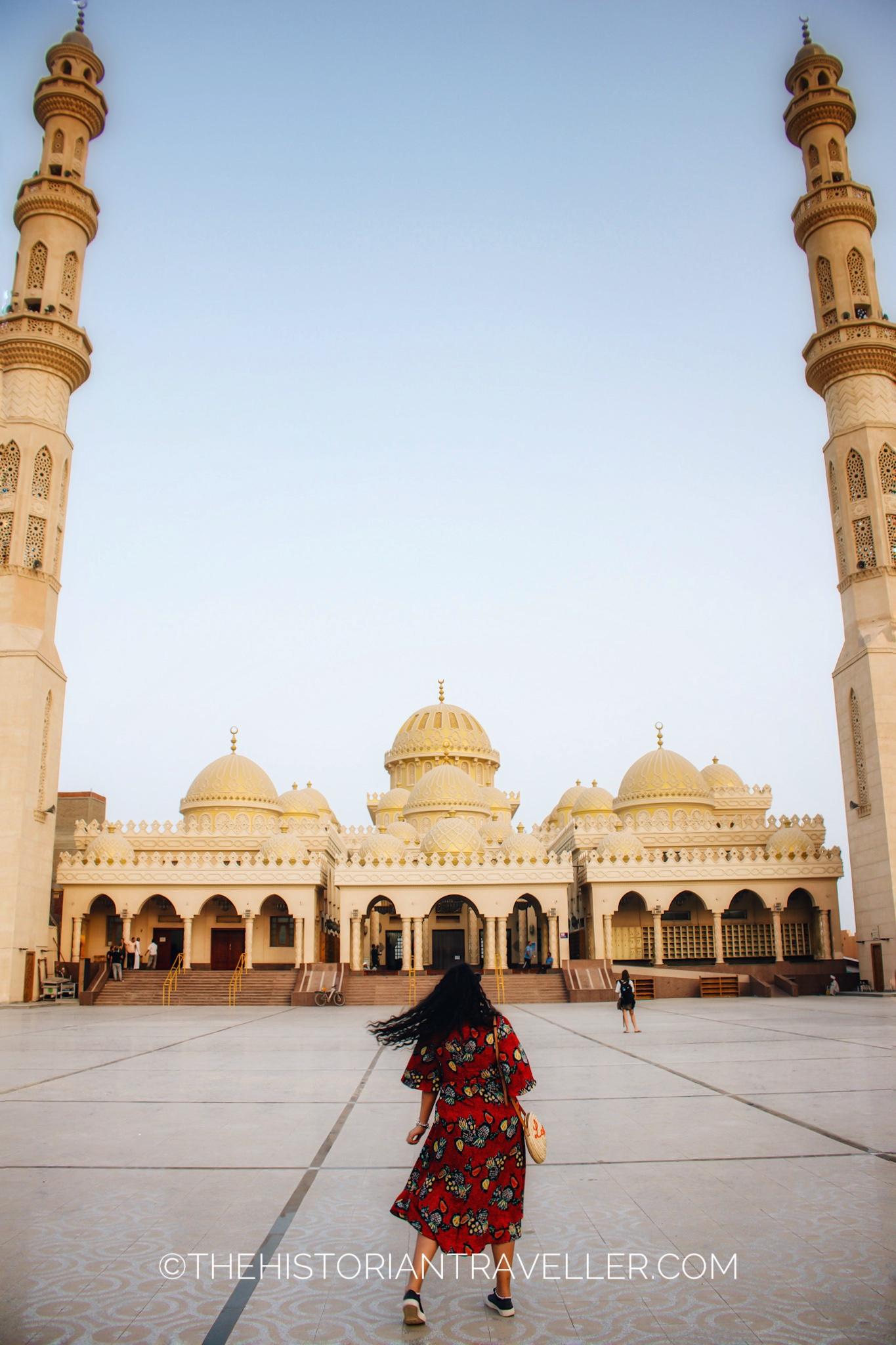
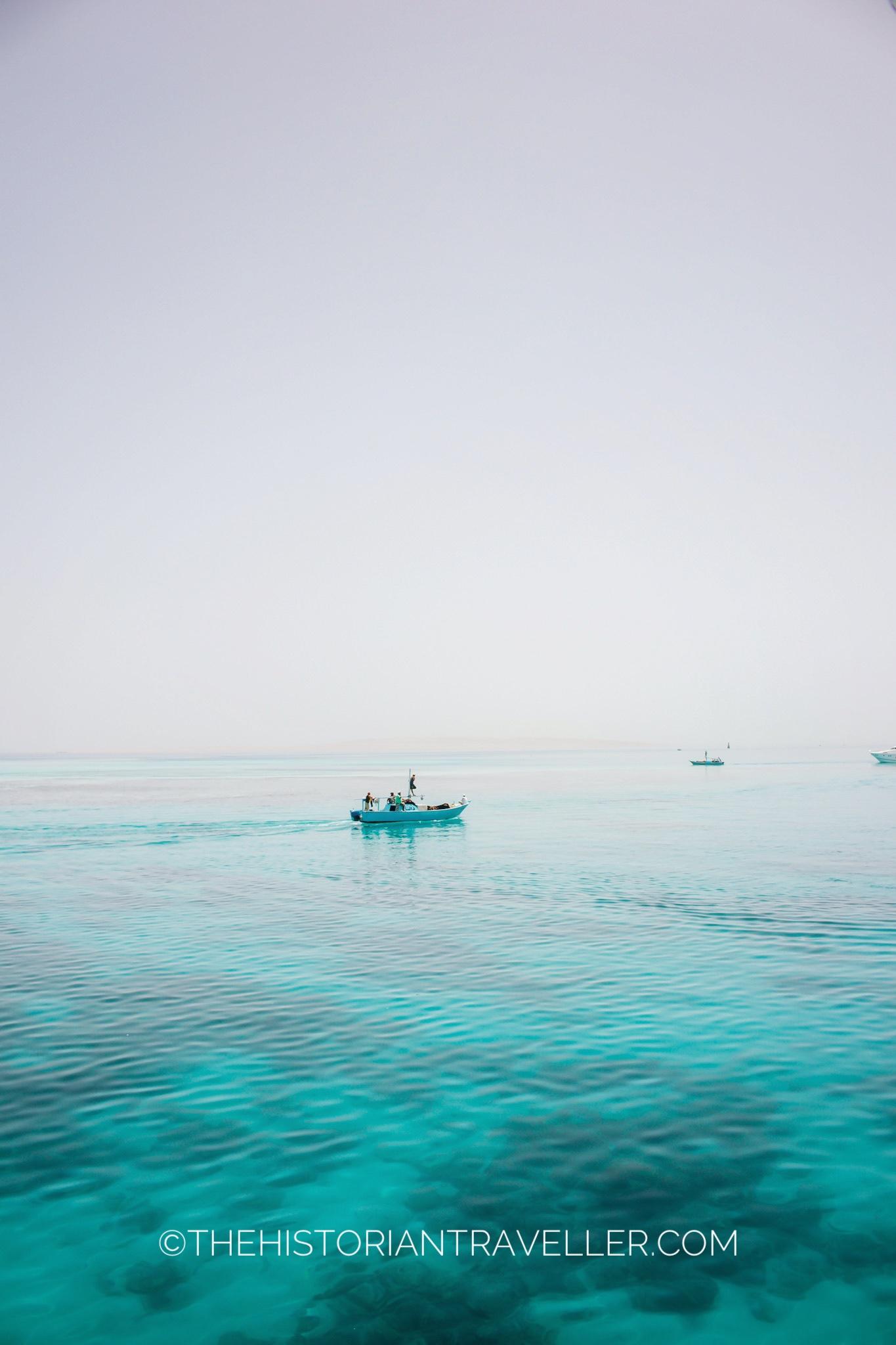
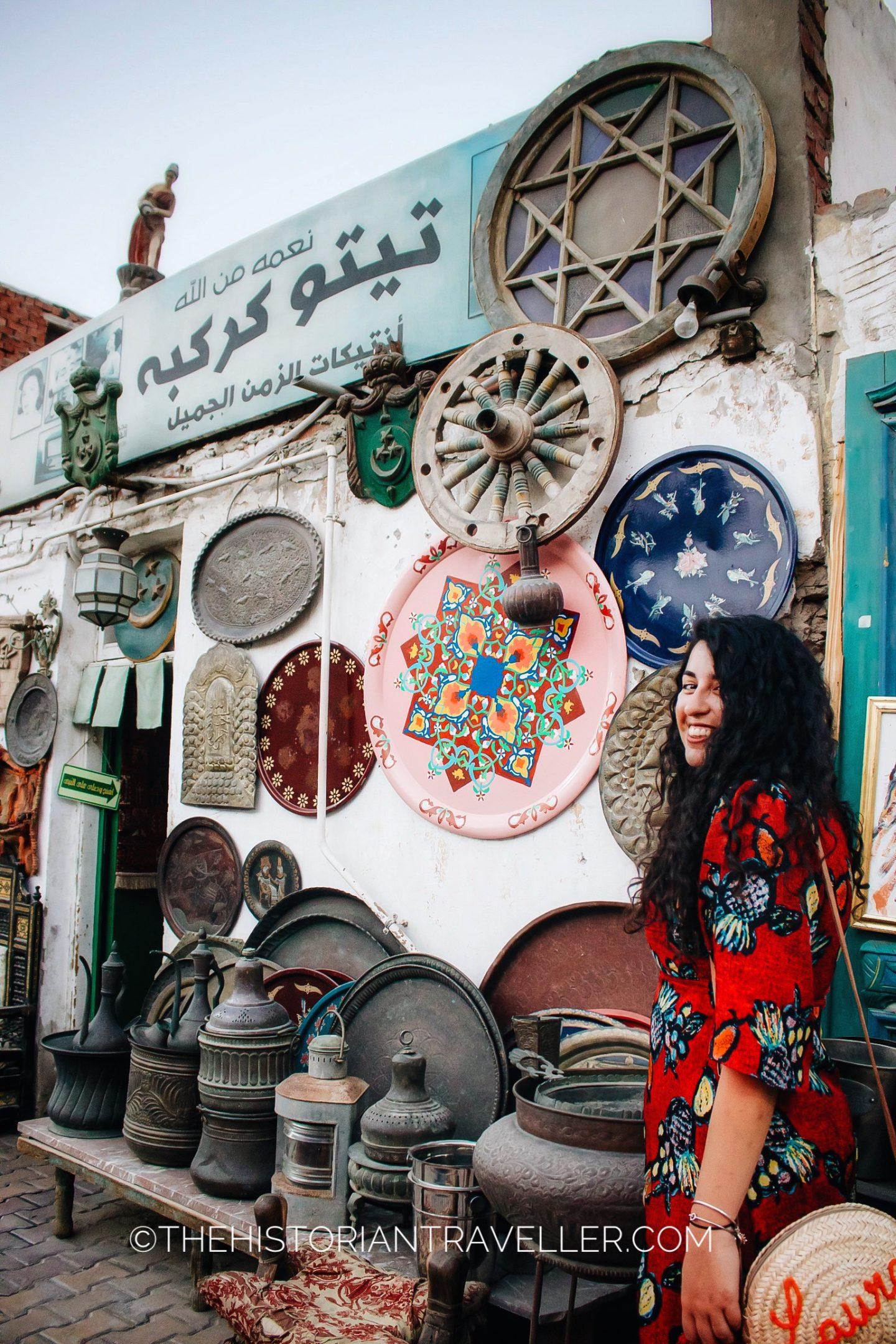
Day 1
After 15 days travelling, you’ve made it! The toughest part of your itinerary of Egypt is already covered. Now you gained a well-deserved relax! On your first day in Hurghada, you can spend your morning relaxing at the beach! Indeed, Hurghada covers more of 60km of golden beaches surrounded by the crystalline waters of the Red Sea. If you want to know also more about the city itself, you can go on a little walking tour in the afternoon and discover the nice city centre and little photogenic alleys. I warmly suggest you also to pay a visit to the El Mina Masjid mosque. This is the largest mosque in Hurghada and also one of the most beautiful buildings I’ve seen in the city. End your day with a delicious plate of warm (and super cheap) falafel at GAD and relax!
Day 2
On your second day in Hurghada, you can opt for different things. Relaxing (again) at the beach or take a tour of the Red Sea. We decided to take a 8 hours snorkelling tour to spot the dolphins and visit the coral reef on the Red Sea. This can be booked via various agencies, but if you want to save a bit of money, I suggest you Get Your Guide. It was a nice tour, we spotted the dolphins, relaxed on a boat and saw lot of fishes and corals.
Day 3
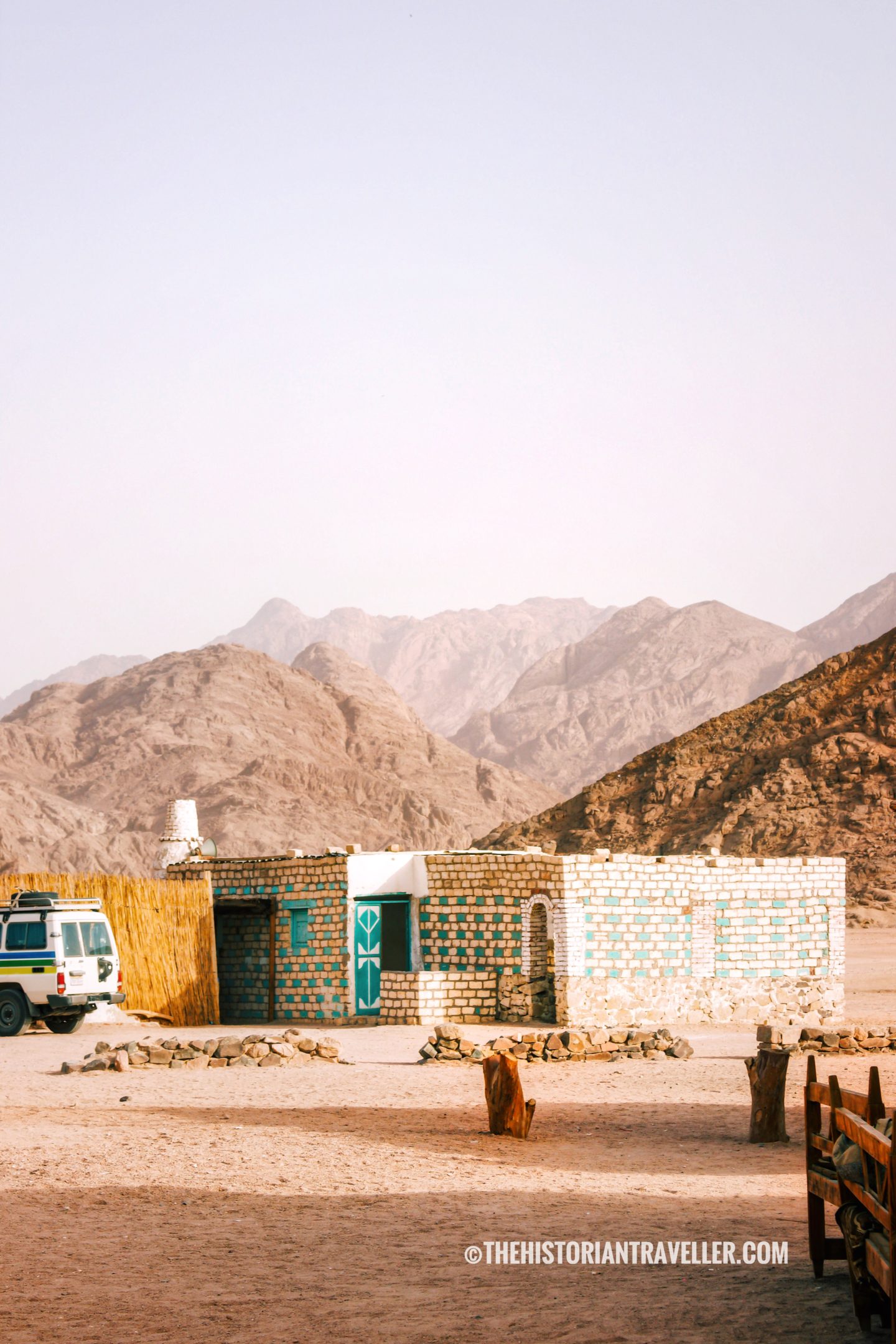

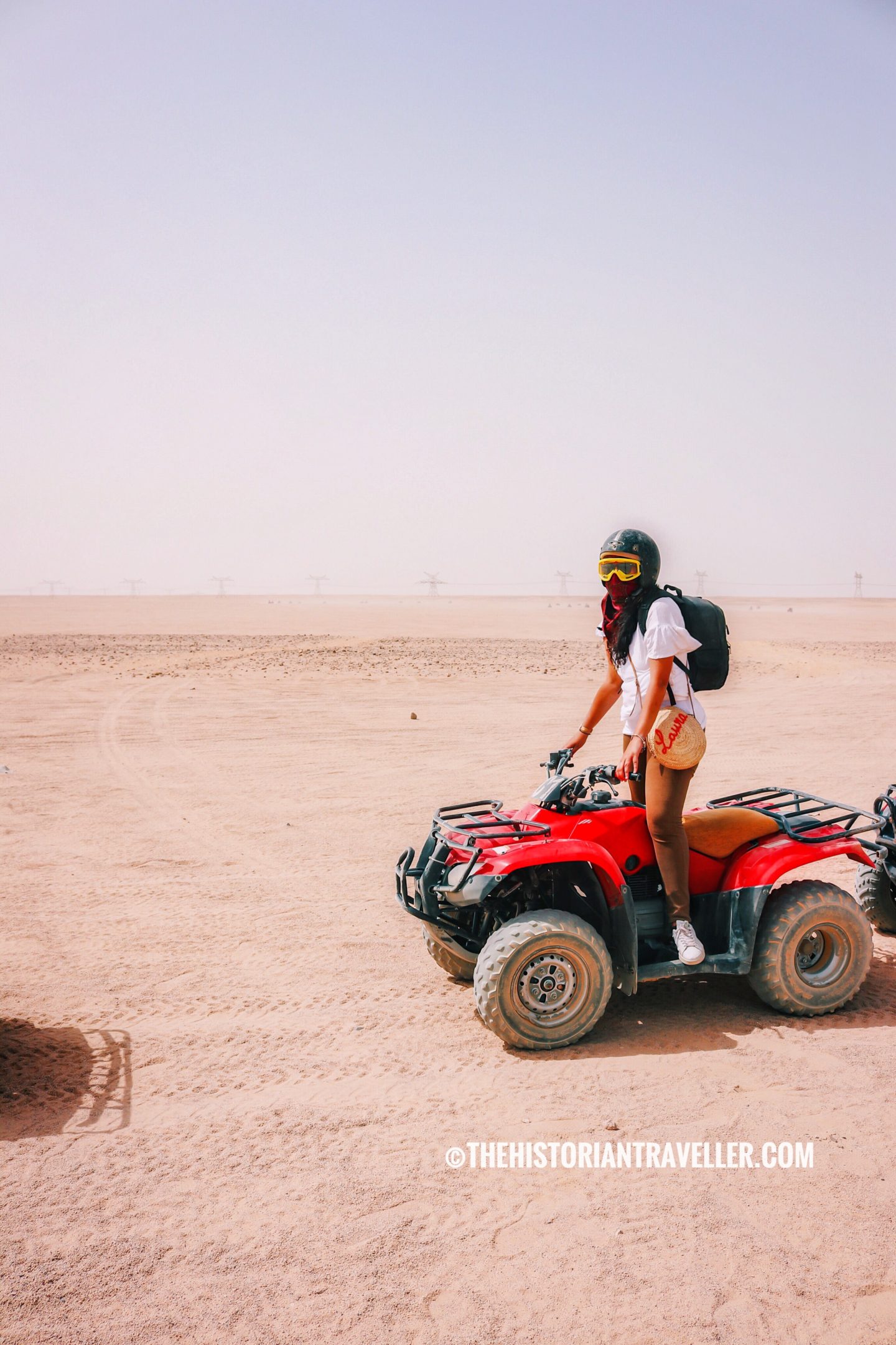
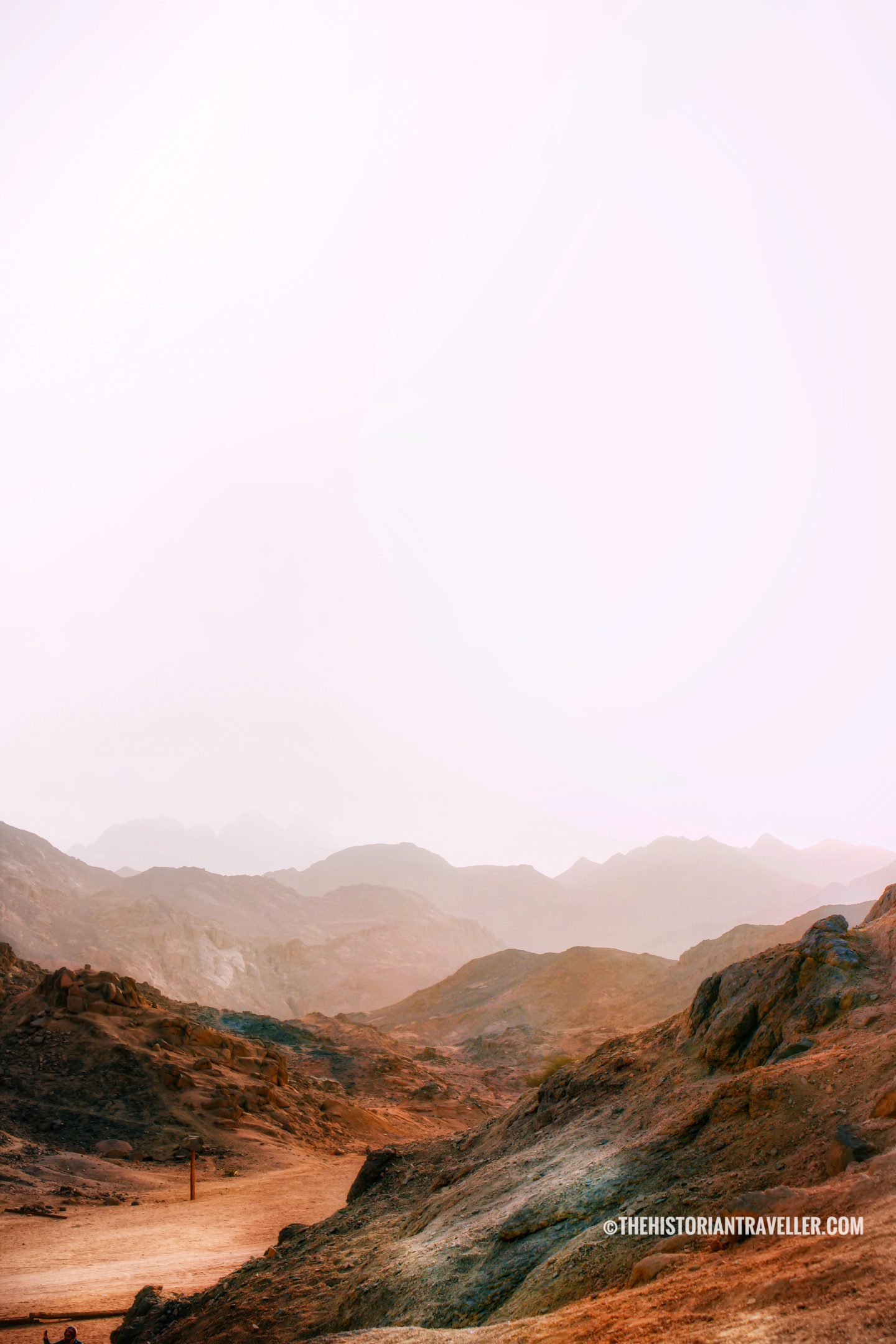
If you want to add a bit of thrill to your last day in Hurghada, instead of going to the beach I suggest you to pay a visit to the Eastern Desert and the beautiful landscape of the Red Sea Mountains aboard of an ATV! The Red Sea Mountains are something it doesn’t happen to see every day. They are inhabited by communities of Bedouins and surrounded by a landscape that looks like out of a Star Wars movie. If a warm cup of mint tea in company of some friendly Bedouins after a wild ride into the desert is something for you, I warmly suggest you this itinerary!
It Egypt safe to visit?
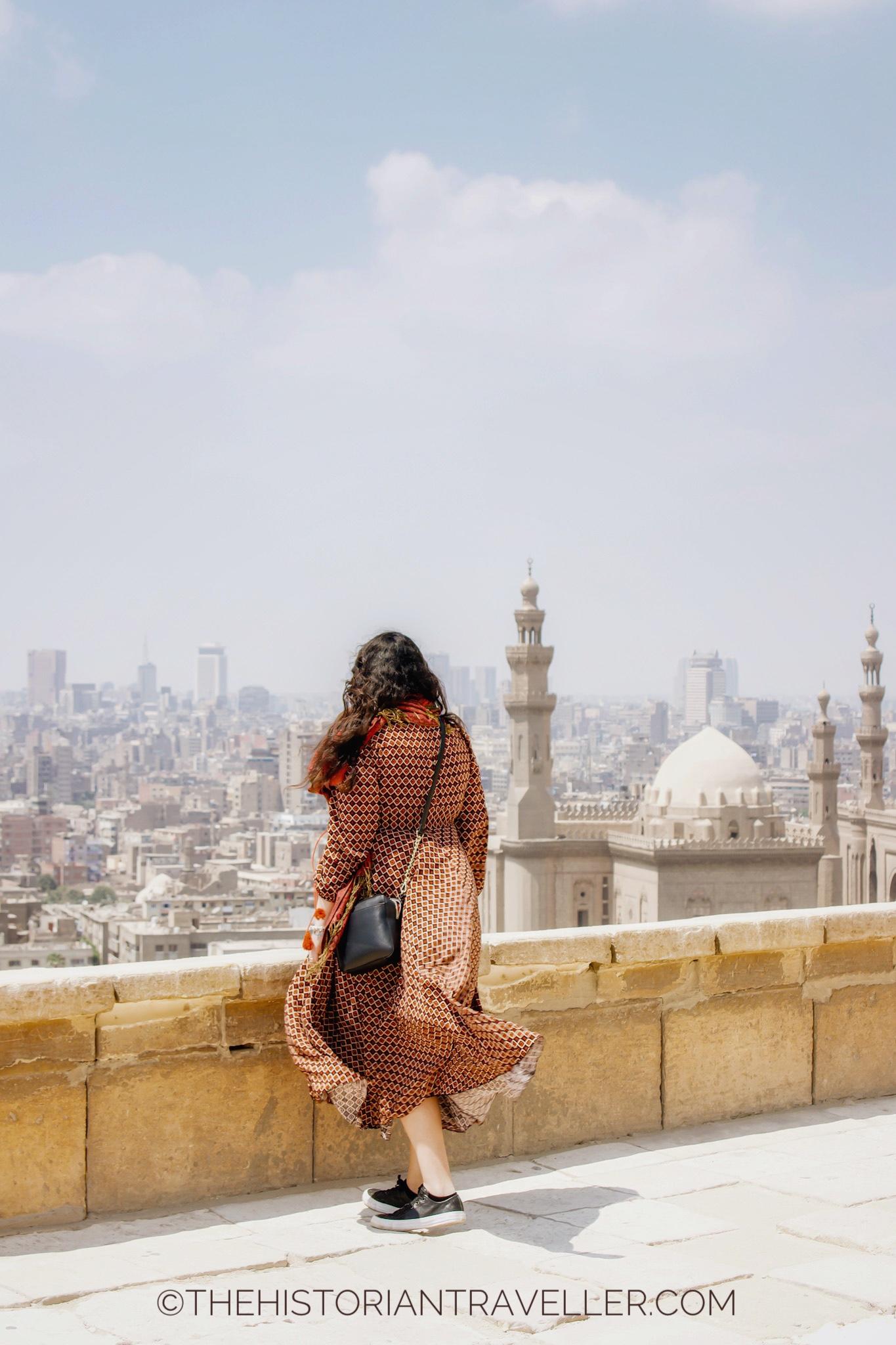

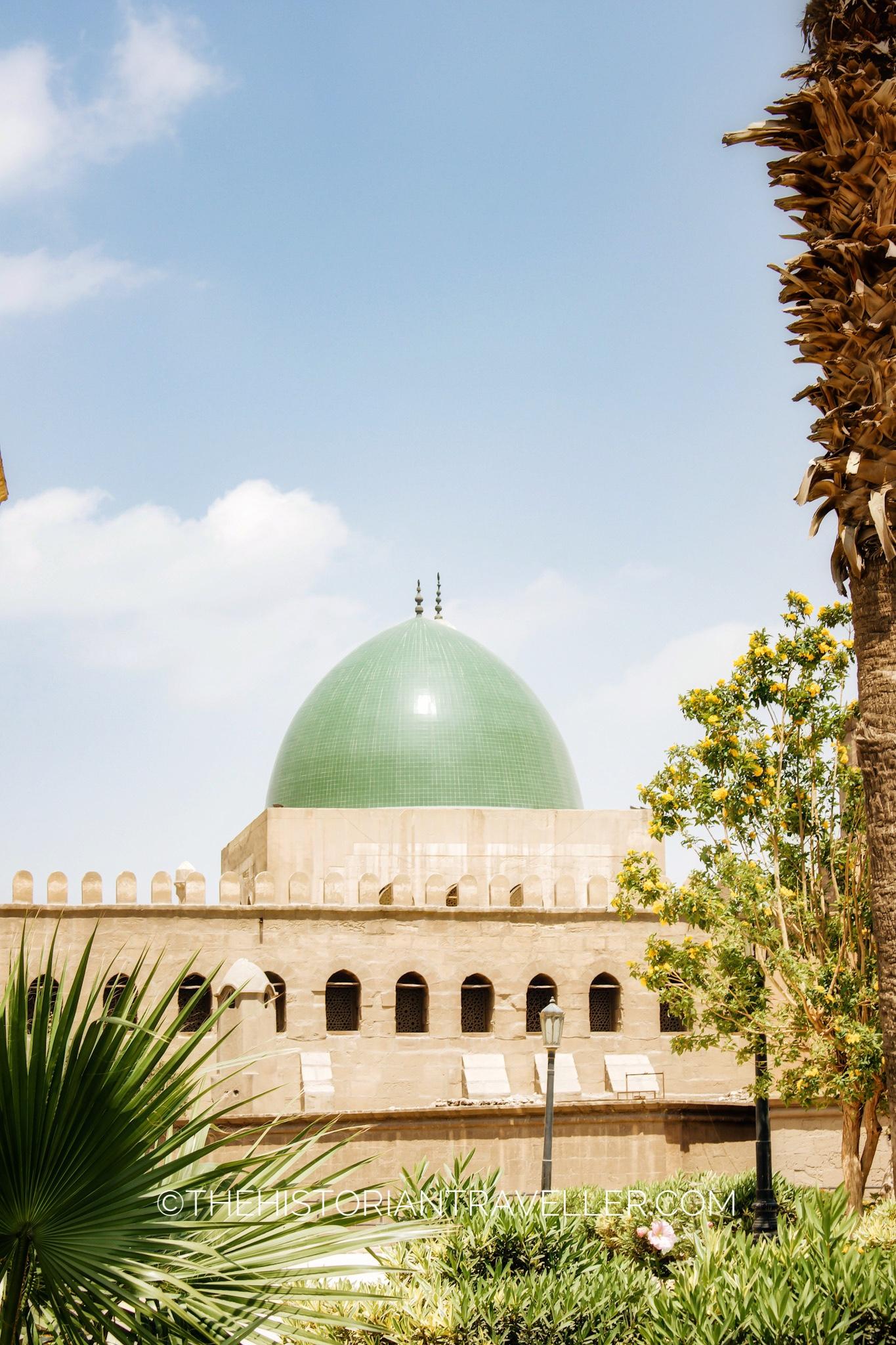
Something that concerns a good 95% of people who have Egypt in their minds for an imminent or future travel plan, is if it is safe to travel in Egypt in 2023? To be honest, the reaction of friends and family when I told them I was going to Egypt for a quite long period of time was almost hilarious. I swear I wanted a camera to register them all. Both Alessio’s families and mine had panic reactions going from “a month is too long” or “don’t go there because… ” “I don’t think is safe to go now” “did you know the pictures of Tutankhamun are cursed???” On this last one, I laughed for a week and planned to buy hundreds of Tut’s pictures as a Christmas gift.
Terrorism in Egypt
The misleading media campaigns Egypt’s events of the last ten years portrayed a dangerous image of the country in people’s mind. Indeed, in the mind of people Egypt is equal to Terrorism.
This scare people to go and does not help a nation that relies on tourism for living! Egypt, like many other countries in Europe and the rest of the world, suffered (and still suffering) problems related to terrorism but is not less safer than France, UK or Germany. Bad things, unfortunately, happens everywhere so if this is the only reason preventing you from visiting Egypt, please reconsider your choice.
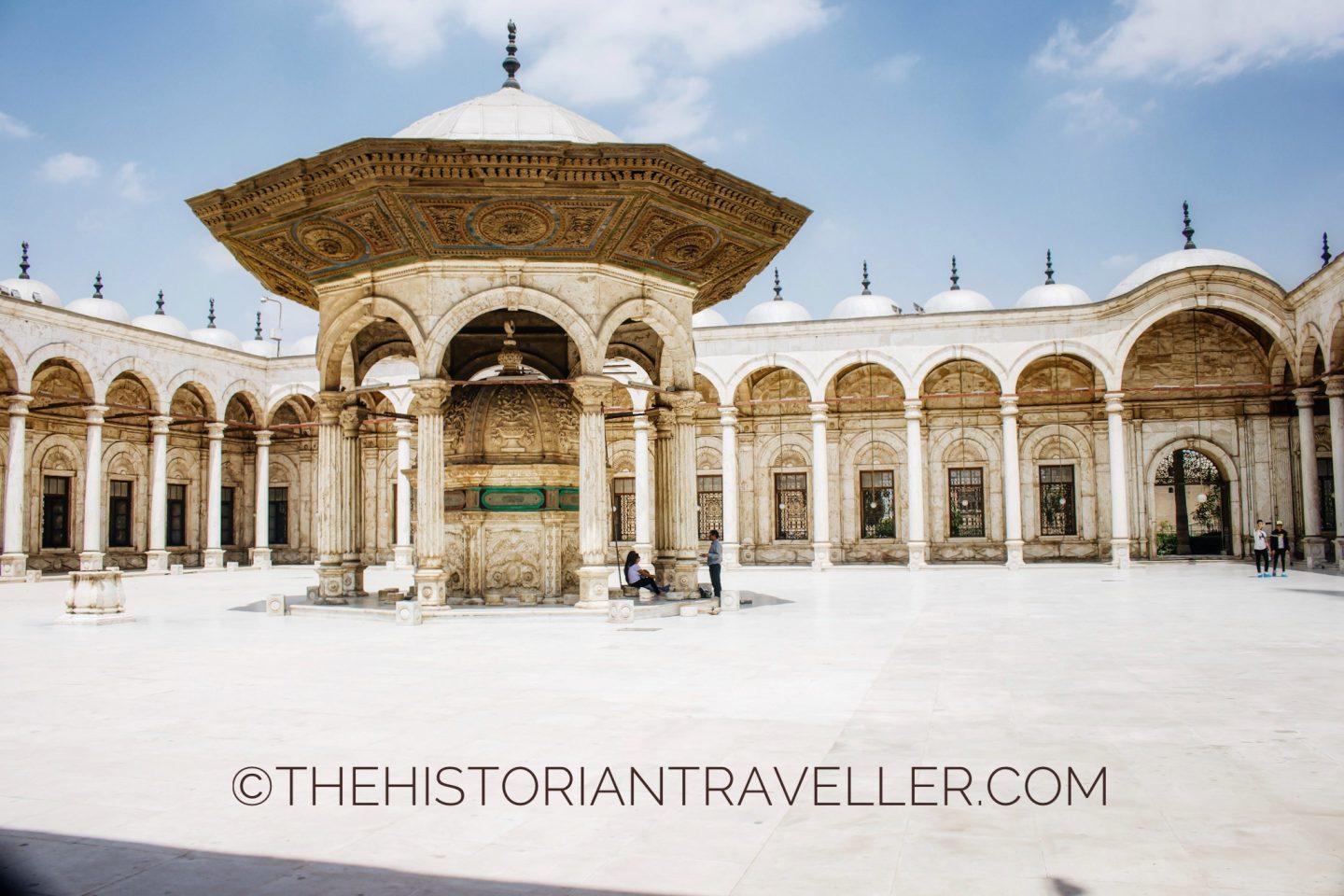
Furthermore, remember always to not confuse terrorism problems with local crime problem. Crime is present everywhere, especially in big cities like Cairo, London or Rome but this doesn’t mean the country is unsafe to visit. Be always aware of your surroundings, check with the Egyptian security forces and possibly avoid areas famous for high levels of local crime. You’ll be fine!!!
According to our experience, Egypt was very safe. In a month straight we haven’t seen anything resembling a crime or even a suspicious act. So, if you are concerned to visit this country only because of safety, please be don’t! There are many other countries reporting higher levels of crime and same level of terrorism alert that are visited by millions of visitors every day. So, just exercise a normal level of caution, check local news for major updates on the security situation and enjoy your trip!
How security works in Egypt
One of the most misleading things I found online is the perpetuation of the fact that is “unsafe” to go around Egypt. Well, I tell you something. As far as I’ve seen, Egyptians are obsessed with security measures. The only country I’ve seen such a high level of security was India. Of course, I don’t have any idea of the deepest levels of security in the country, but to give you a little piece of mind on how safe is to go around, I’ll tell you what you will experience as a tourist.
I honestly had the impression that I couldn’t even move a step without that a police officer or a soldier knew I was there. This might be a little strange to see and experience if you never been in a country with such type of security levels, but it does make you feel safer and without the continue obsession of watching behind your shoulders.
Tourist Safety in Egypt
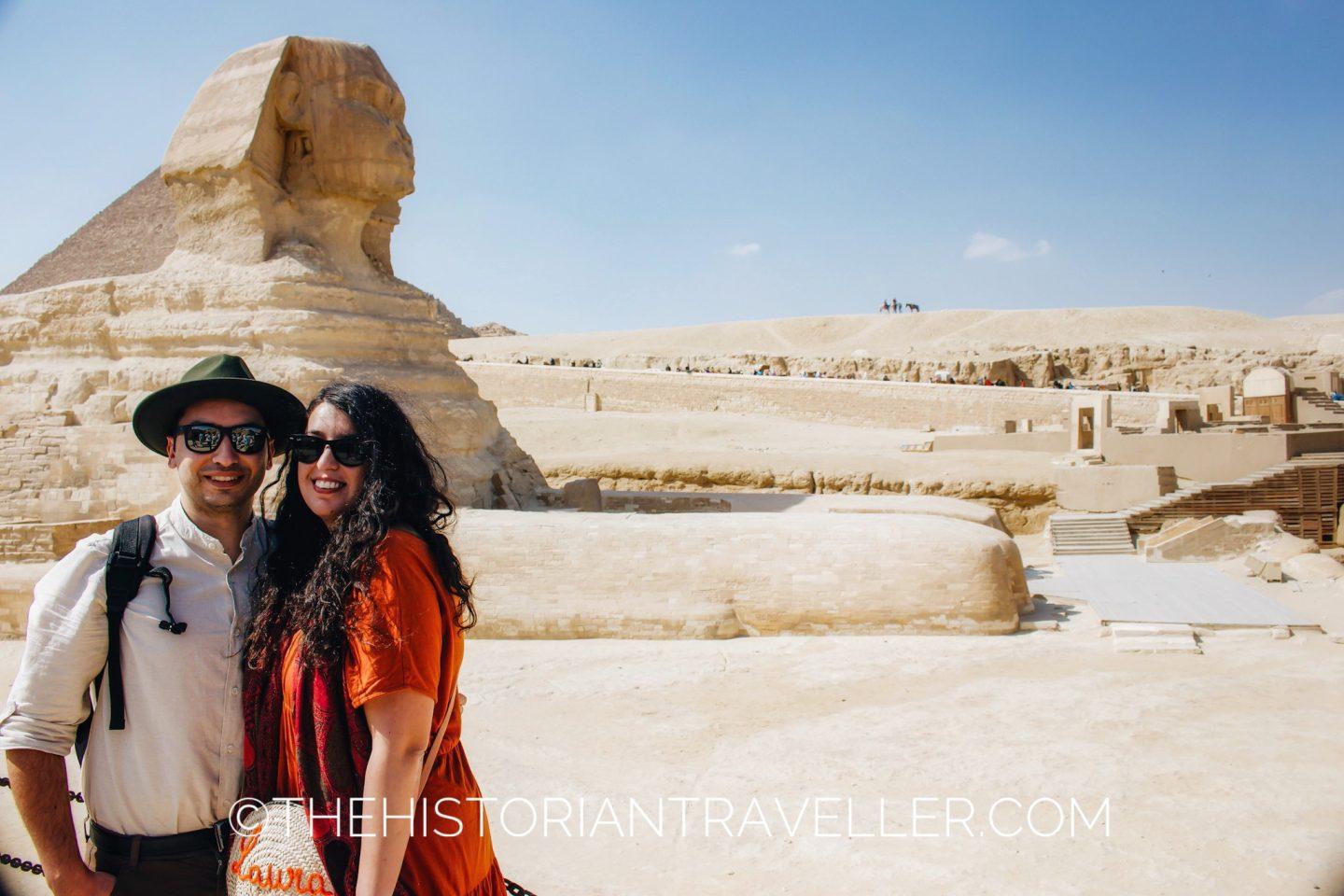
- Check points. These are everywhere. The bigger ones are those situated on main roads connecting cities, attractions and big urban areas. The smaller ones are near the main attractions, at the “entrance” of certain urban areas etc. Any vehicle (taxi, car, coach, horse etc.) pass from those streets have to check with the local army. Here the driver of the vehicle communicate his details (usually showing an ID) and where is directed. If there are passengers with him, their identity is communicated as well (sometimes they take also a passport copy). There are also some “special” checkpoints active at certain times. E.g. there was one active at night in Giza and when returning from Cairo, we had to check and communicate to the police officer our details and in what hotel we were staying. In case of long roads, there are more check points and when you pass the first, your details will be communicated (via radio???) to the next one. In this way, Police/Army know always where you are and where is possible to locate you in case you need help (e.g. road accident?).
- Attractions, hotels and restaurants security checks. Main security checks are placed at each of the historical attraction sites, after the ticket counter. These are “airport-style” checks, so you have to pass your belonging throughout a scanner a someone will check also yourself. Same type of security checks are done also at big hotel chains (E.g. Hilton, Ritz etc.) and well-known restaurants. In certain cases, they may ask also for your passport.
- Airport checks. These are done everywhere of course, but in Egypt they are triplicated. Police will check every car long before entering in the airport area and you have to scan ALL your belongings before accessing the check-in area. If you are taking a national flight (e.g. Cairo-Aswan as we did) you’ll pass about 4-5 levels of security checks (including multiple body/bag scanners along the way) before boarding your plane.
- Army/Police around. Even after you access museums/historical attractions don’t even expect to be alone as there will be always armed police patrolling around. Inside the Pyramids, we spotted even some police officers going around with camels!
- Travel permits. If you travel by car on long distance roads, or you are going to the desert, you will need a travel permit. If you are camping in the desert these are more than essential as it is currently forbidden to go in the desert (any desert area in Egypt but particularly the Western Desert) without a military permit. Once there, you may be escorted by the National guard at your location or they may come and visit at some point to know exactly where you are (I will discuss better of this on my post about our camping in the Western Desert).
I know all these measures sound a bit extreme, but they actually don’t interfere at all with your wanderings around historical places or they don’t disturb at all your holiday. After a while, I even did not pay attention to them. Furthermore, most police officers are super friendly and like to jokes with tourists when they meet one. I think that most of these measures will disappear in a couple of years as the country introduced them after the Arab Spring in 2011, but now the situation is increasingly stable and in most areas tough security is no longer needed.
Staying Healthy in Egypt
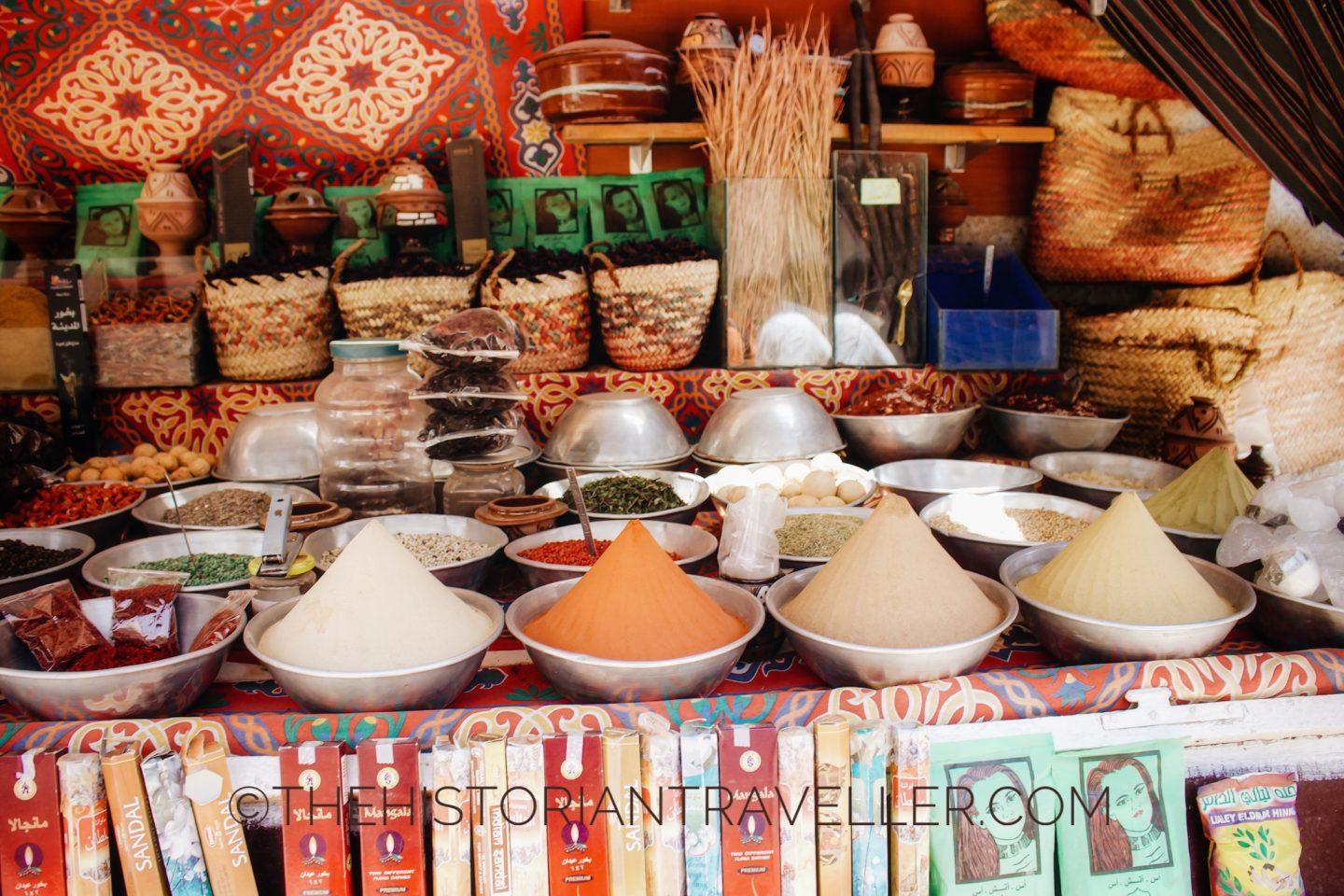
A second major concern for first time visitors in Egypt, is related to healthy issues. To be honest, this was one of my big concern too as I always get food poisoning when traveling! Jokes apart, health issues for visitors in Egypt are a real thing and if you don’t pay attention you can have an upset stomach or worse.
It is safe to drink water in Egypt?
No!!! Absolutely not! You can’t absolutely drink tap water. This is in general heavily chlorinated and is not good for drinking (plus it taste terrible, like you are drinking an entire swimming pool). While going around, you will probably notice also some terracotta/aluminium jars from where locals spill water for drink it. DON’T DRINK IT. Local people are used to that type of water but your stomach wouldn’t probably support these bacteria all together.
Drink only bottled water that has an uncorrupted seal. Water is very cheap in Egypt and it won’t cost more than 10LE per 2lt. In relation to showering or brushing your teeth, as long as you don drink it, tap water shouldn’t be a problem! In theory, you should avoid also fresh fruit, salads and anything needs to be washed and eaten raw, but I honestly ate all those things and I was totally fine.
Is street food safe in Egypt?
Most guides and people warn also from the dangers coming from eating street food. Also here, we ate street food for most of this trip and we were totally fine. I think that Egyptian street food is one of the tastiest ever and you are really missing out if you don’t try it! Just exercise a bit of good sense and watch out from places with very dirty conditions.
What medicines should I take with me in Egypt?
Egypt is well equipped with pharmacies. However, if you want to take some medicines with you for precaution, bring tablets for traveller diarrhoea and probiotics to help you with digestion. To better prepare your stomach to digest foreign food, you can start taking probiotics a week before your trip. You can bring also medicines like Ibuprofen and Paracetamol. However, if you have some health conditions that requires specific medicines don’t forget to bring also your doctor prescription!
Sunshine and Mosquitos in Egypt
You are travelling in a very warm country! Don’t forget about the dangers of dehydration! You must bring and use solar protection and drink water. It’s very easy to become dehydrated in Egypt. If you are not particularly used to very warm temperatures, is better to plan most of your visits at early morning, as you don’t want to go around temples with 45°. Lastly, mosquitos are widespread across the country (especially in the areas nearer the Nile with high humidity) so, do not forget to bring with you a mosquito repellent and a hydrocortisone cream in case of stiff bites.
Do I need vaccination for Egypt?
There are not specific types of vaccinations compulsory for Egypt. According to the FCO normal vaccination like MMR are recommended. For additional protection Hepatitis A; Hepatitis B; Rabies and Typhoid are suggested. In doubt check with your GP if any specific subjects requires to be vaccinated.
When is the best time to visit Egypt?
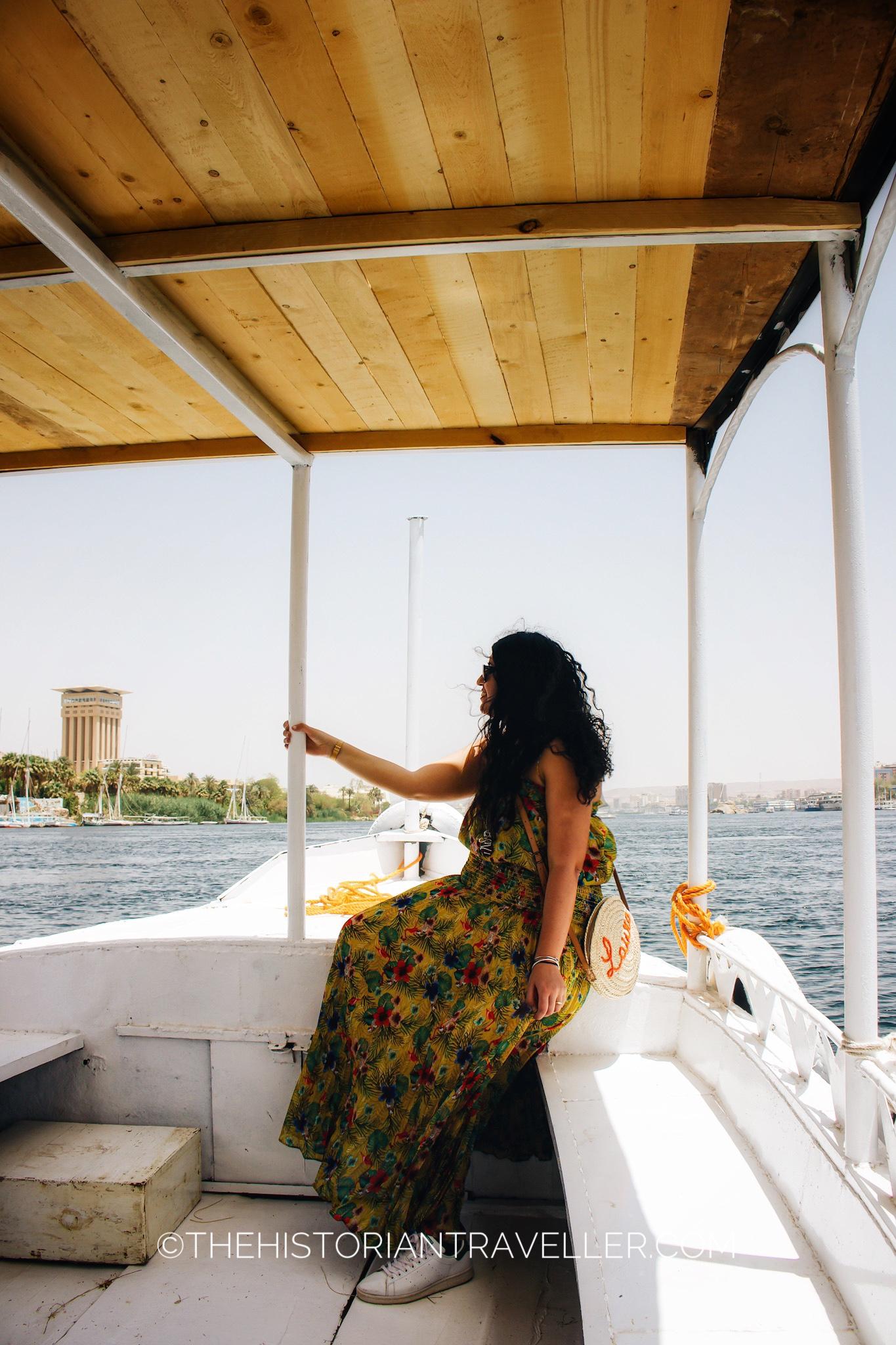
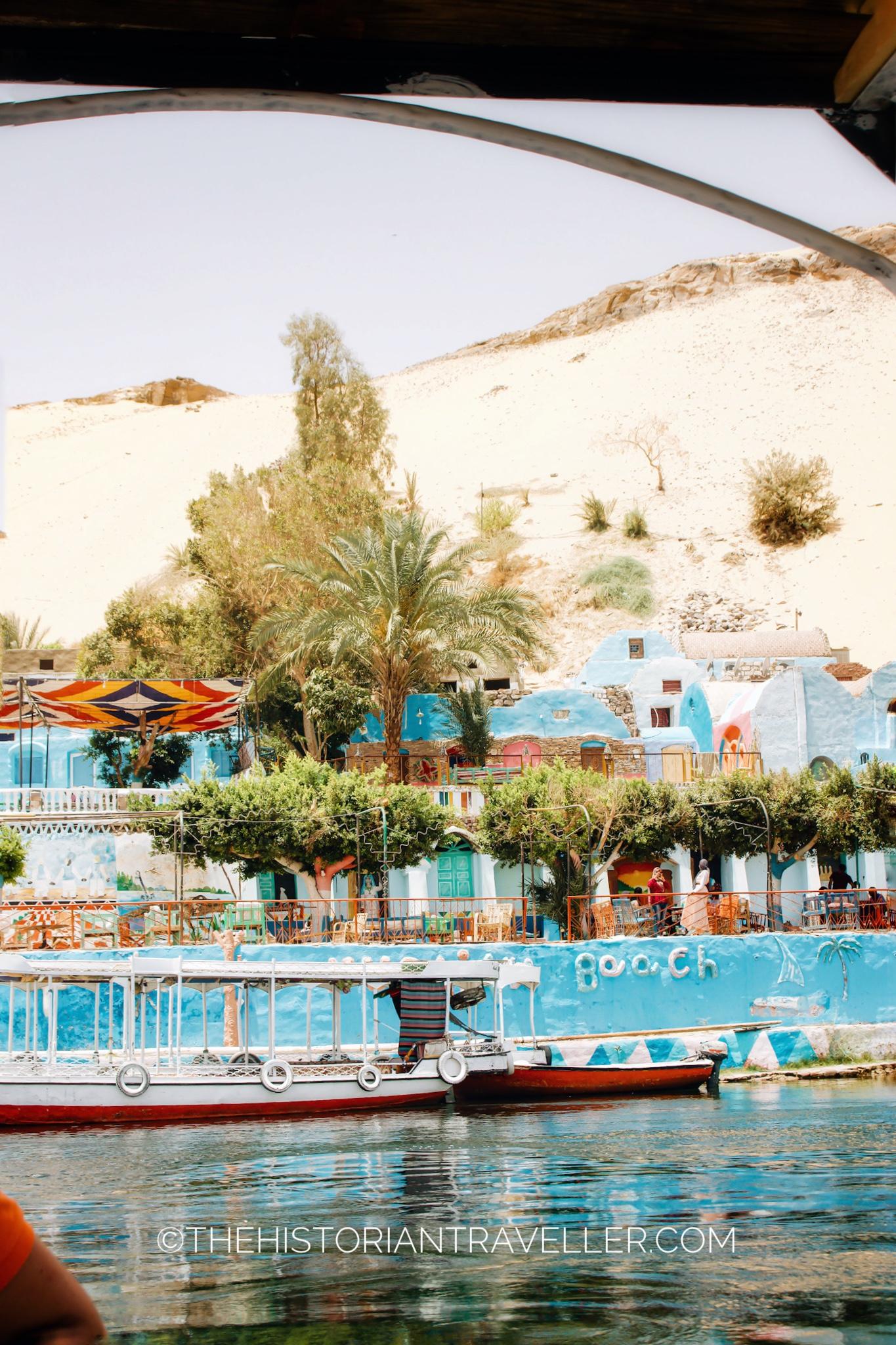

It is widely known that the best time to visit Egypt goes from October to early April. Temperatures are cooler and you can go around most of the day without roasting yourself. Peak season in Egypt is considered between December and February with temperatures between 14-18°. However, unless you can’t barely stay under the sun, I warmly recommend you to visit Egypt on a different time of the year to minimise your impact as a tourist. Moreover, during peak season prices tend to go up considerably. So you should probably take the expense section at the bottom of this article as a very general indication. Indeed, you will likely pay more for tours and accommodations.
July and August are generally considered hell months to visiting Egypt. This because temperatures rise between 35-39° with peaks of 40-45° in the areas of Luxor/Aswan. I thought that with my attitude to warm temperatures, late April and May were perfect to visit Egypt. Cairo and Alexandria were much colder than expected and I totally regretted to not have a jacket with me. This because winds from the Mediterranean Sea were blowing fresh air in these areas and it was most of the time fresh and windy. I was actually freezing at early morning!
If you plan to visit the Western Desert with an overnight camping, please bear in mind of the temperature variation at night. When we visited (late April) there was a temperature of 35° at morning and 16° (circa) at night. This means that in winter months, night temperatures in the desert can be very very cold. Ergo, come prepared!!
Getting around in Egypt
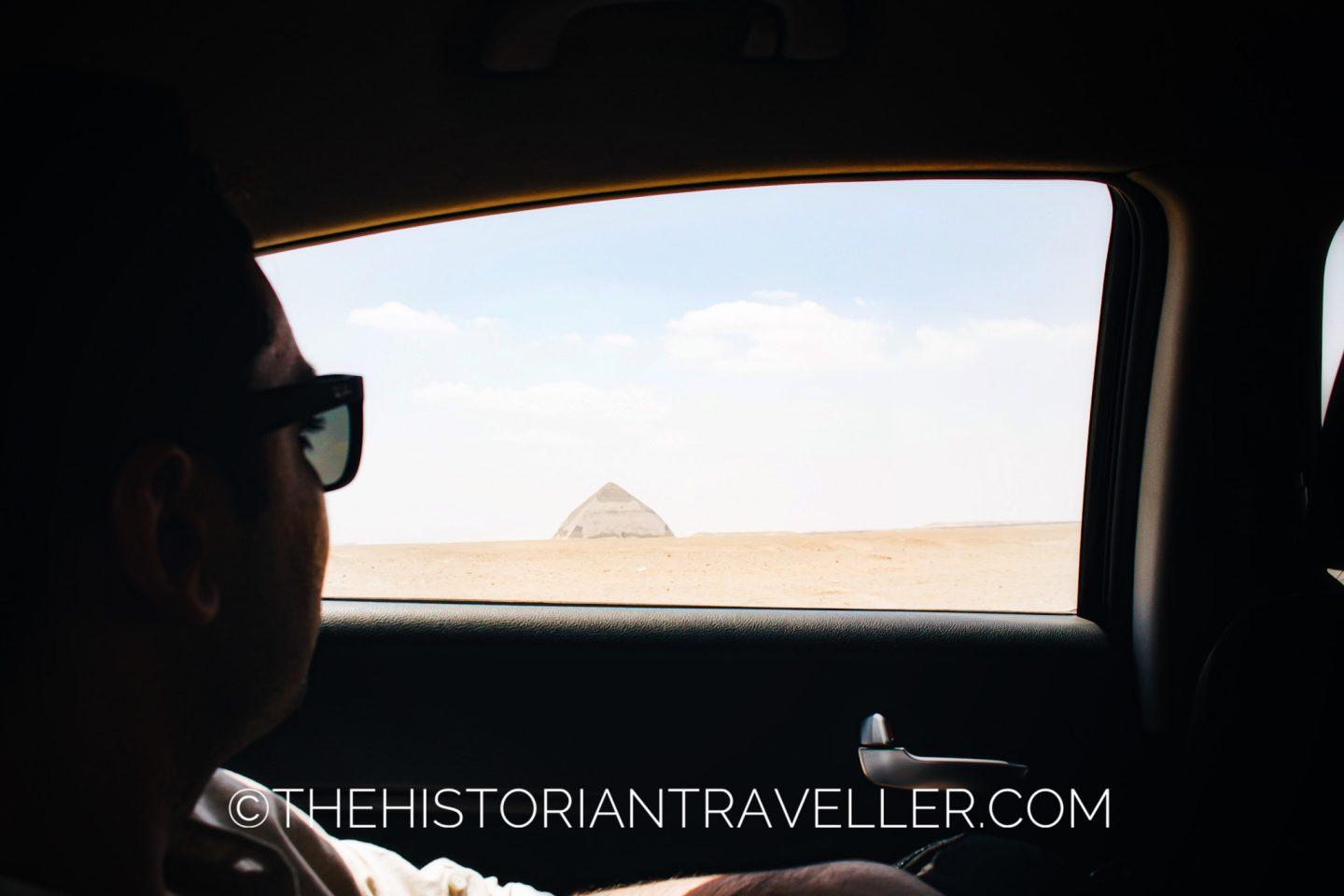
Public transportation in Egypt is fairly good. Rail network is most of the time efficient and there are plenty of buses and taxi for long and short distances.
However, the planning of your trip to cover distant places may look complicate at first. In fact, moving from one side to another of the country is still ”problematic” if you want to be independent.
Getting around Egypt by train
Exploring Egypt by train is considered a good and cheap option if you want to cover safely long distance routes (e.g. Cairo-Aswan). However, you should consider also that country is huge and it will take at least 10h to reach Luxor from Cairo by train. For reasons of time, we decided to do our lengthy part of the trip by air. So, we fled from Cairo to Aswan and this saved us at least 11 hours of travel!
This is definitely great for timing but not great for our pockets because this very short flight costed us £220 (more or less how much I paid my one way ticket to Egypt!). You can go for the cheaper option that are the Watania Sleeper Train at a cost of about $160 dollars for two people or a similar day version for an even cheaper price. We travelled by train for a day trip from Cairo to Alexandria. It was cheap, fast and the train was surprisingly punctual. Very recommended!
You can book your tickets in advance on the Egyptian National Railways. However, please note that tickets are usually released two weeks in advance your planned date.
Getting around Egypt by car
Driving in Egypt can be a hazardous experience. This because most roads are crowded, bumpy and not adapt to tourists in general (without considering also the countless police check points). Renting a car to go around in Egypt is still out of the options. If you want to travel by car from one city to another (e.g. Cairo – Alexandria) the most recommended and safe thing to do is book a private driver. Some destinations are reachable only and exclusively by car (i.e. the White and Black deserts). So, in this case, having a good driver is indispensable.
Getting around Egypt by coach
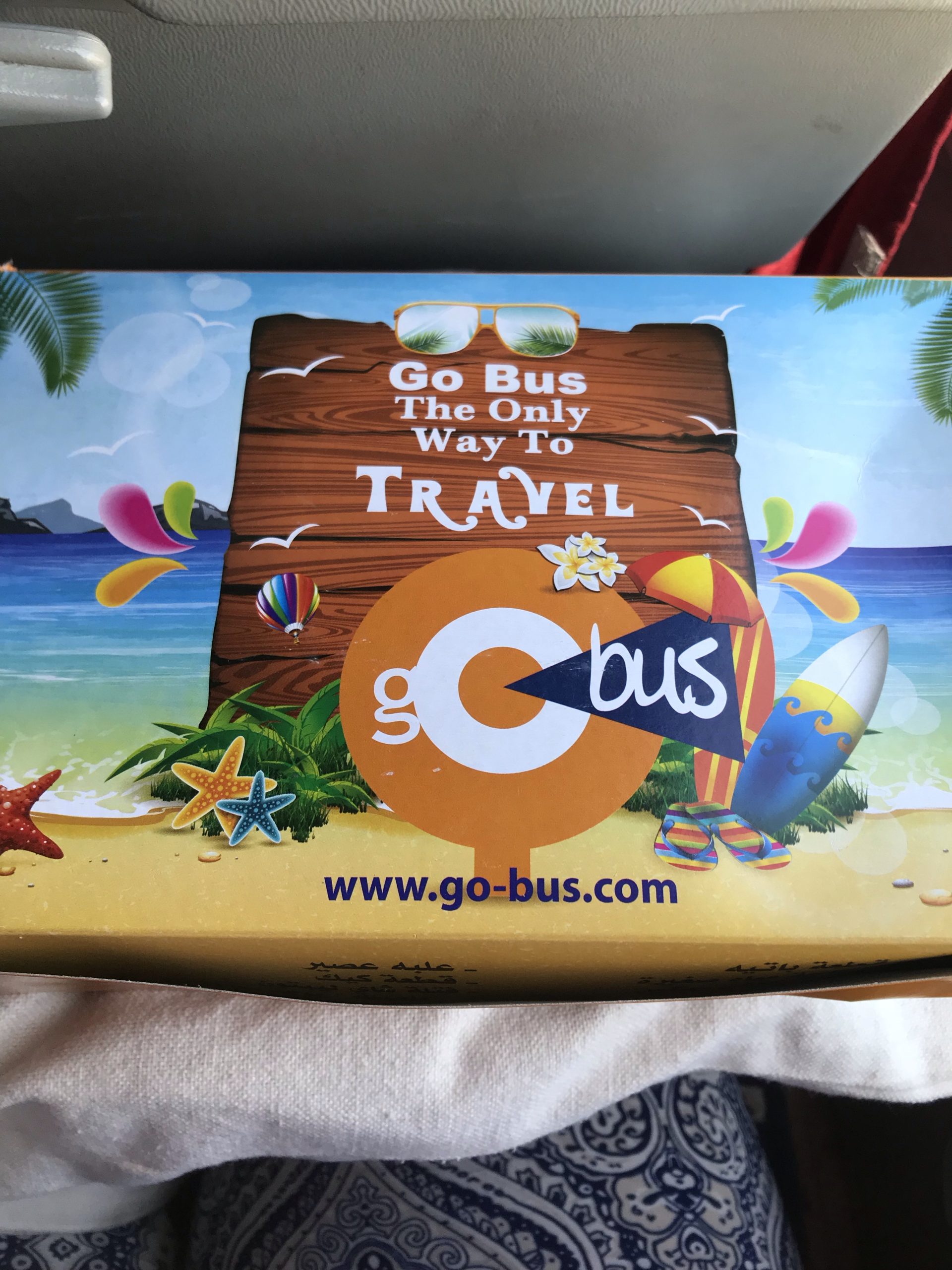


Coaches in Egypt are good and quite reliable! We used the company GoBus for travelling from Luxor to Hurghada and from Hurghada to Cairo. For the first trip, Luxor to Hurghada, we booked a normal coach. Nothing special but it did its job and carried us safe and sound to destination. For travelling from Hurghada to Cairo, we booked a deluxe coach. This was amazing! It was like staying on a plane but on a bus! Free entertainment, comfy seats and free food and drinks on board! Definitely recommended!
Getting around Egypt by plane
Travelling by air in Egypt is a time saver but at the same time can be quite expensive. Most of the national flights are operated by EgyptAir that is good and reliable. We fled from Cairo to Aswan and the flight was very good and relaxed. Fares tend to rise fast, so it is better to book your flight at your earliest convenience.
Getting around Egypt by Boat
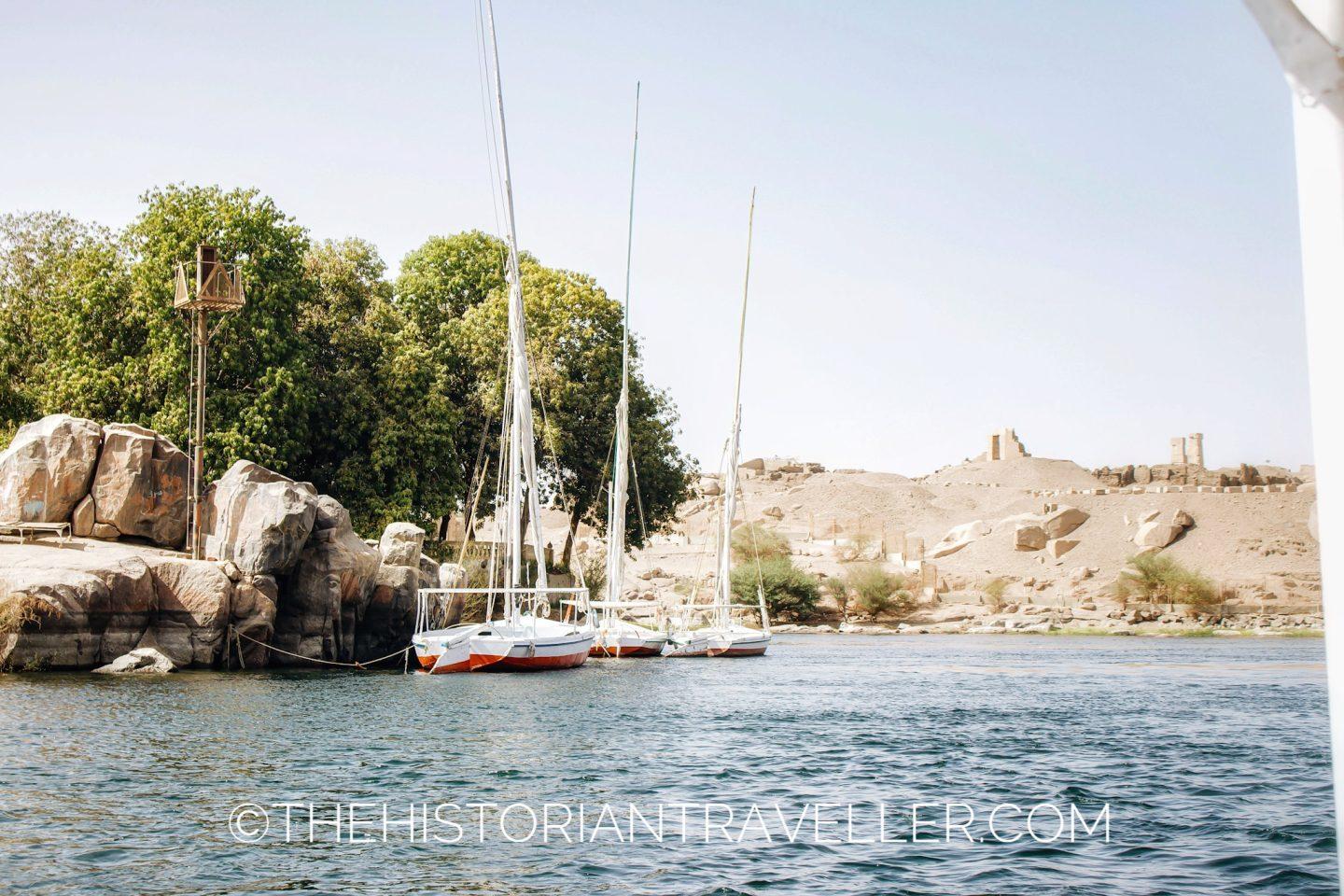
A Cairo to Luxor cruise is one of the most old-fashioned and relaxed way to move in Egypt. Luxury cruises are generally very expensive but you can find also some decent cruises for moderate prices starting from 500-600 USD. It’s an nice way to see the country, but if you have a limited time, I would opt for a different option. Feluccas are also a great and greener way to move in Egypt. They are totally moved by wind and can cover small and long distances. We took a sunset Felucca cruise and we loved it!!
Cost of transport in Egypt for two people
Below, you will find the options that we chose in relation to transport in Egypt. These include the cost of main transportation for two people for about 20 days but exclude short trips (e.g. Uber rides). This might be useful when planning your trip and movements across the country.
- Cairo to Alexandria —> Train (Cost 328 LE – £15)
- Cairo to Aswan —> Plane (Cost £ 220 including hold luggages)
- White and Black Desert —> Car+ 4×4 (Cost $360 including everything else)
- Aswan to Abu Simbel —> Car (Cost £120 including entry tickets)
- Aswan to Luxor via Kom Ombo, Esna and Edfu —> Car (Cost $130)
- Luxor West Bank —> Car (Cost $70)
- Luxor to Hurghada —> Coach (Cost 220 LE – £10)
- Hurghada to Cairo —> Coach (Cost 660 LE – £30)
Egypt tour packages. Is worth the hassle?
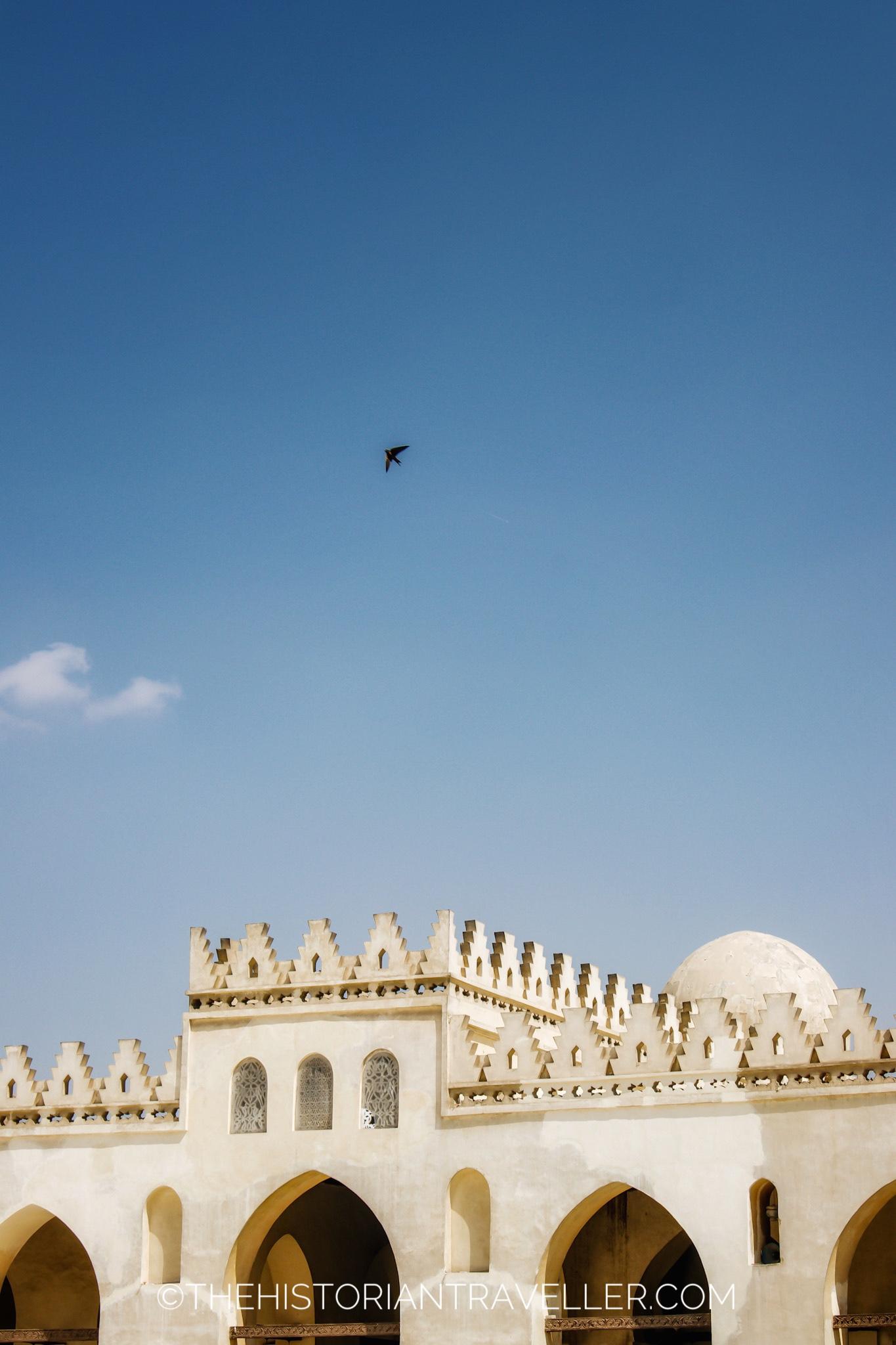
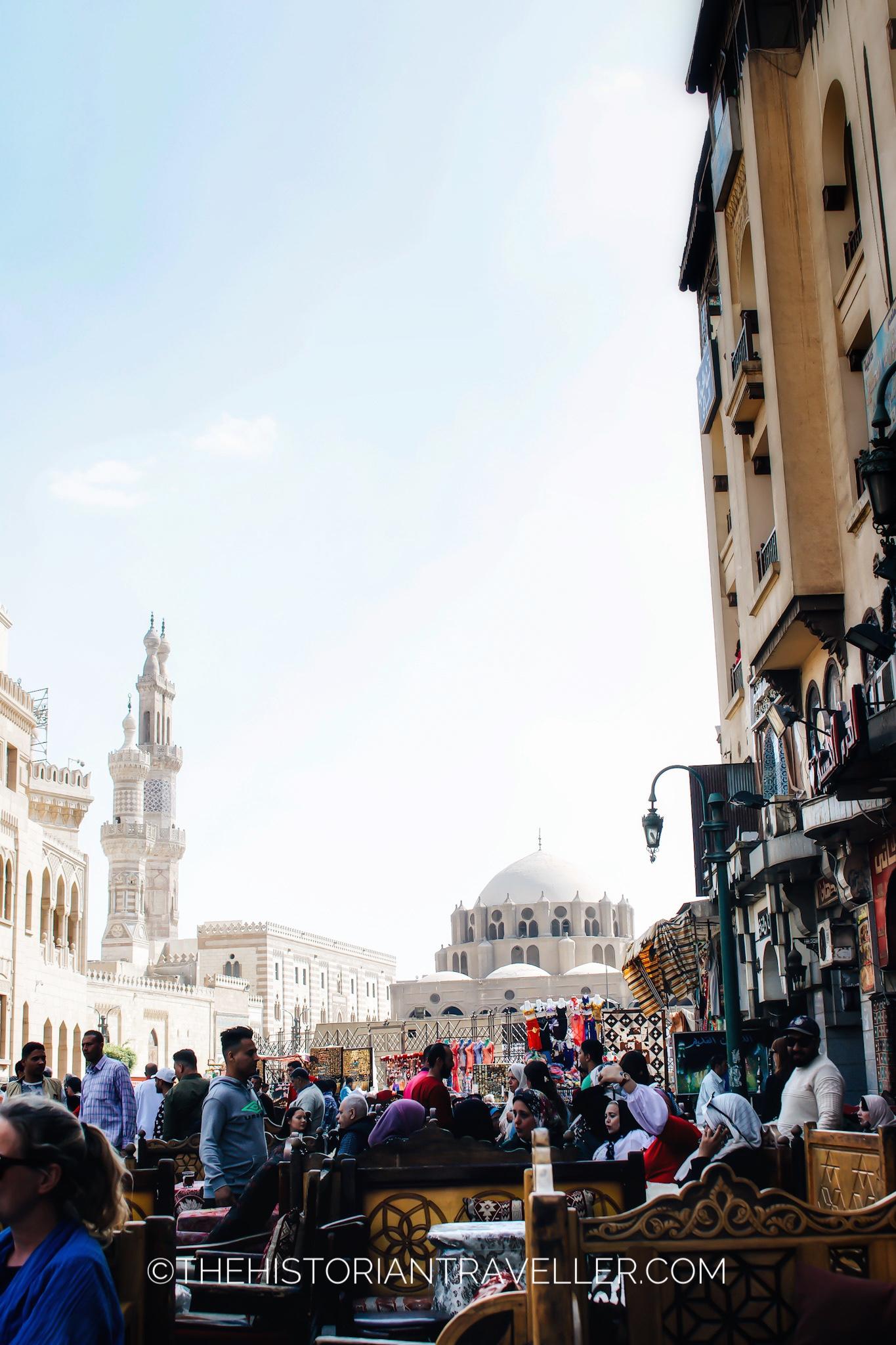
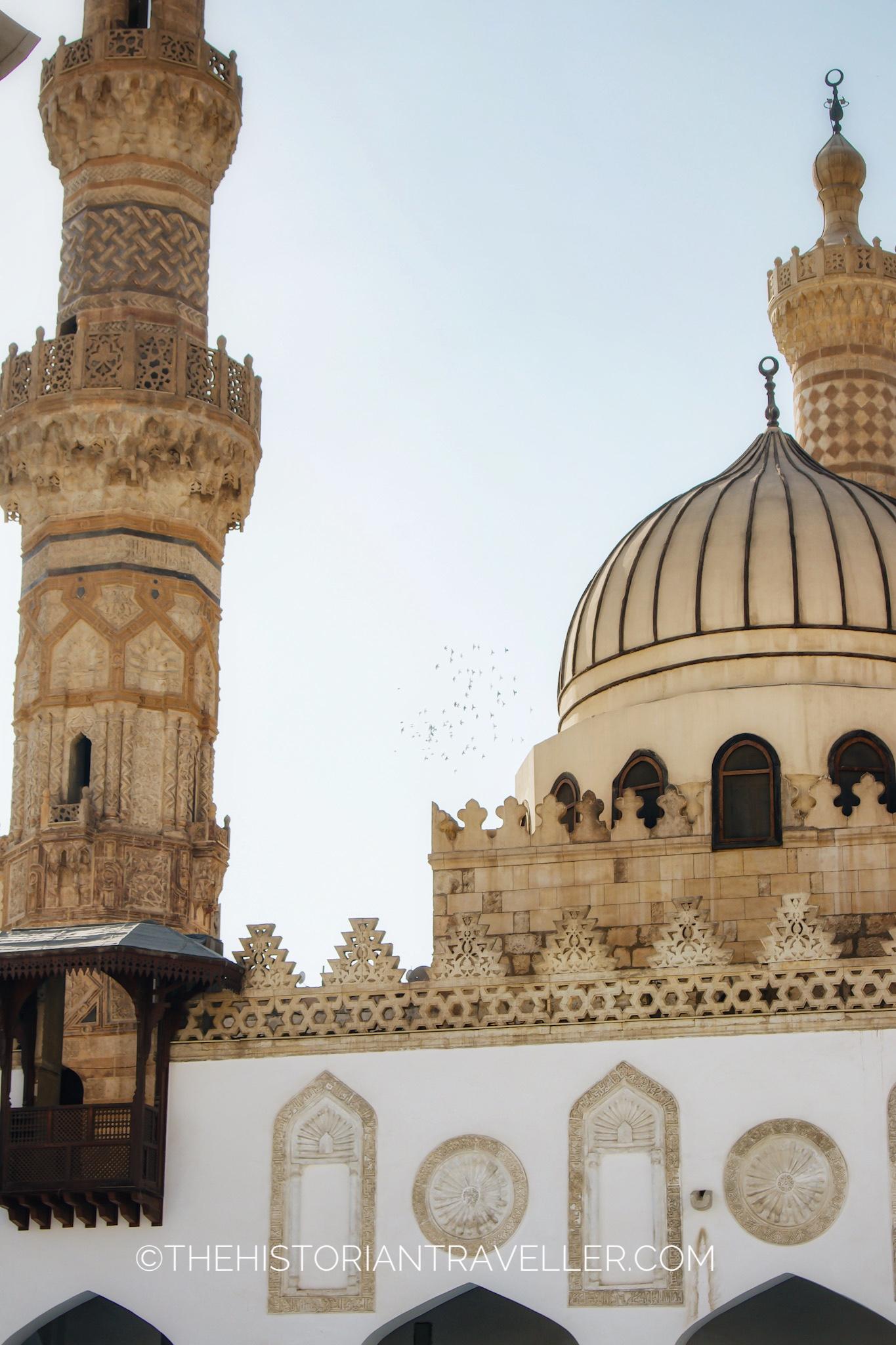
There are people thinking that having a guide telling you everything about a place is extremely valuable. To a certain extent, this can be true, especially for Egypt. However, situations have to be assessed case by case. In our case, we decided to book some private tours and just two group tours in Hurghada. The main reason for this was that certain places were reachable only with convoys or private cars. Moreover, we didn’t trust 100% public taxis to take us so far away (e.g. Abu Simbel). A second reason, was that I am a historian but I am not specialised in Egyptian history. So, everything I knew I’ve read it from books and years of interest in the country before coming.
Egypt tour packages. What to choose and when to choose one
Choosing or not a tour package is always an issue. Is it worth the money? Will be boring? Will I really learn something? Before booking a tour package in Egypt, my warm suggestion is do to extensive research on the company providing the service. Look at the reviews, ask people on TripAdvisor, call the company to ask more info. Because tour packages in Egypt are like Easter eggs, You never know what you will get.
The question you will have to ask yourself is… do I really need a tour?
Our experience with tours in Egypt
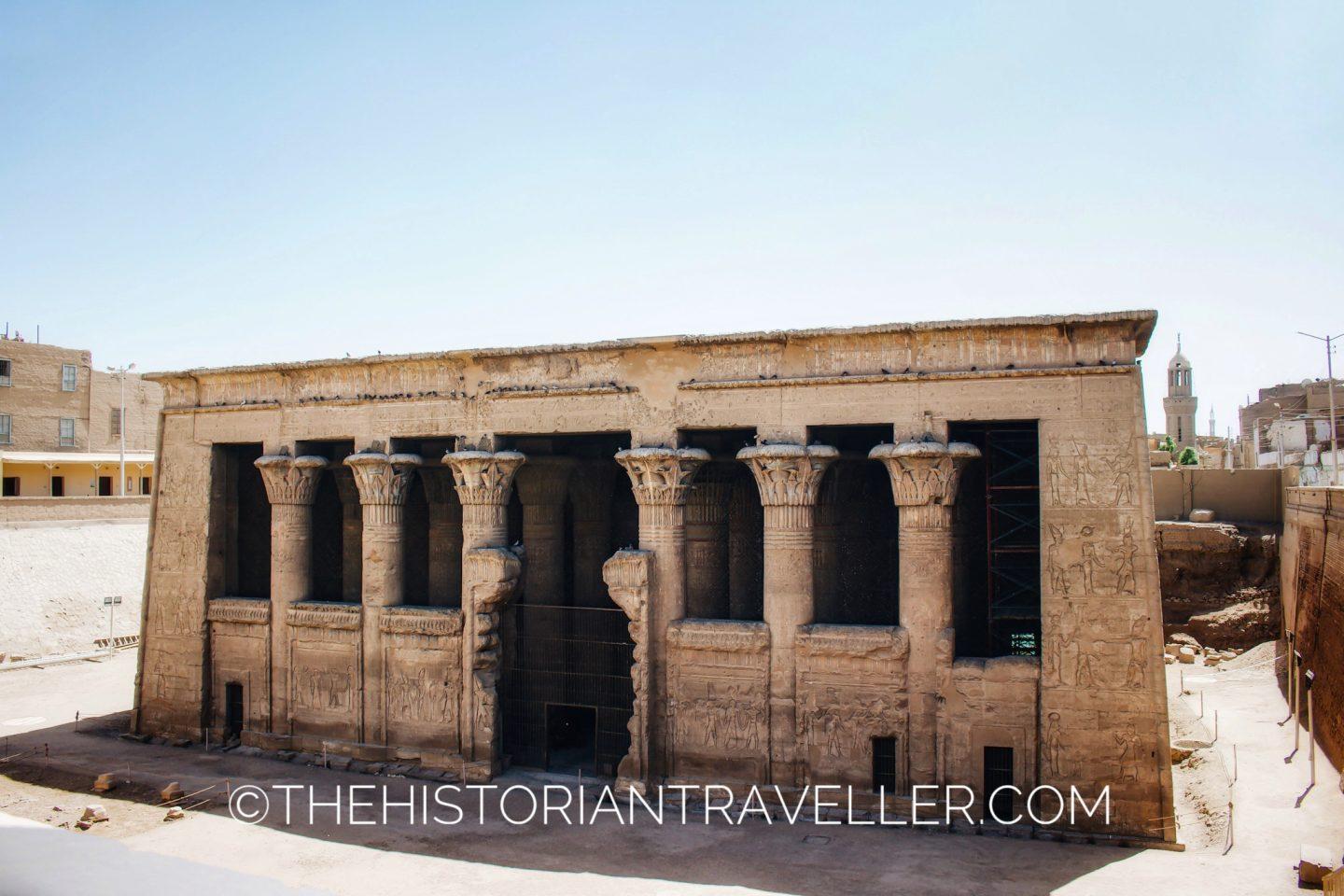
I booked some tour packages only when I thought it was really necessary or going in that location was difficult. However, after a few tours, I admit I was highly disappointed about my guides. We took only five guided tours for historical sites. Two on five guides were REAL EGYPTOLOGISTS and only one of them was very expert and knowledgeable in his field. To make you understand better what I am talking about I’ve described our best and worst experience with Egypt’s guides below.
Our worst guides in Egypt
The worst guide we had was at the temples of Esna and Edfu. He barely spoken English and the only things he was continuing to say was “look at the colours of the columns”. Yes, thanks. I can see them by myself, don’t need to pay you for this. Our second worse guide was at the West Bank of Luxor. He was complaining all the time about the heat (well you know you are living in Egypt right?). He gave us some insufficient info in the car and left us going alone because he did not want to walk under the sun! What???
Our best guide in Egypt
Our best guide was at the temple of Kom Ombo. He was very knowledgeable, specialised in this temple, able to translate hieroglyphics and showing us the most important sides of the area with very detailed information. We bombarded him with questions and he was very happy to reply to all of them. This visit was upper level compared to the others and I really appreciate to have a guide with me.
Considering all these experiences I would not book a guided tour again in Egypt in the future. This because you don’t know what you’ll really get despite using very reputable companies with high rating online! You can be lucky and have a great Egyptologist with you, or you can have just a person who (understandably) wants to work, but don’t have the skills for the job.
With this, I don’t want you to discourage you to book a guided tour but to consider when you really need one. The brutal truth is that you would likely need a car for going in certain places, but the guide that may comes with it is not indispensable.
Travelling in Egypt without a tour
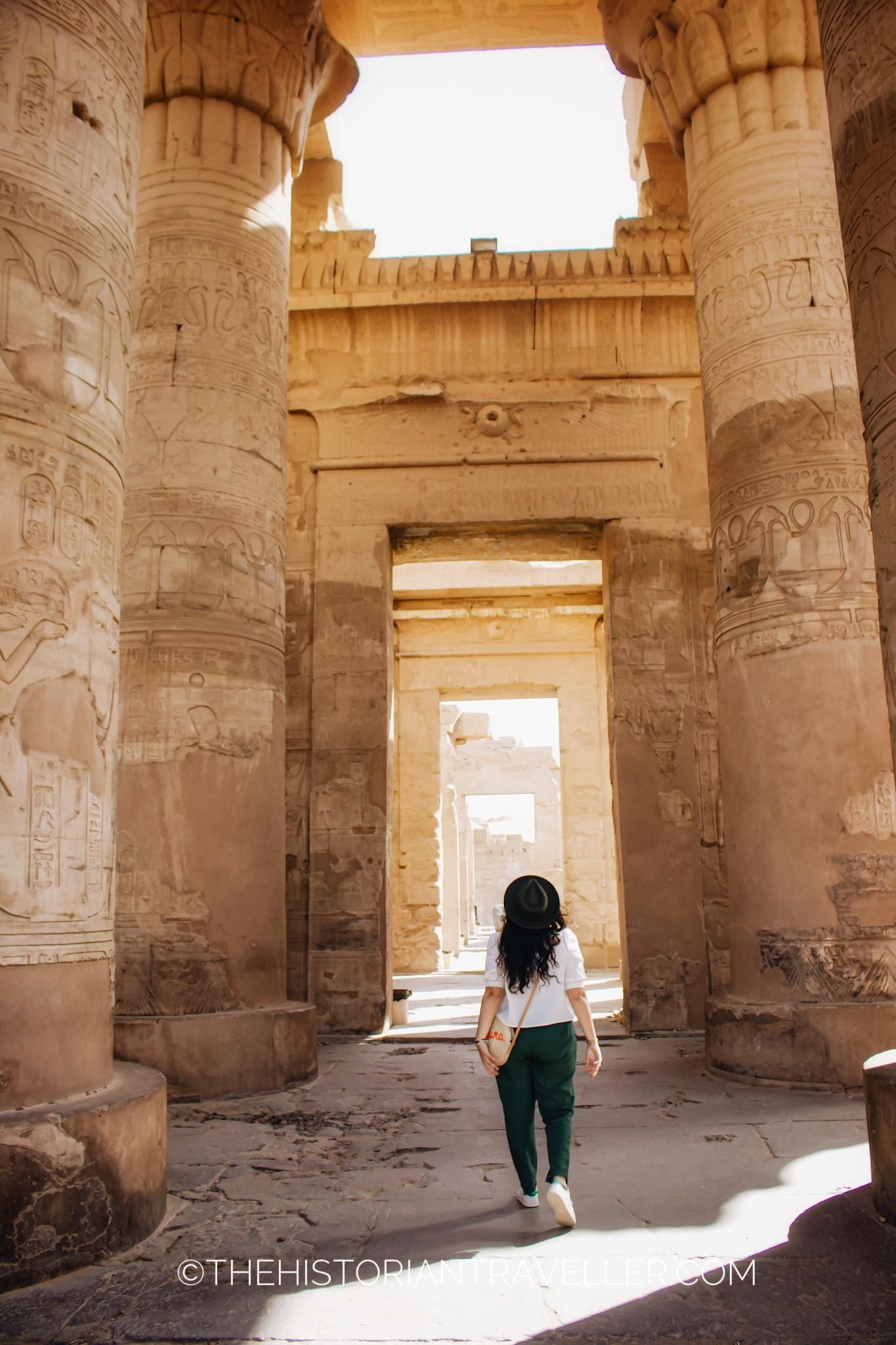
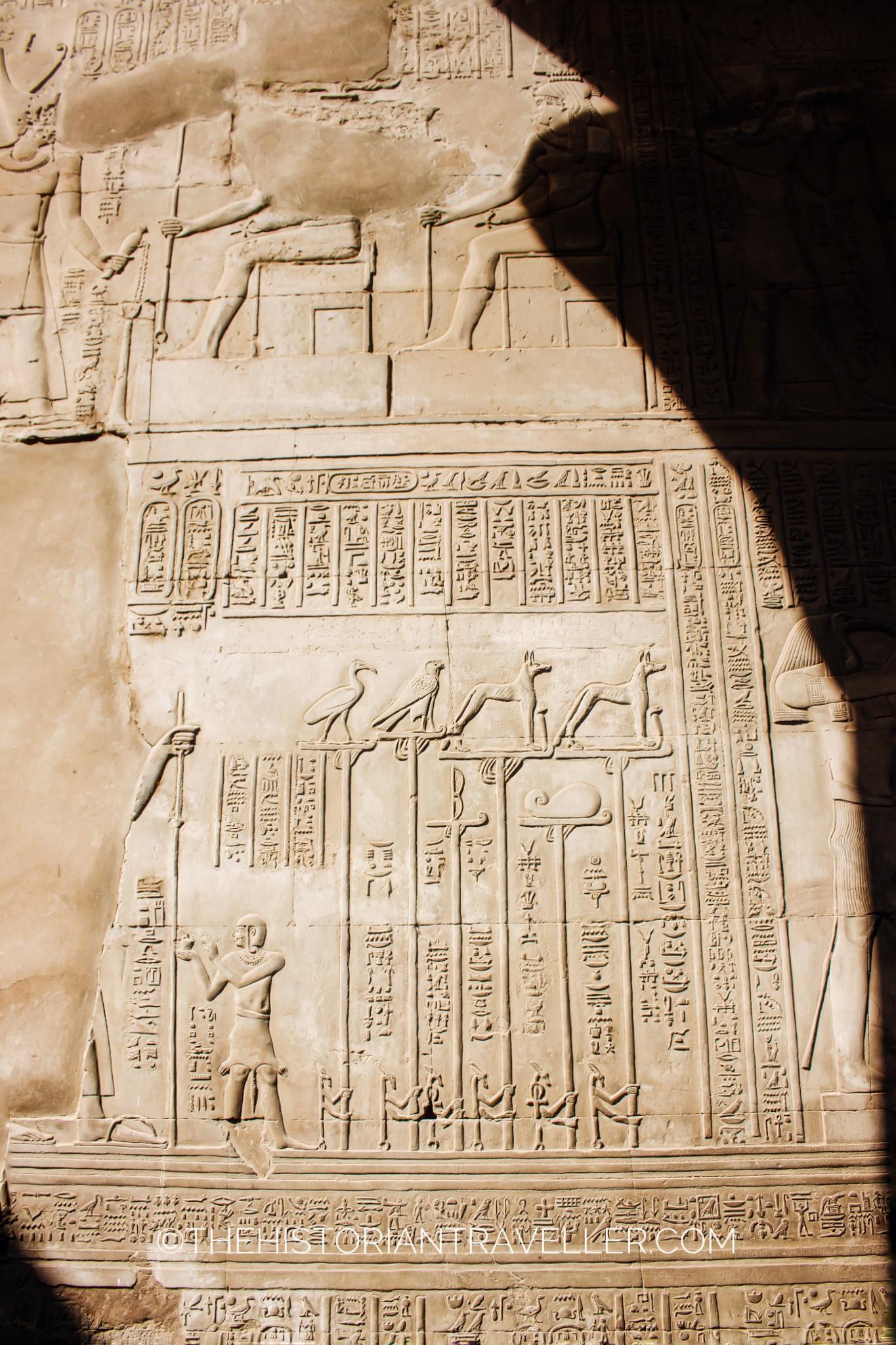
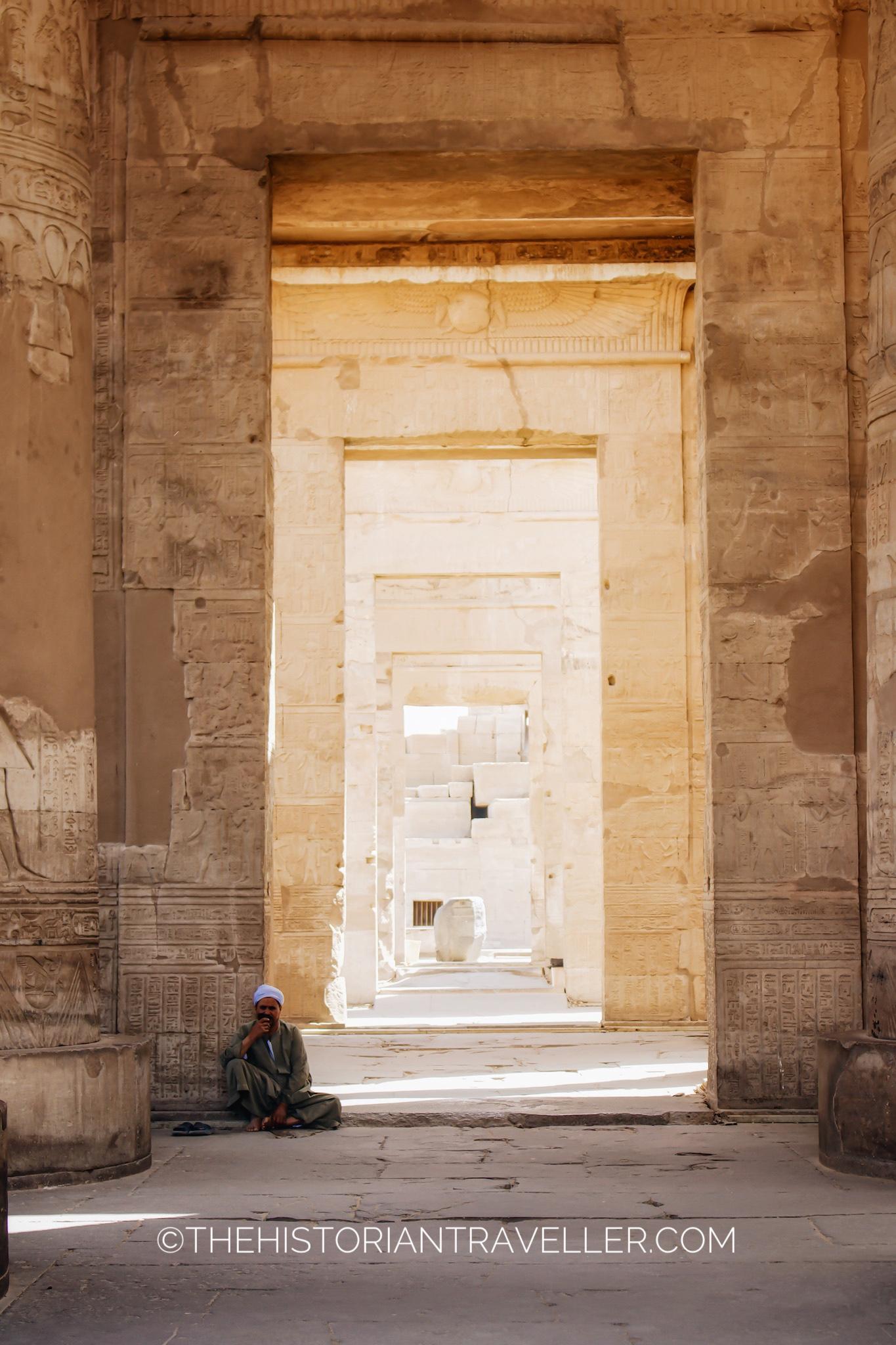
Having said so, I have to tell you also that we had an amazing time going around completely alone! We had with us our Lonely Planet guide and all the notes I wrote to guide us throughout the temples and these were the greatest visits we had!
Top 5 advantages of travelling in Egypt independently
- You can beat the crowd! Places in Egypt tend to be crowded from 9 am because this is the time in which all the group tours arrive. However, but most temples are already open at 6 am and you can be there before everyone!
- This lead to my second point that is photography! Being the first at opening time grants you the possibility of taking stunning pictures without crowd!
- You can decide how long stay in a place and how much time dedicate to specific corners etc. without rushing because of the group dynamics.
- When the sun hits strongly you might have already finished your wandering! Going early means also that you finish early and you will have more time for exploring different places, search a lunch spot, relax by the pool!
- Group tours have usually established spots for lunch. These are usually average places where millions of tourists go. Being free from group tours gives you the opportunity to visit more unique places and taste the best of the Egyptian cuisine.
Stranger things: money, crossing the street and other Egyptian peculiarities.
What currency should I take in Egypt?
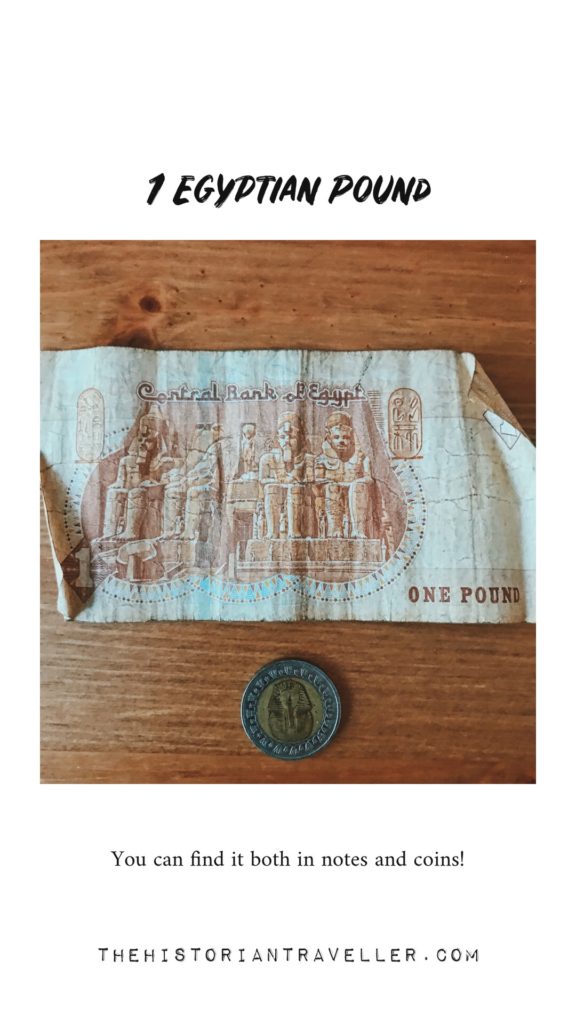
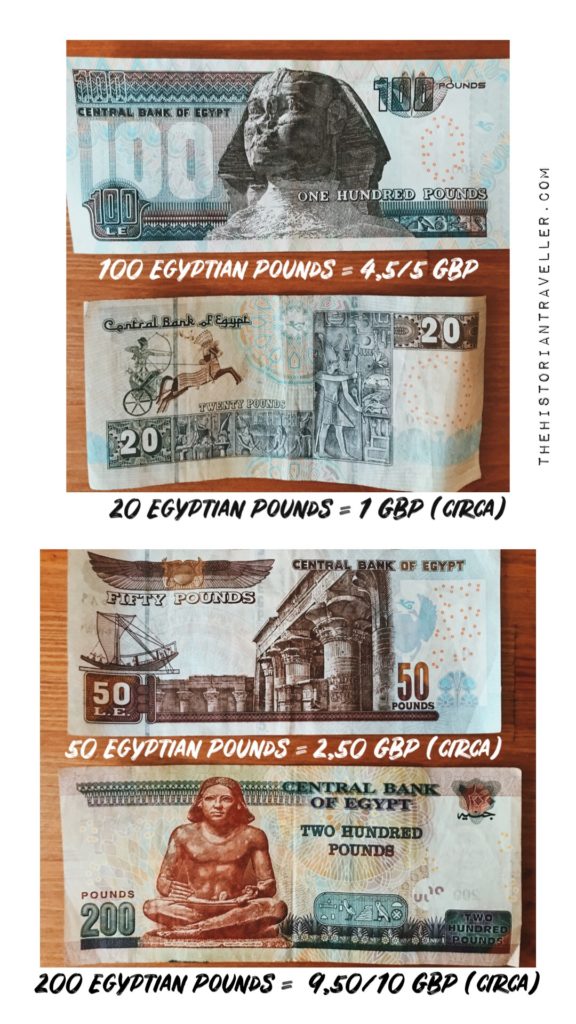
If you have not familiarity with Egyptian currency, is better to prepare yourself before going. I found the Egyptian approach to money quite confusing because despite the official currency of the country is the Egyptian pound (LE), people in Egypt use actually a multitude of currencies especially in the tourism sector.
Almost 90% of the tours you book from your country, (wherever you live), have to be paid in US dollars. Most hotels requires payment in dollars too. Tips in dollars are usually more than welcome. Some restaurants have the “tourist menu” set on the dollar currency ( I found this just an excuse to rip off more money from tourists). If someone ask to be paid in dollars and you say to not have them, they will probably reply that they accept also Euro or British pounds. Foreign currencies are so popular that you may not use Egyptian pounds at all.
However, although I don’t see the point in being paid in multiple currencies, finding this very confusing, Egyptian people seems to deal with this perfectly. It is likely that they have a very favourable rate of change (especially with dollars) to continue these exchanges in everyday life. Nevertheless, I did prefer to use Egyptian pounds for things like food, souvenirs, attraction tickets etc. In fact, I had the impression that prices were not very honest when proposed in a different currency. Remember always that the general change is 1 GBP= 21/25 LE and 1$ = 17/20 LE
How to cross the streets in Egypt
Walking like an Egyptian cannot be more appropriate for this topic: crossing the street. One of the most stressful things you can do in Egypt is trying to cross the street, even a simple one. It can take ages and most importantly, you can die if not crossing using the appropriate “Egyptian way”. You have to know that pedestrian crossing is still an unknown matter in Egypt, and going to one side to another of the road is very problematic. There is actually a high likelihood of being hit by a car or worse!
However, Egyptian people seem to cross easily, almost like there is a traffic light. How they do it? Skills and years of experience in predicting the speed of the traffic coming towards you in the middle of the street, I guess. During my month in Egypt, I spent lot of time improving my “crossing the street” skills. I’m proud to say that we managed to cross the road by “walking like Egyptians”. I have to say we had also a similar type of crossing in India so we possessed already some of these skills. So, how do I cross the street in Egypt?
First step. Use a human shield
First, if you are too terrified by the traffic coming from all the directions and never done something similar, don’t cross. You can DIE. Seriously. The most appropriate thing to do in this case, is waiting for a local person (that will be your human shield) or group of local people to cross and go with him/her/them. Don’t be scared, they know what to do and how to cross, so just follow them and you’ll be fine. Crossing the street with locals for a while will help you to understand the “technique” and gain confidence for doing this by yourself. Once you feel confident enough to approach the street alone, start by looking in all directions (including the footpath just in case).
Second step. Conquer your space on the road
If there is a small sidewalk in the middle of the lanes, that’s your objective. If there is not, focus on the first free space on the street and run like there is no tomorrow. Of course, check first that there is no one coming that is less than one meter from you. Try always to focus on the space in front of you and don’t start wandering around. You might get confused and ending like a scared rabbit in the middle of the road.
If there is much crowd, it’s easier to cross as cars go very slow and you can simply slide between them. If cars go very fast, try to conquer a piece of the road at time until you reach a safe space. Try to be fast and precise in conquering the “free spaces” as a minimum error can be your last one. Yes, it sounds dangerous as it really is so, don’t try it unless you feel very confident.
Social Etiquette and Egyptian Humorism
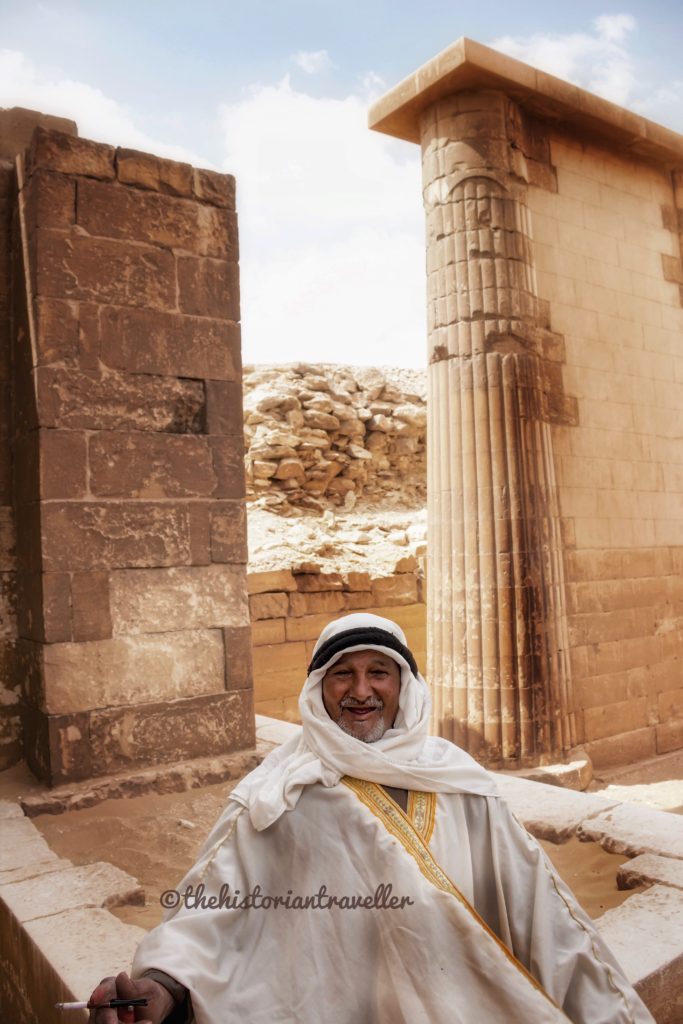
What is the culture like in Egypt?
Before going to Egypt, I’ve read many books, blogs and articles about the do and don’t expected to be observed as part of the Egyptian social etiquette. Among the “hot” topics, there were “don’t talk about politics” or “don’t talk about religion” etc. After many days spent in the most different parts of the country, I think that these do and don’t really depend on the situation and people you are with. In fact, etiquette in social discussion is much more flexible than expected and most people are very open to talk about a wide range of topics.
Social talking
In a month, I had the opportunity to discuss a great variety of topics. Worldwide politics, religion, women position in Egypt and rest of the world, travel, local customs and cuisine. Maybe I was just lucky. However, all the people I met were very open minded, welcoming and happy to talk about their culture and know more about mine. Unfortunately, as expected, I did not talk to many women. So, I had just a partial experience from this point of view. Nevertheless, all the men I met were super nice and very respectful of my opinions. In any case, before launching yourself in a debate, try to understand what type of person you have in front. If he is very irritable, or not prone to discussion avoid controversial topics. Most of the times discussions on different topics come naturally and you have just to give your opinion.
Egyptian sense of humour
One of the things that surprised me the most about people in Egypt is their unique sense of humour. Egyptians are very funny and most of them like to joke practically about everything! Jokes are sometimes done with certain serious faces that you will not understand immediately what’s happening. This contribute to make the joke even more hilarious for them!
Egyptian not-so-funny jokes
Approaching things with humour is typical of being Egyptian and this is used in situations that make western tourists nervous. E.g. your driver is one hour late and you called him several times and you start to get nervous. He arrives and tells you that he was actually waiting for you on a very different street. In this way, he can start a joke about this, finding the thing very funny (true story). Of course, the whole story was a mere lie and he knew he was late. However, he used humours to avoid discussions and start the day with a positive tone.
Another day, we told our guide that one of the things we liked less about Egypt was the people following us around insistently and trying to sell us things we didn’t want. Guess what he organised for us when we went out of the Valley of the Kings? He called all the street vendors he knew to follow us with different stuff just for joke! This time we understood immediately the joke and it was actually very funny. I still can’t believe that all these people agreed to take part to the joke! From jokes, white lies, over exaggerations and so on, these kind of stuff happened to us during the whole trip,. Ergo, be prepared to be “Egyptianized” in all ways possible and try to face this with a big smile on your face! You’re in Egypt, after all!
How much does it cost a trip to Egypt?
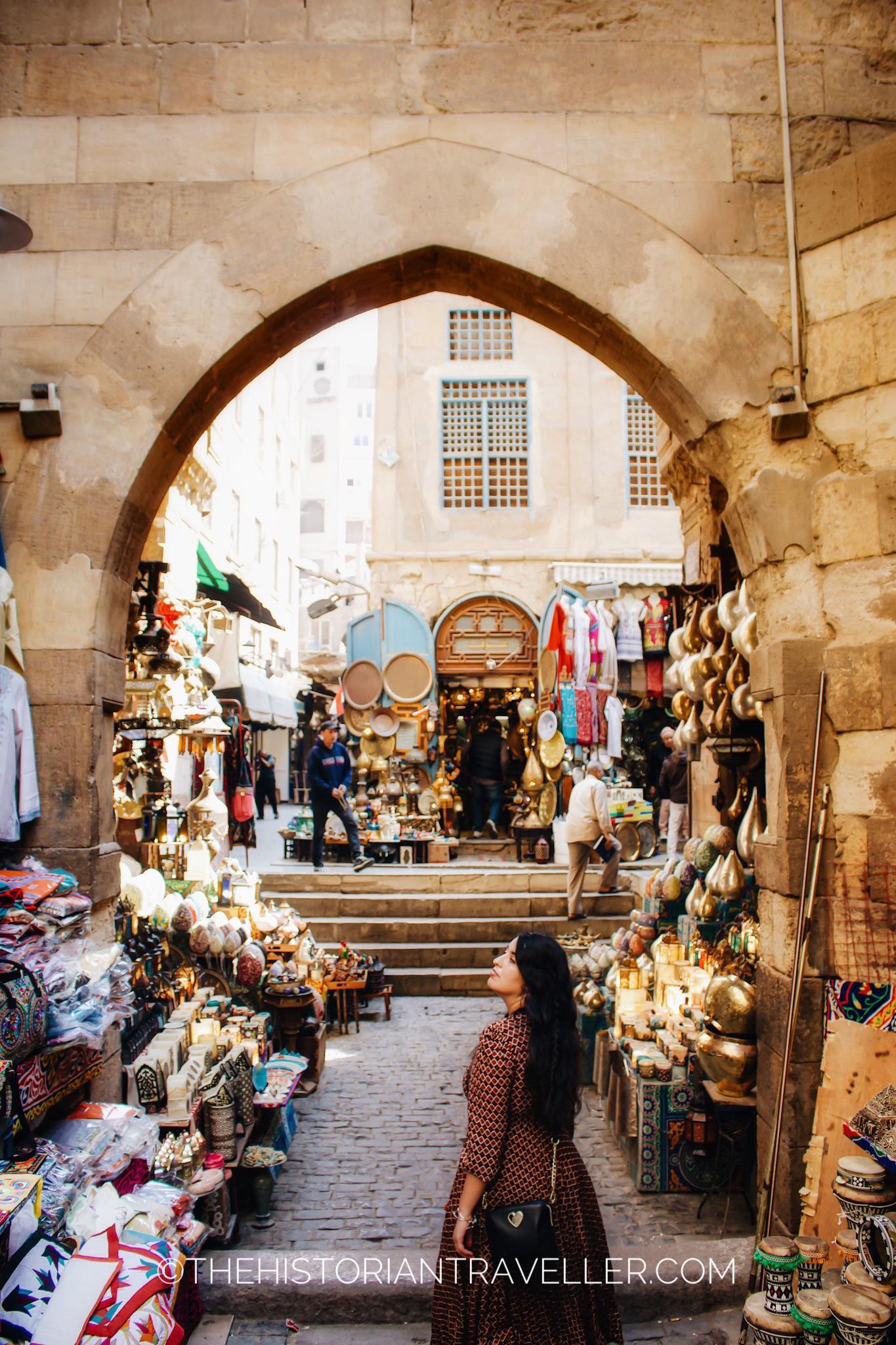
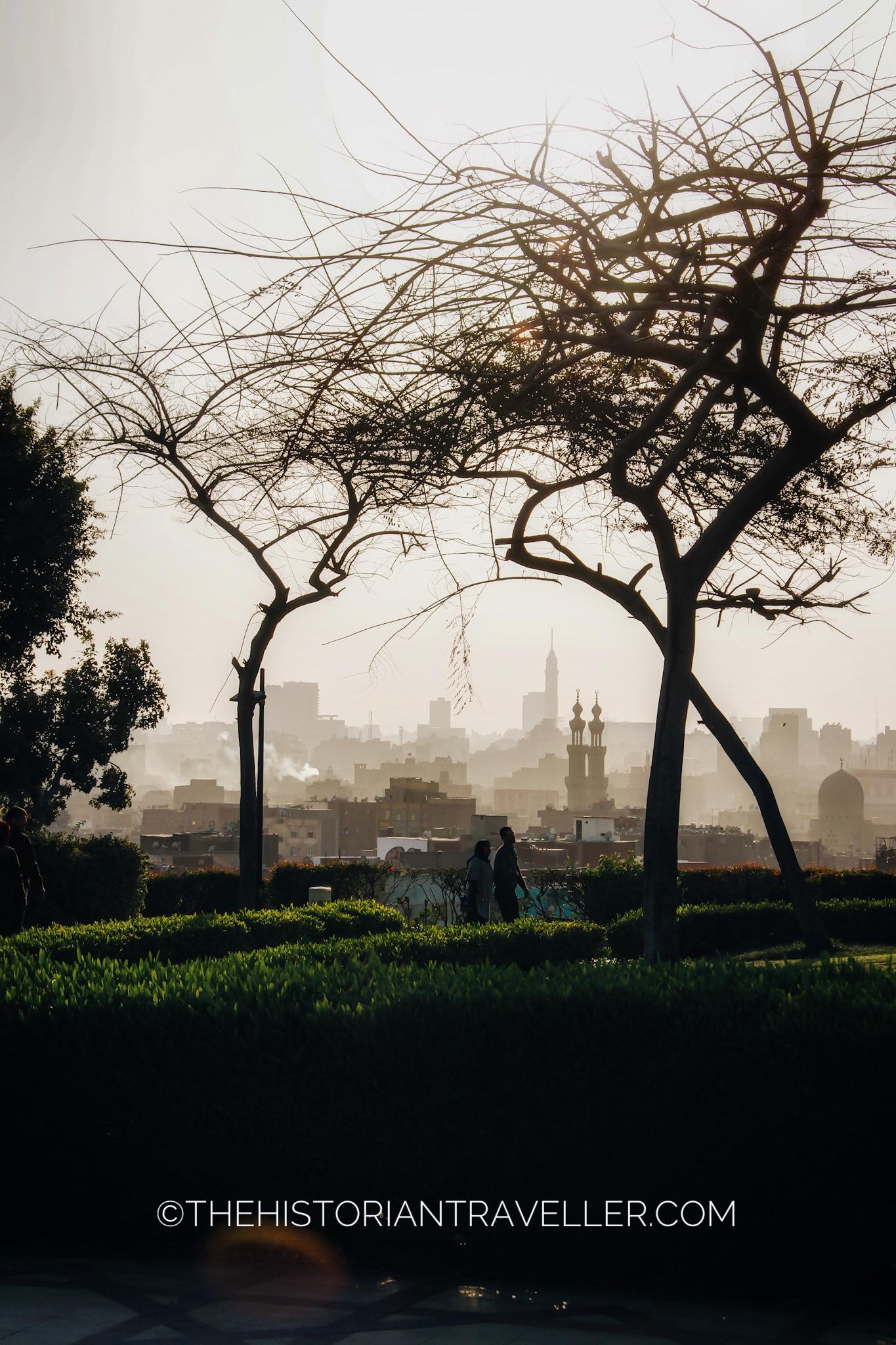
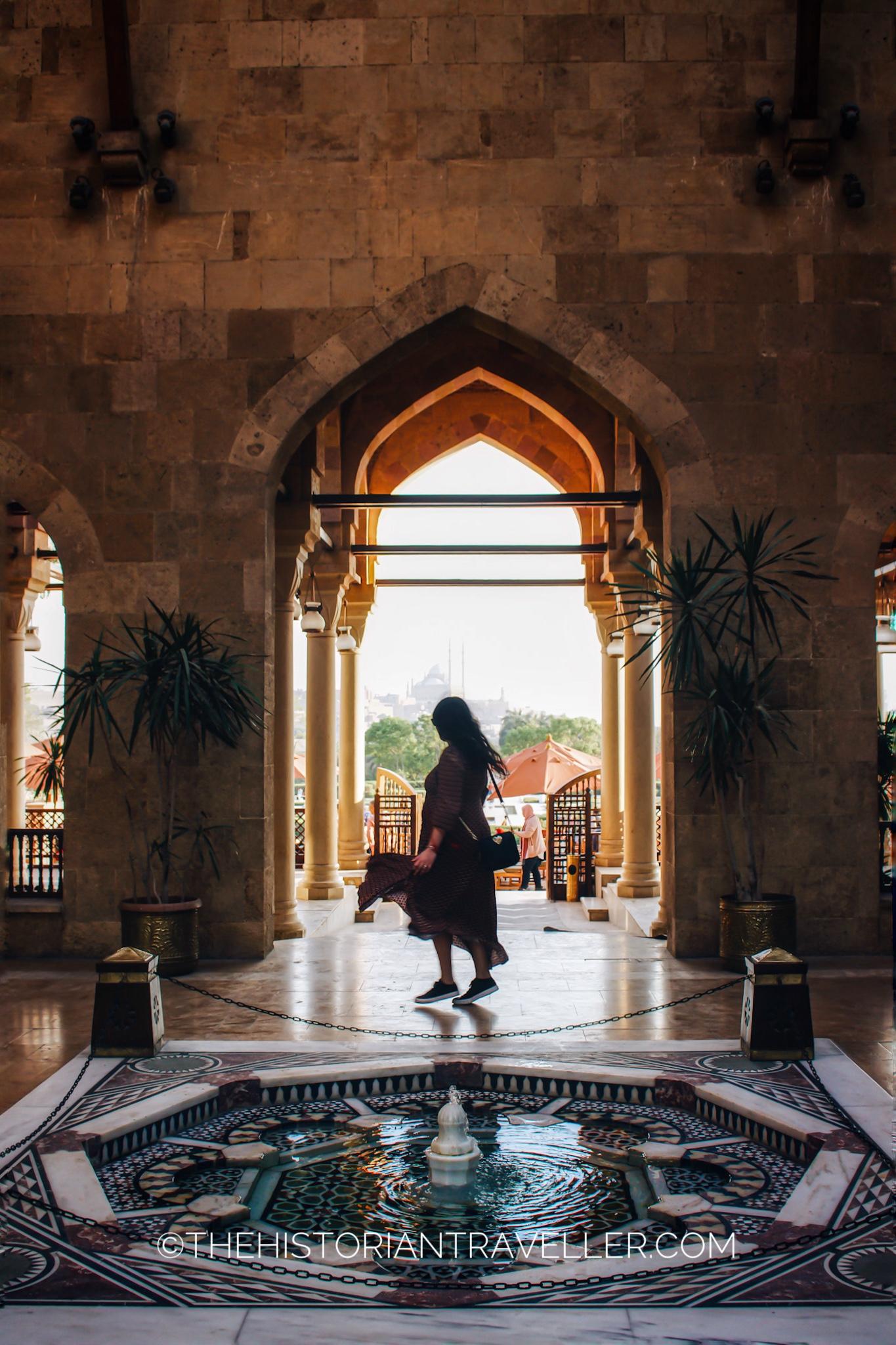
One of the things I always wondered before our trip was, what is the real cost of a trip to Egypt? In many websites and guides, I’ve read that Egypt is very cheap, but is this true? What is the real meaning of “cheap”? That is cheap in general or compared to other countries? That I can live with less than £20 a day or is just a myth diffused by backpackers? That can I stay at a luxury hotel paying the same price of a budget hotel?
Before my trip, I’ve done thousands of research, booked and cancelled several hotels when I found a better deal and asked many quotations for tours. However, I couldn’t really figure it out the costing of a trip to Egypt. For this reason, I took note of all our expenses. So, if you are planning to visit Egypt, you’ll know more of less how much it would costs a 20-days trip for two people.
Is Egypt cheap for travelling?
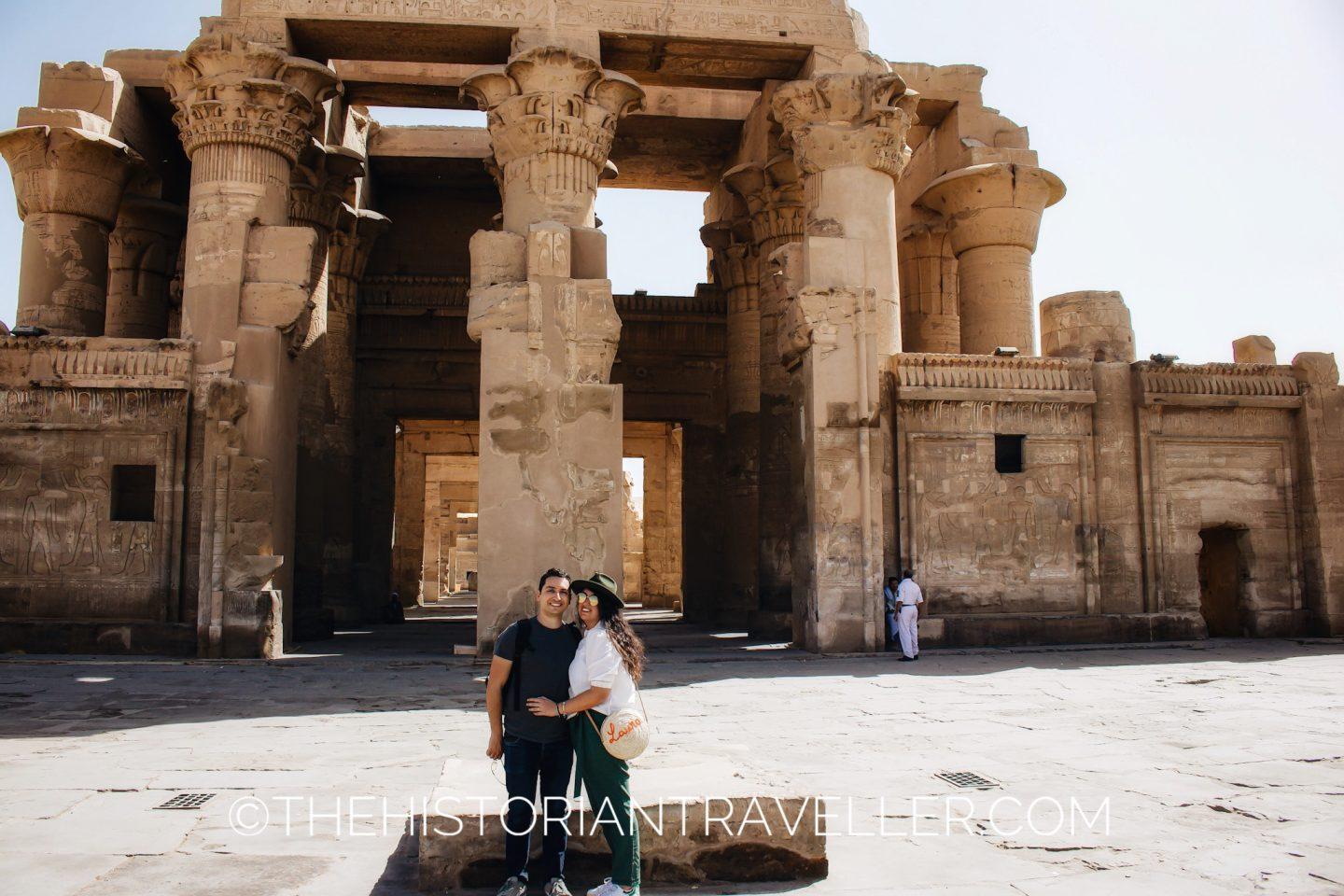
After having spent some time in Egypt, I think that the word “cheap” is quite misused to describe the country. Yes, there is a less expensive cost of life in general, but not everything you expect is “cheap”. The cost of the vacation, as for any other place in this world, depends totally on how much you would love to spend. If you are going for a luxury vacation, be prepared to face expensive costs.
In fact, Egyptian luxury places are not less expensive than their European companions. For example, the Four Seasons in Cairo, offered us a media rate of $300 per night for a Nile View room (of which normal price would be $570). Imagine paying a room at similar luxury hotels across the country for 20 nights with these prices. Do you still think Egypt is cheap? I’ve done a little list of what a normal person might find cheap or expensive in a country like Egypt compared to European prices.
- Flights (from Europe) – Expensive
- Taxi – Cheap
- Train – Cheap
- Bus – Cheap
- Private car (with driver) – Expensive
- Luxury hotel – Expensive
- Attraction tickets – Cheap/Expensive (depending on the attraction)
- Photographic permits – Expensive
- Food (street food) – Cheap
- Restaurants at 5 stars hotels – expensive or similar to European prices
- Organised tours with reputable companies – Expensive
- Hourly paid guides – Cheap/medium prices
- Souvenirs – Cheap/Expensive (depending on what you buy)
Travelling in Egypt on a medium budget
As much as we would loved to lay on the pool of the Four Seasons, 300 bucks per night were quite a huge sum. Especially for someone that has planned to survive a month in the country on a medium budget. So, we kindly refused and planned again our schedule and expenses according to our real needs. Our trip was planned according to a budget of £ 3,000 for two people. I am happy to say that we managed to not exceed the sum expected (conversely we stayed somehow below!). The graphic below shows you how we managed the expenses of our trip.
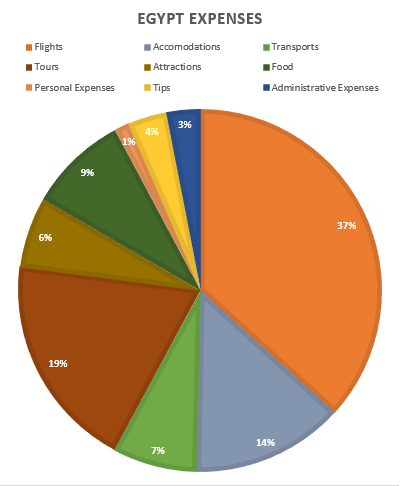
As you can see, flights (international and national) were the biggest expense ranging around £1,000 for two people. Tours (including private drivers and guides) were the second most expensive slice. They took a 19% of our budget ranging around £550. The third most expensive thing we paid was accommodation, of which we managed to pay around £400. The remaining expenses ranged around £700. These included the entrance fees for the attractions, tips, food, personal expenses (e.g. souvenirs) and administrative expenses like the visa or the travel insurance. If you are not particularly picky, food is probably the thing that makes you save more.
We love street food and most of the time we did not spend more than £5-10 for two people. Of course, some days we decided to splurge our budget on fancy things like when we decided to dine at the Ritz in Cairo paying £38 (which is super expensive for Cairo prices).
Optimise your budget for Egypt
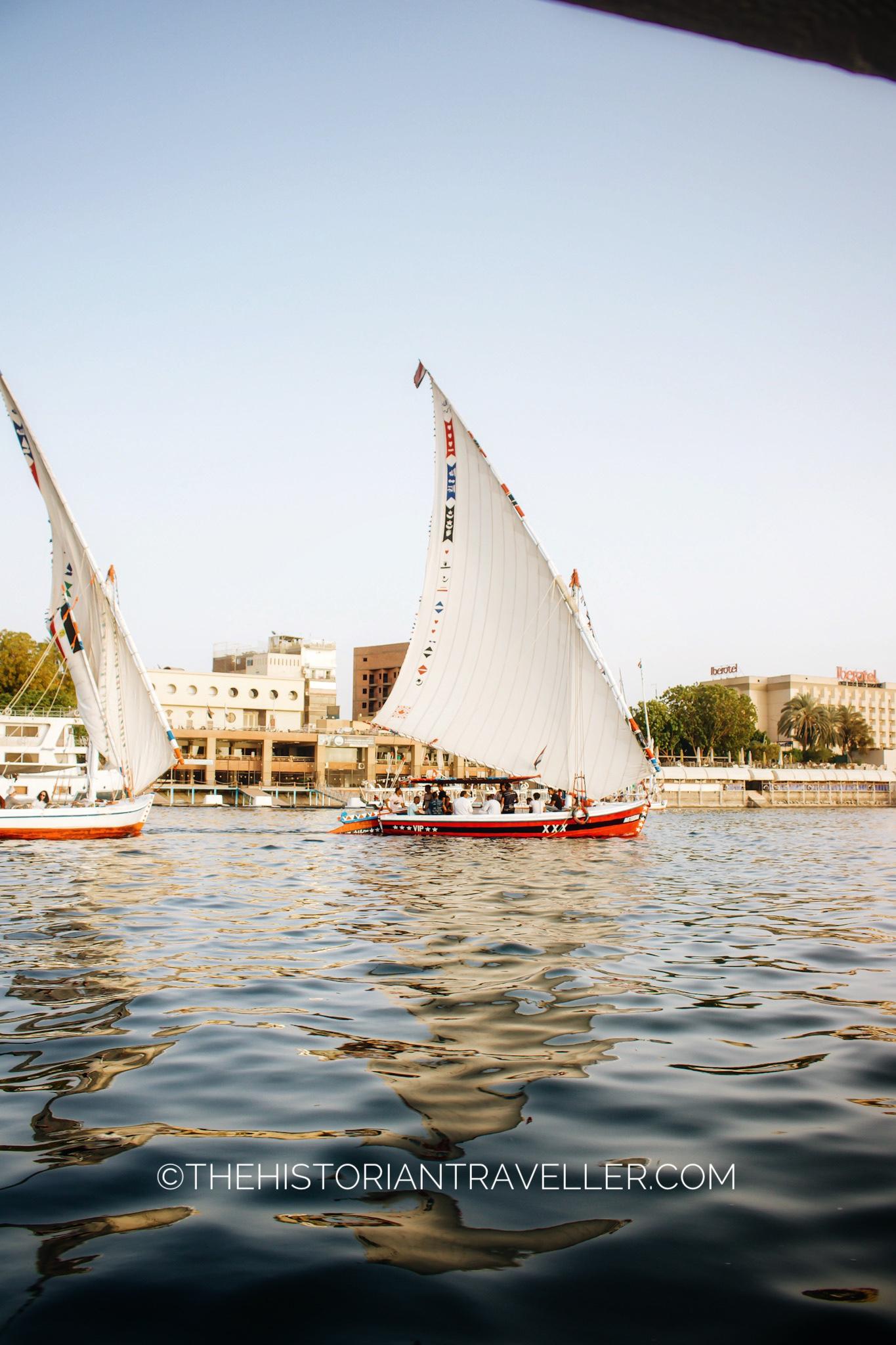
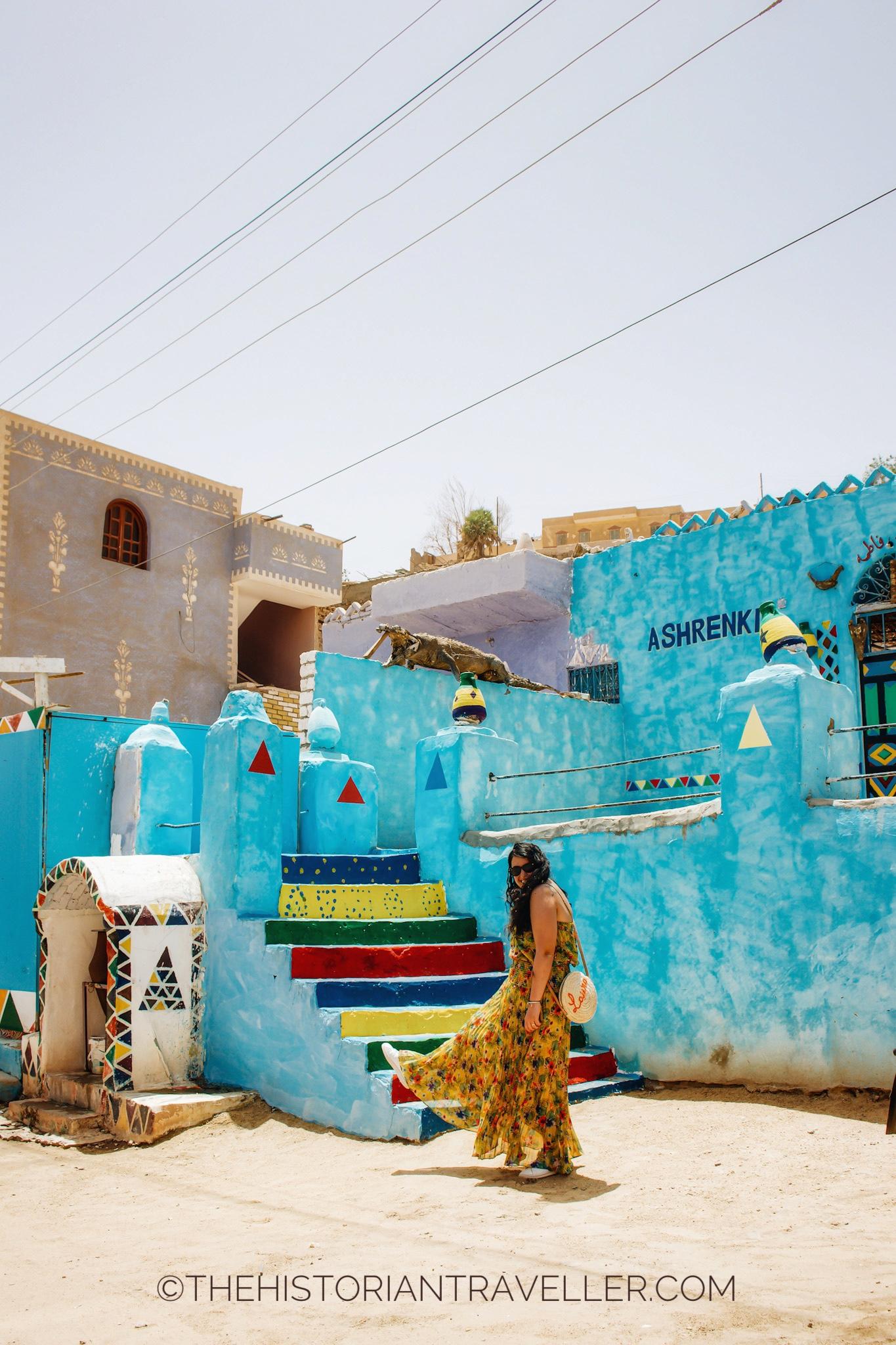
Overall, I don’t think Egypt is really “cheap” as most people try to make you think about it. The best things you can do is do your research and optimise your budget. This is possible by renouncing to a pool view for a normal room in a Airbnb or a lower rated hotel, avoid unnecessary tours, eat street food etc. In this way, Egypt will be probably cheaper than other destinations.
I can officially say that we spent less money in accommodation for one month in Egypt than when we stayed 7 days in Santorini. However it’s true also that tours were slightly more expensive than expected and, worse thing, not as good as we expected. So it’s really up to you finding the right balance and have an memorable trip without breaking your pockets!
And that’s all!I hope that this little guide can help you in planning your trip to Egypt! I will write more guides and if you want to know something in specific just let me know!
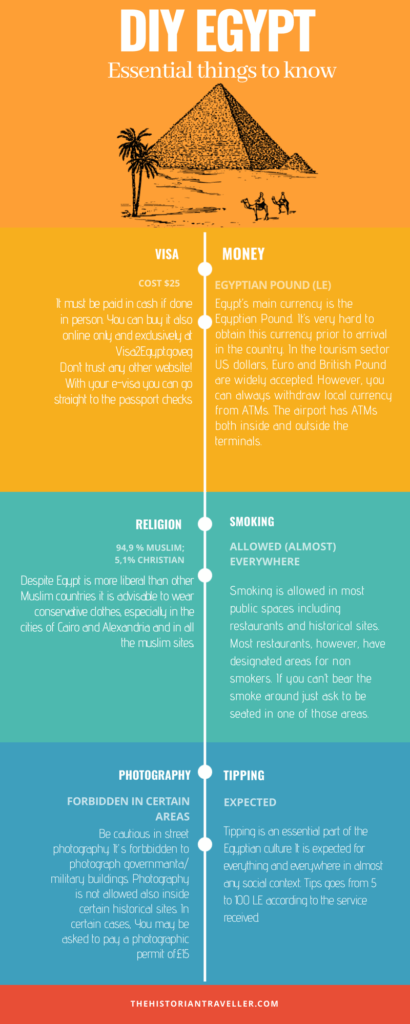
Plan your trip to Egypt
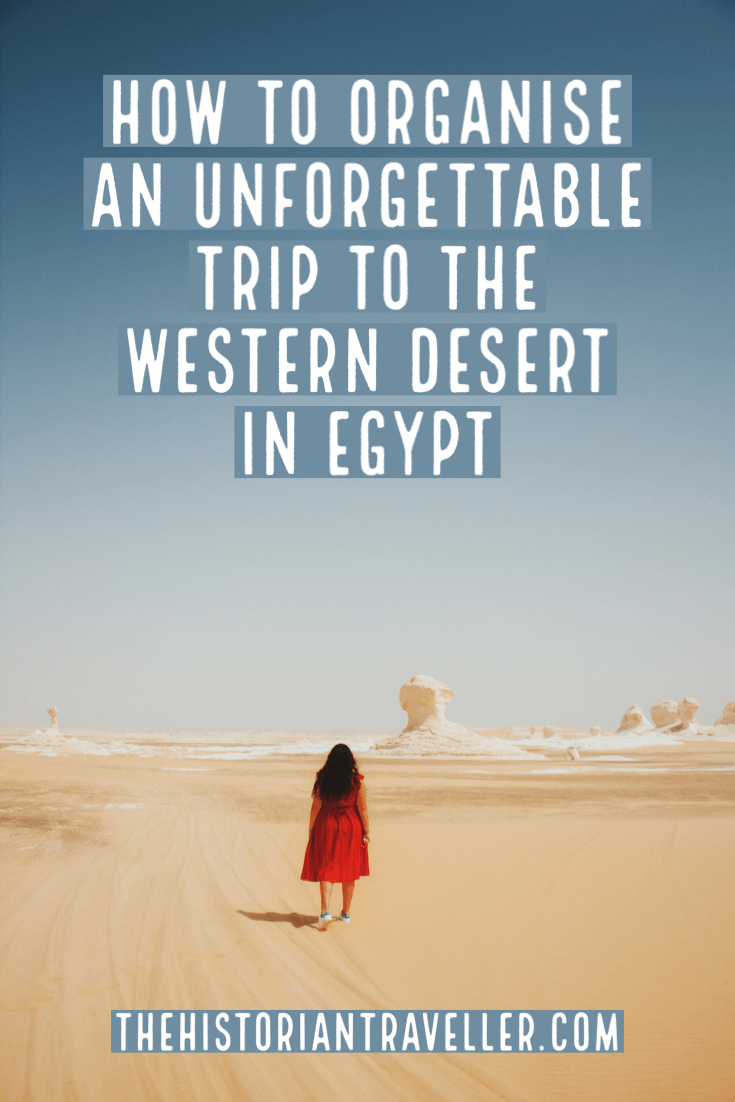
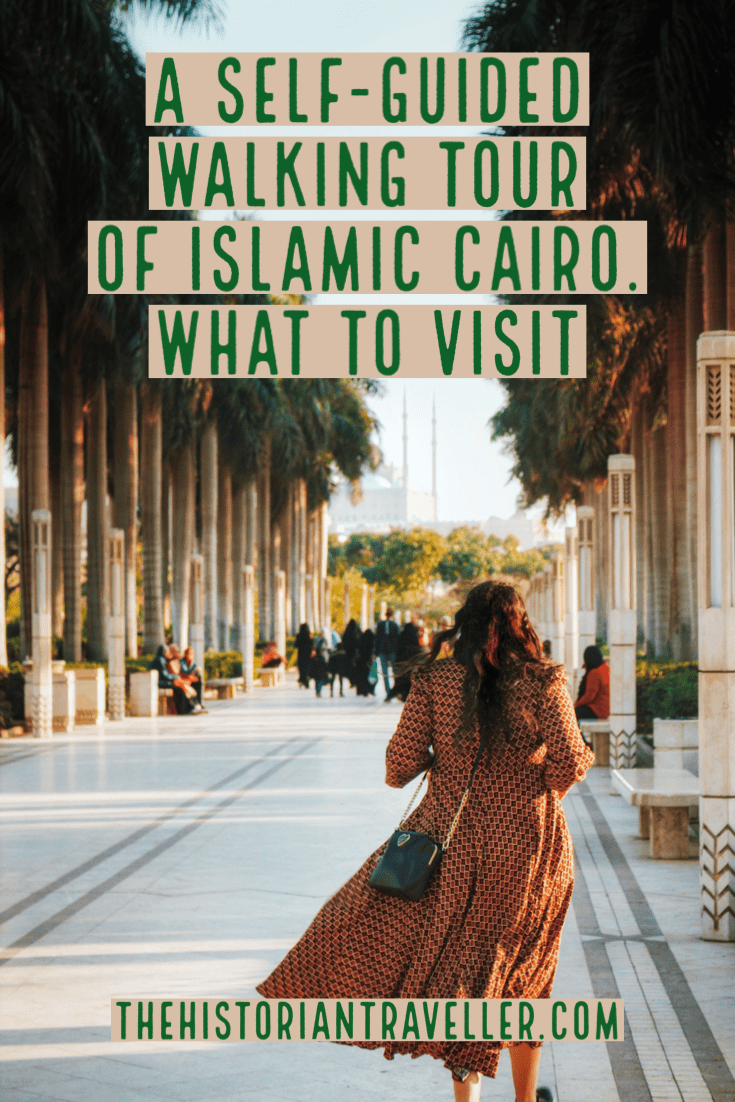
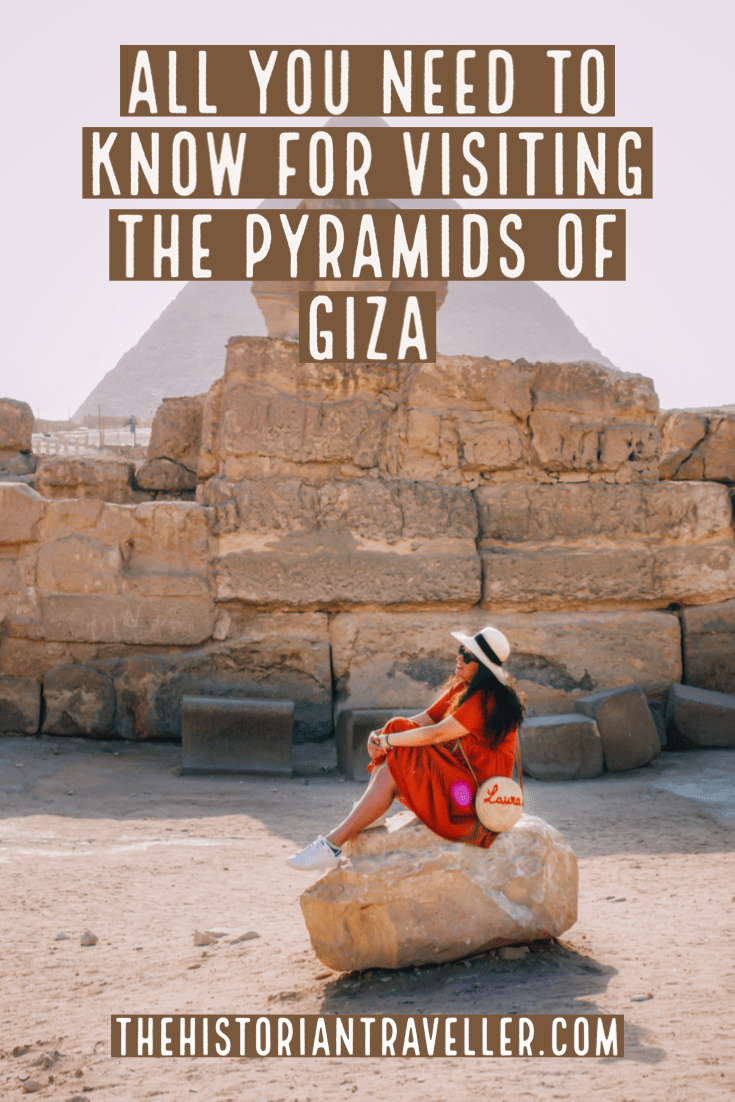
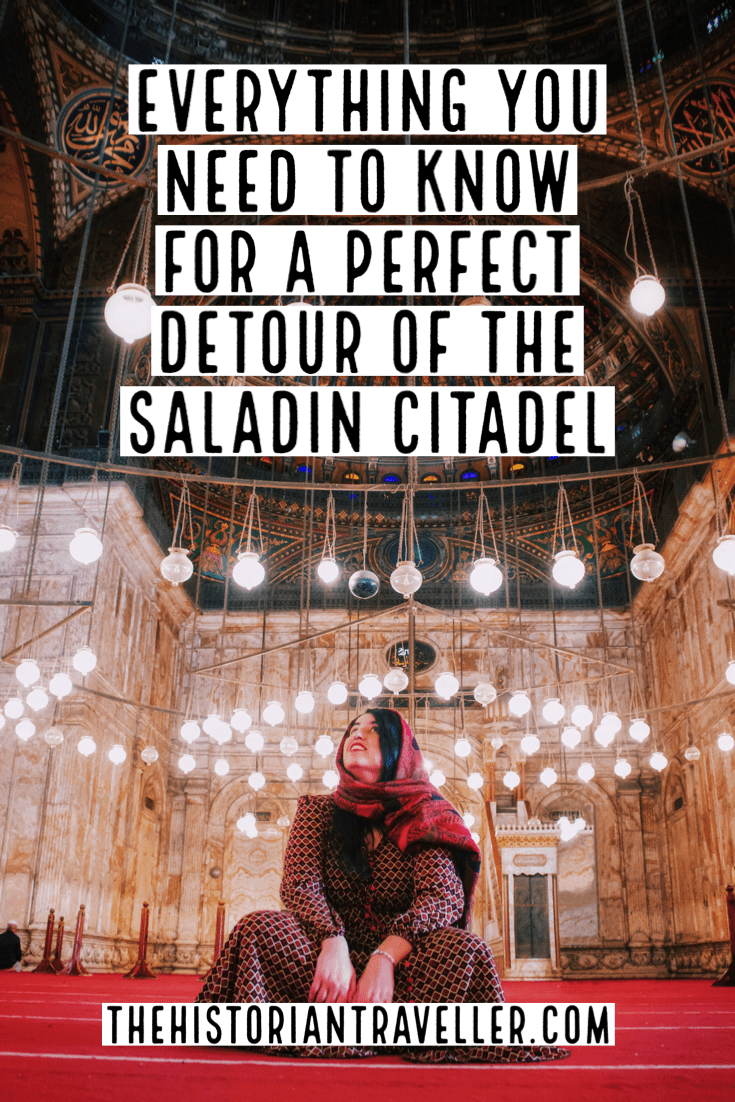
Liked this blog piece? Pin it!
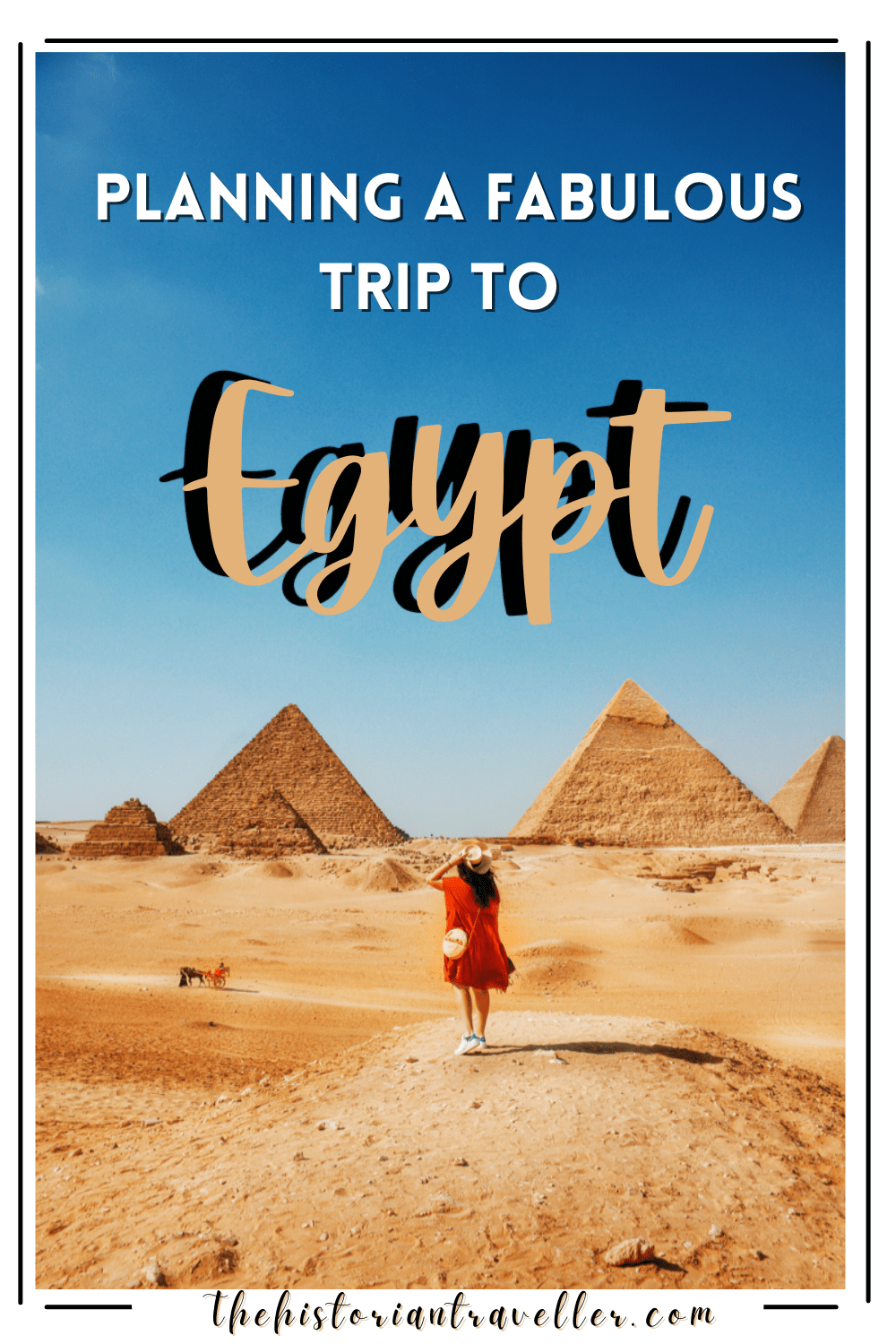

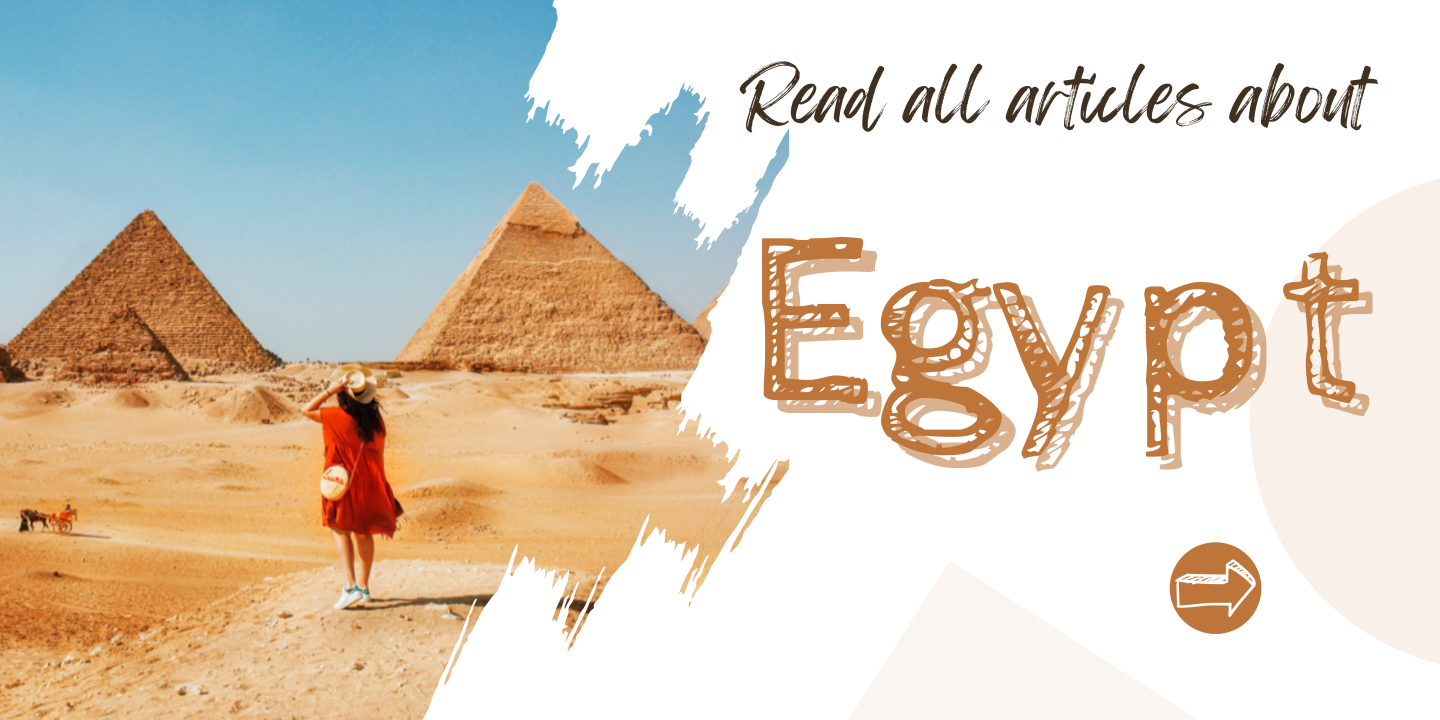
Thanks for the guide, very insightful!
Author
Glad to be useful!!
What a thorough, helpful post! You’ve covered everything! I am planning a trip to Egypt and I’ve been trying to decide whether to go with a group tour or to DIY it as I usually would, so it’s very useful to hear your thoughts and experiences. I’m also trying to figure out an itinerary, so to see yours is helpful too. Thank you!
What a detailed and interesting post Laura, loved reading it. Also the infographics are very helpful. 🙂
This is such a wonderful post. I love all of the tips you have provided and will definitely save your post for future reference. Thank you so much!!
Wow what an excellent post with so much helpful info and tips! I really want to visit Egypt but it is one country I might do a group tour. Either way I look forward to going one day! 😁
This is such a bucket list trip for me so this is so helpful, full of info that will help me when I actually manage to go. I love the history that Egypt has, so fascinating
This is so detailed and all your advice is great! Egypt sounds like such a fascinating country.
It’s clear you did a lot of research before the trip! I can see why planning something like this on your own would be intimidating as opposed to going with a group, but this is such a helpful post for anyone wanting to go to Egypt! 🙂
Fantastic post – and very useful info! Kudos to you!
👍🏼👍🏼
Author
Thanks a lot!
The more I know about Egypt the more I want to know this magical place
Author
I hope you can visit!